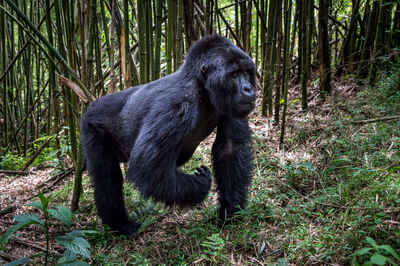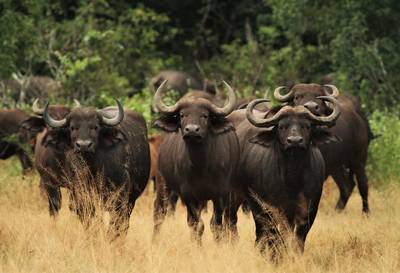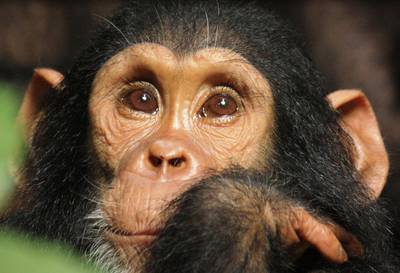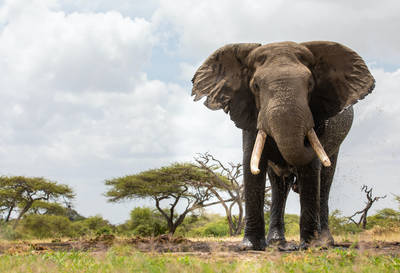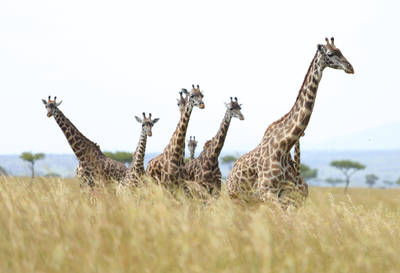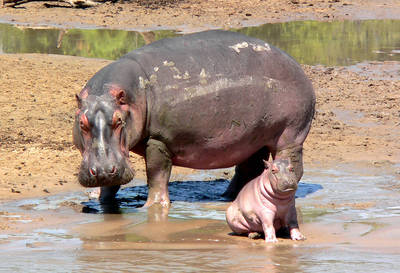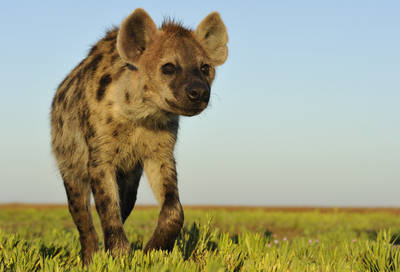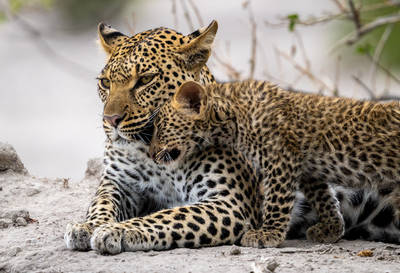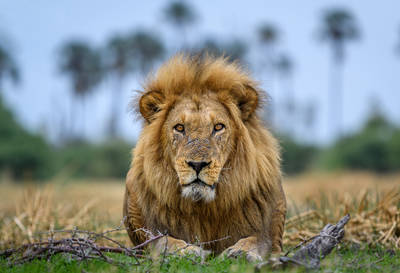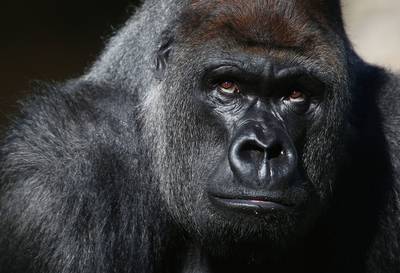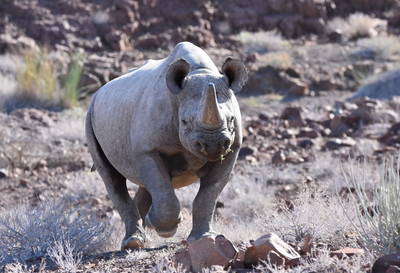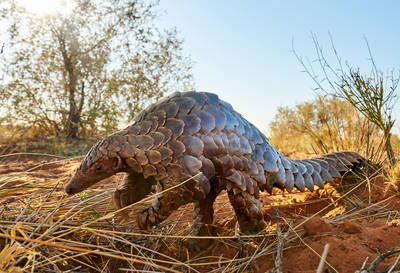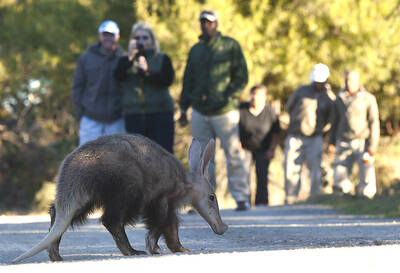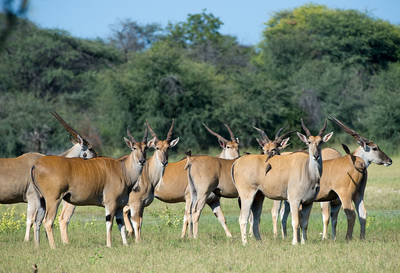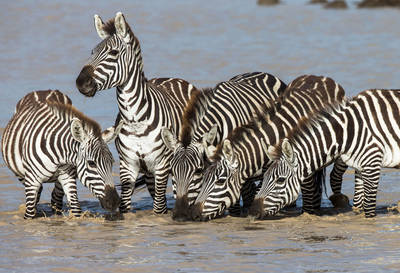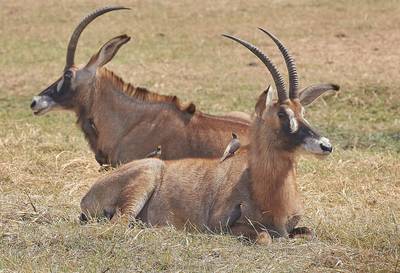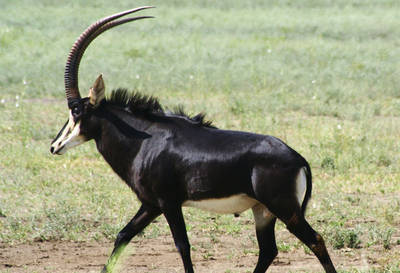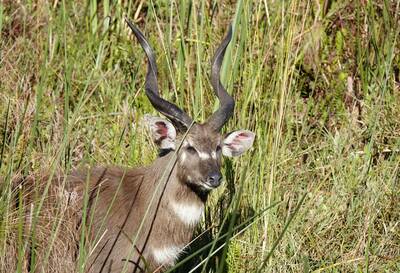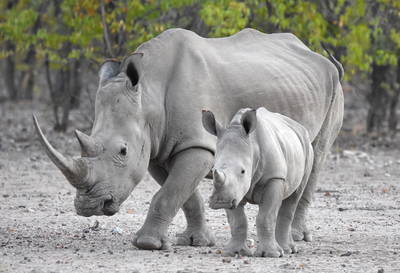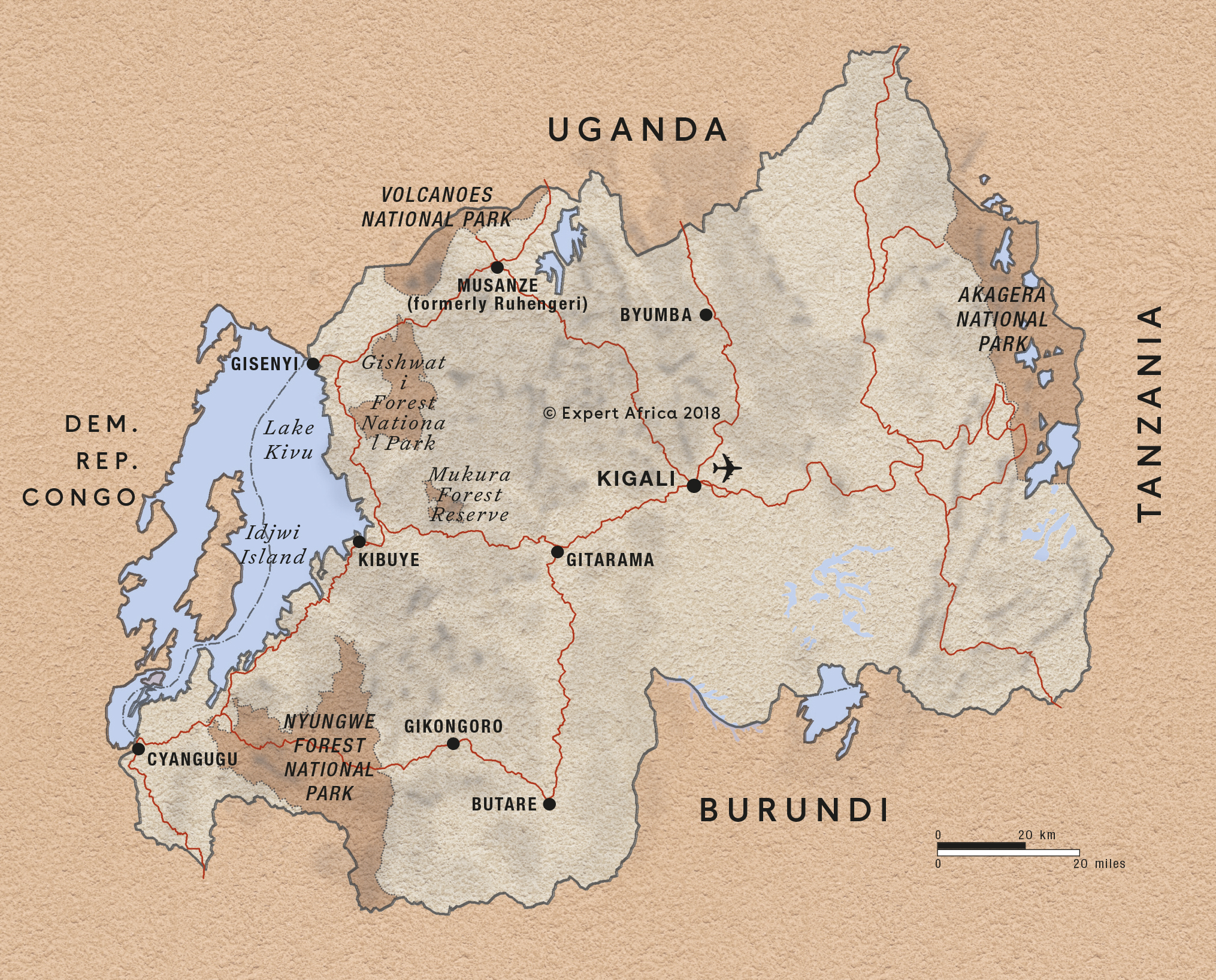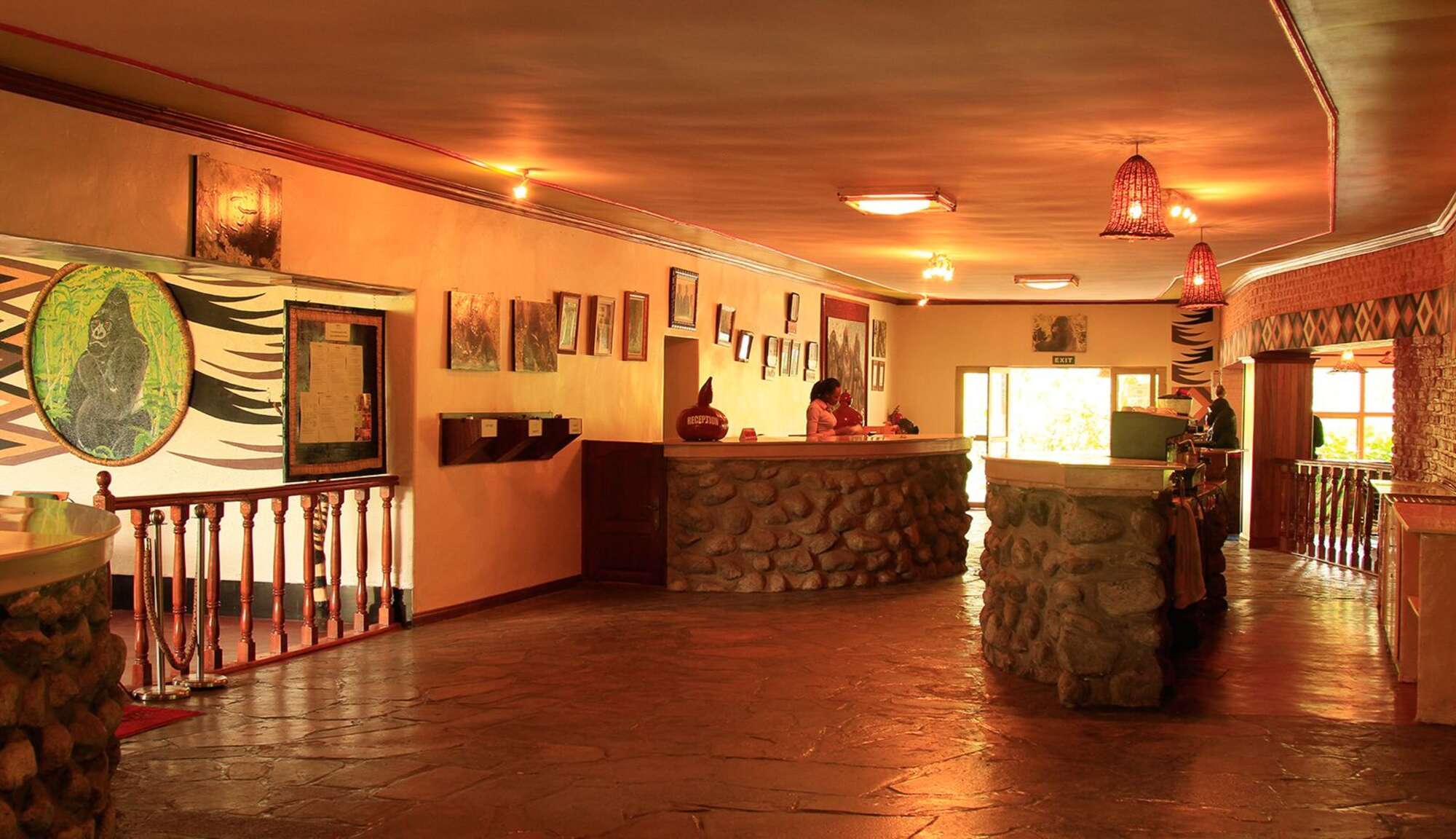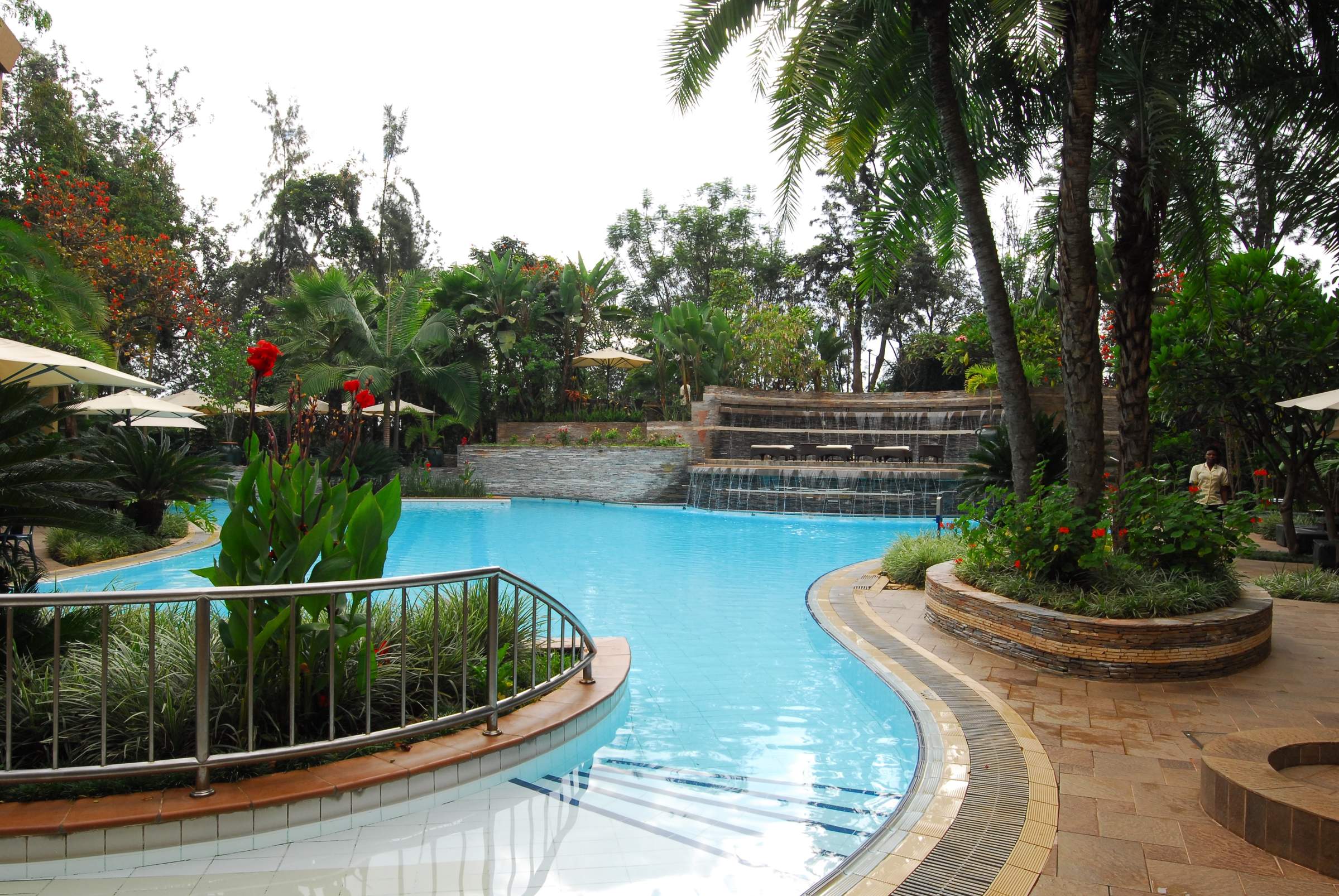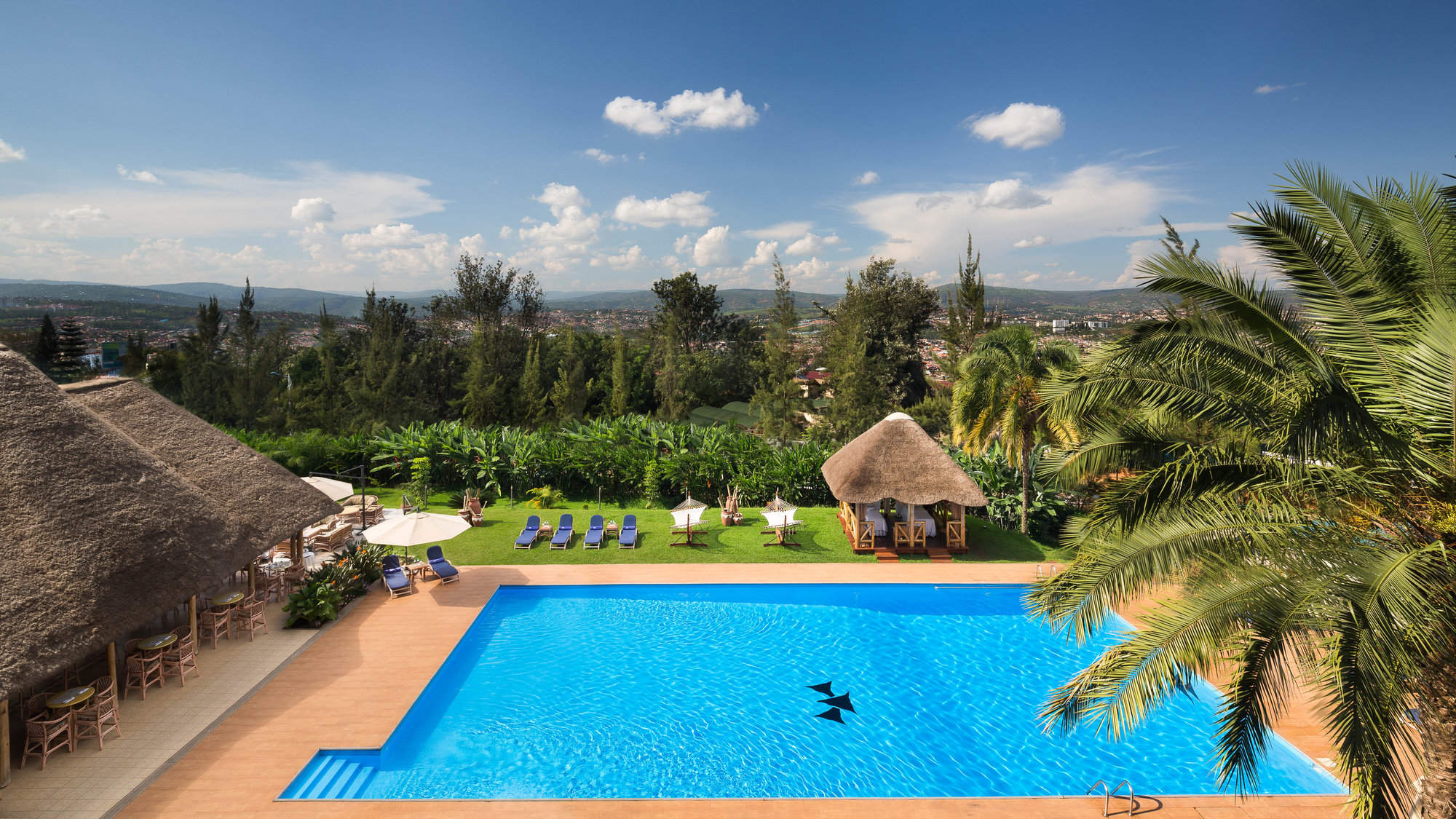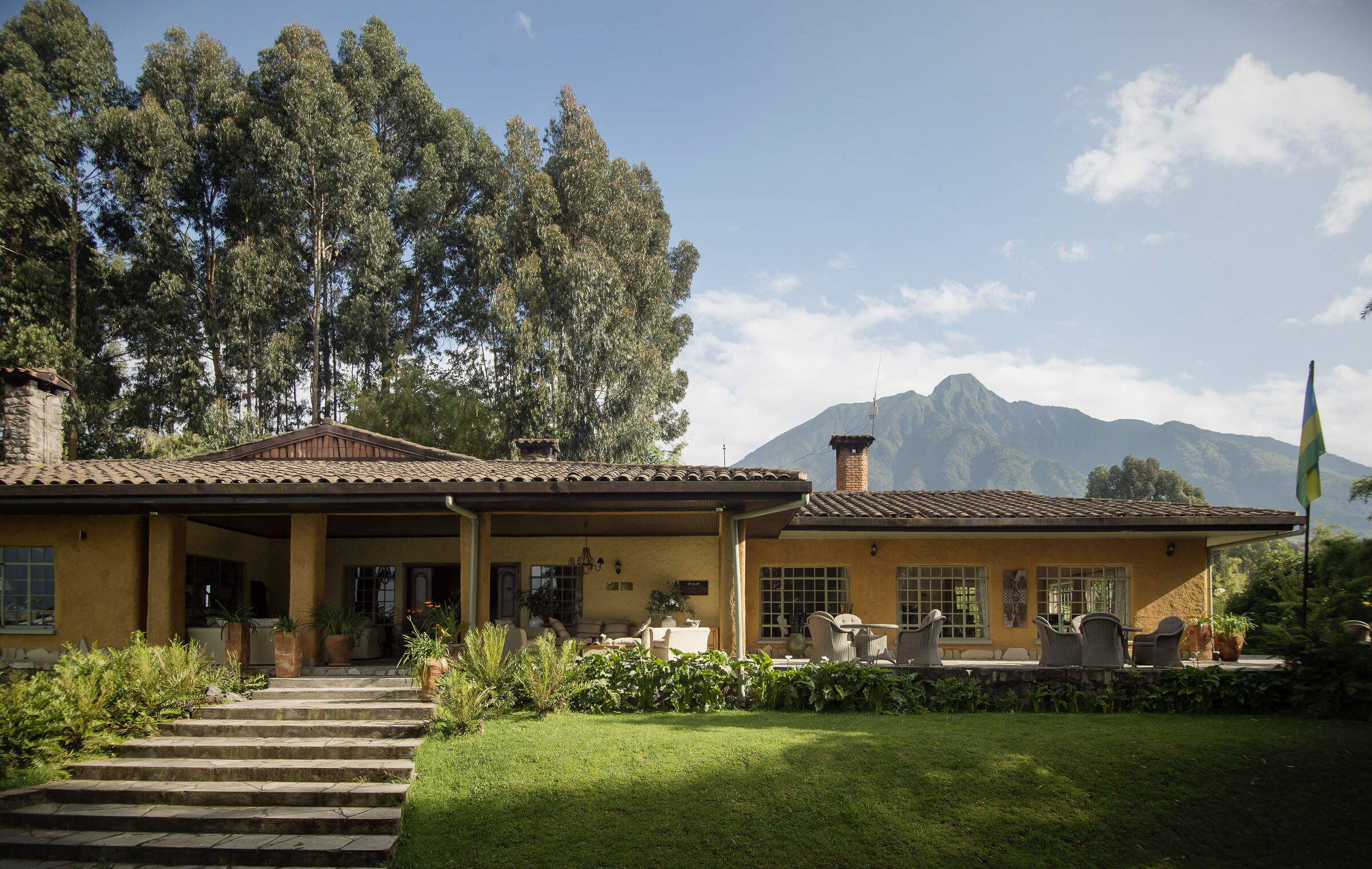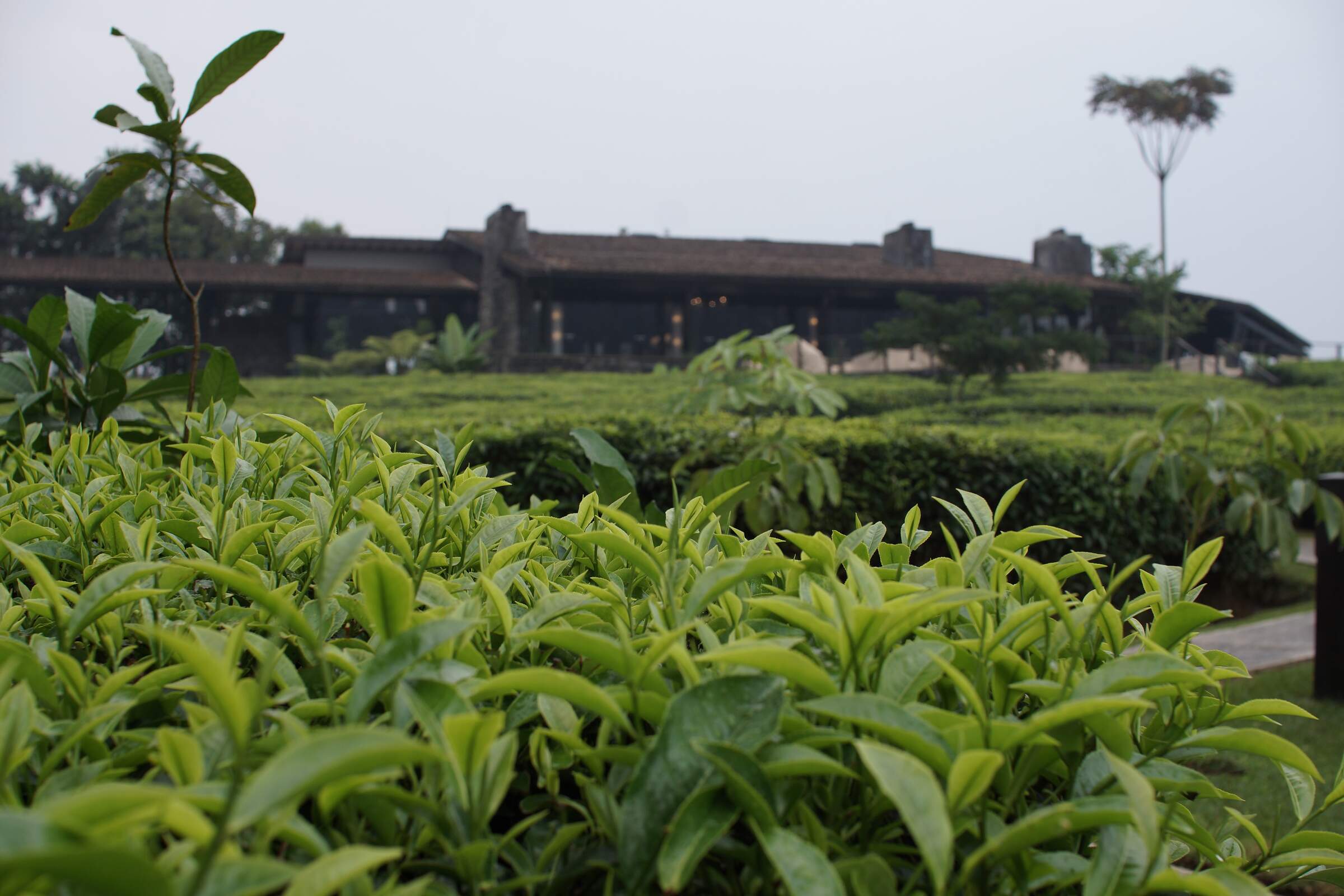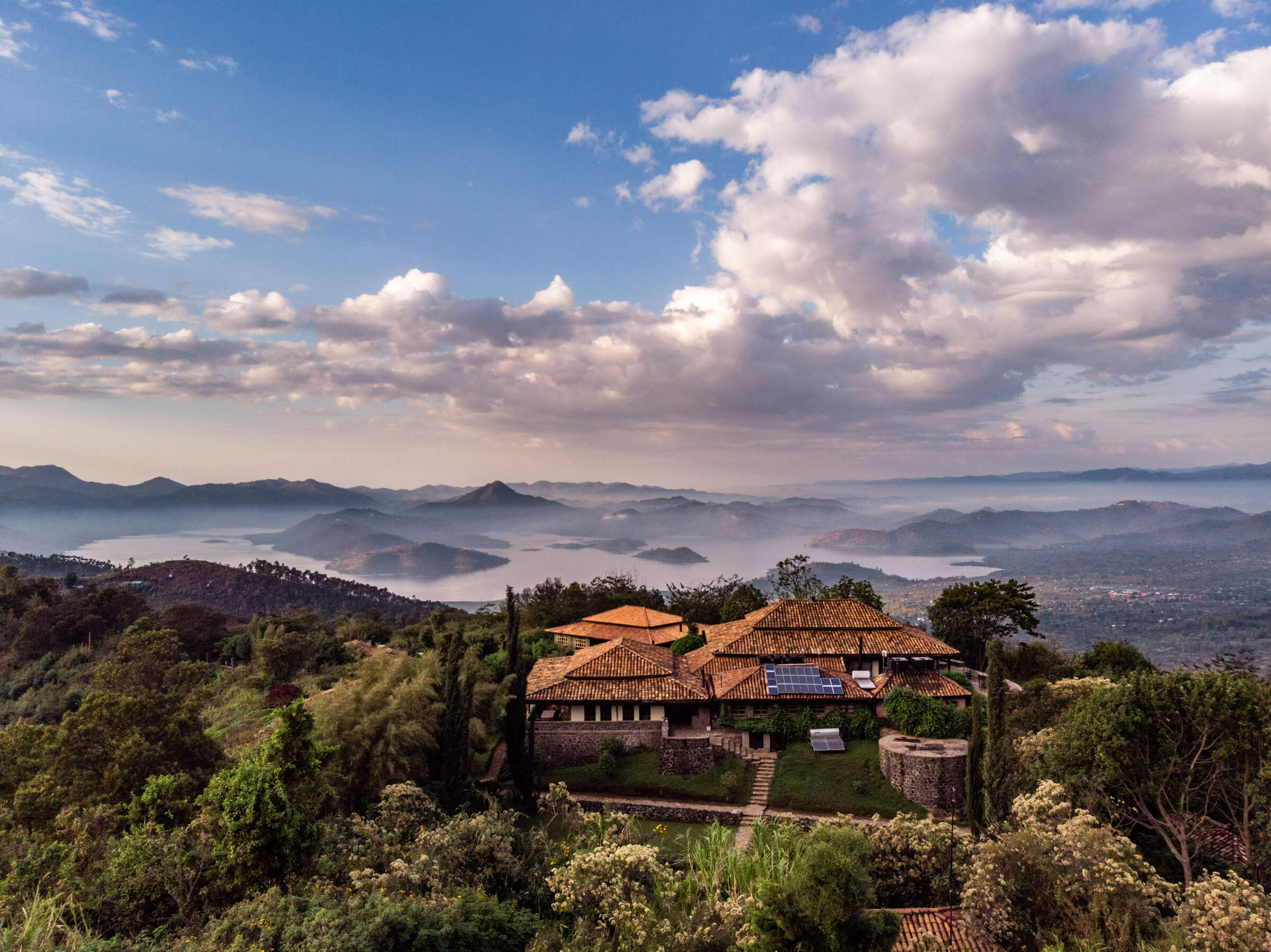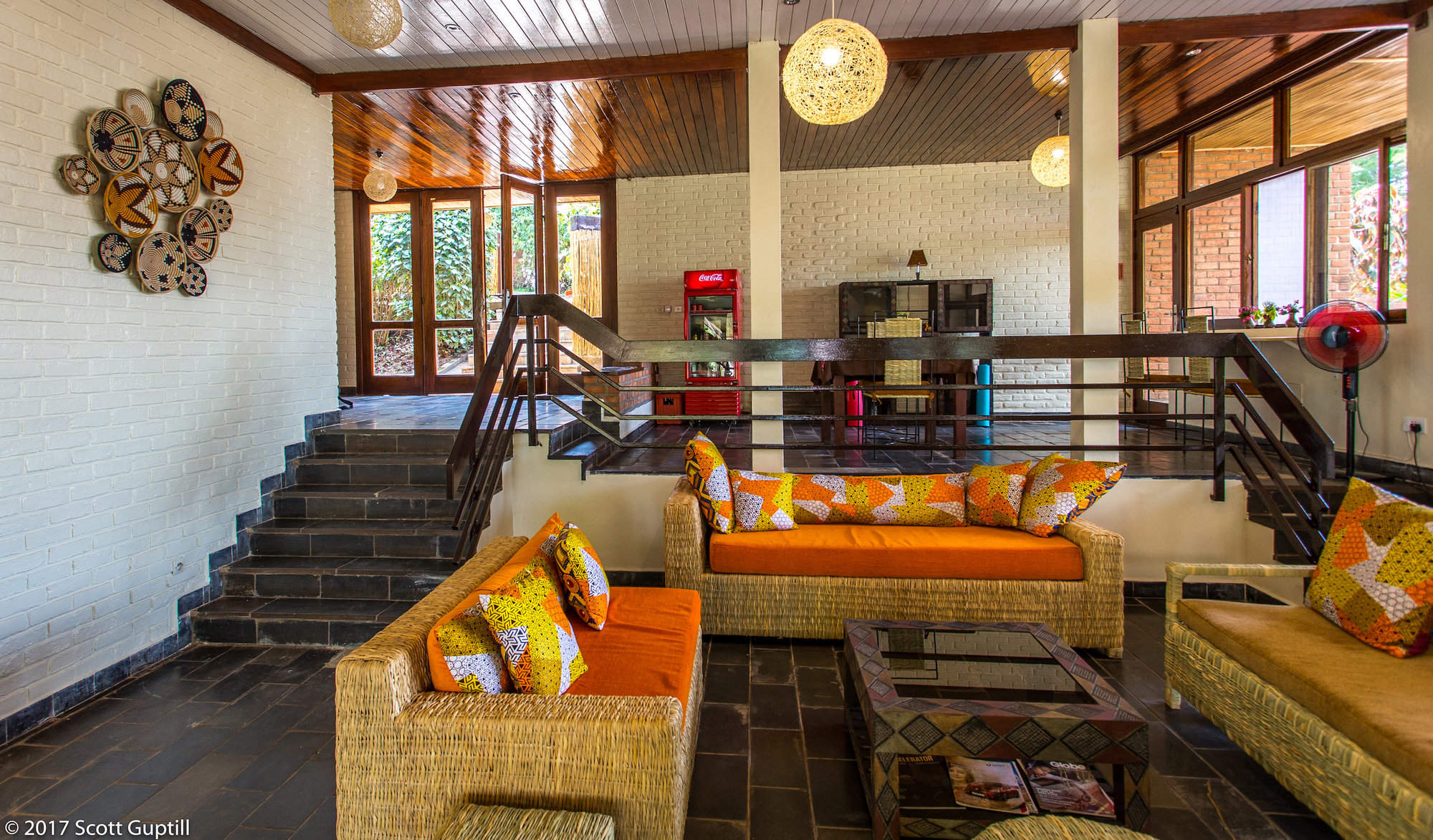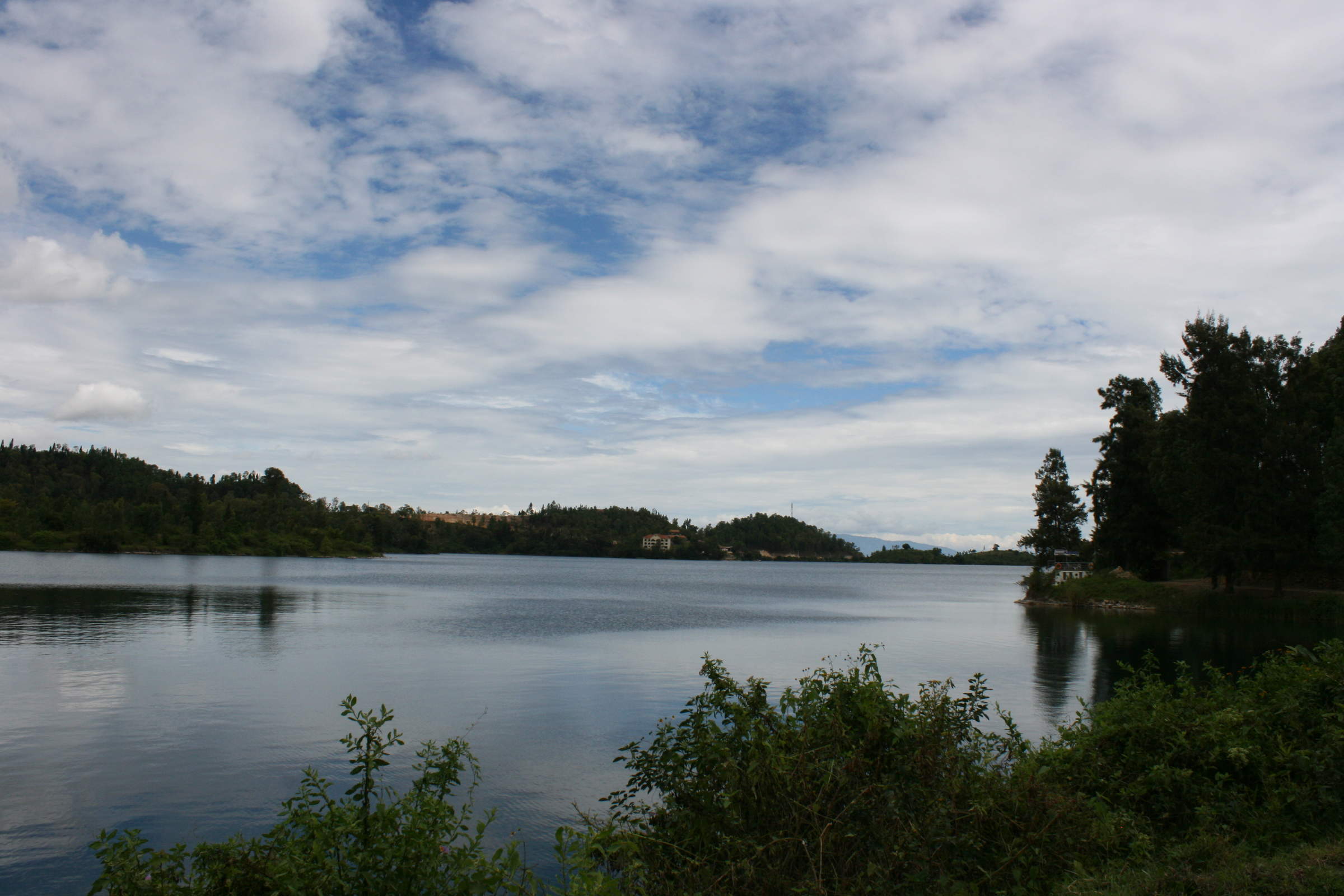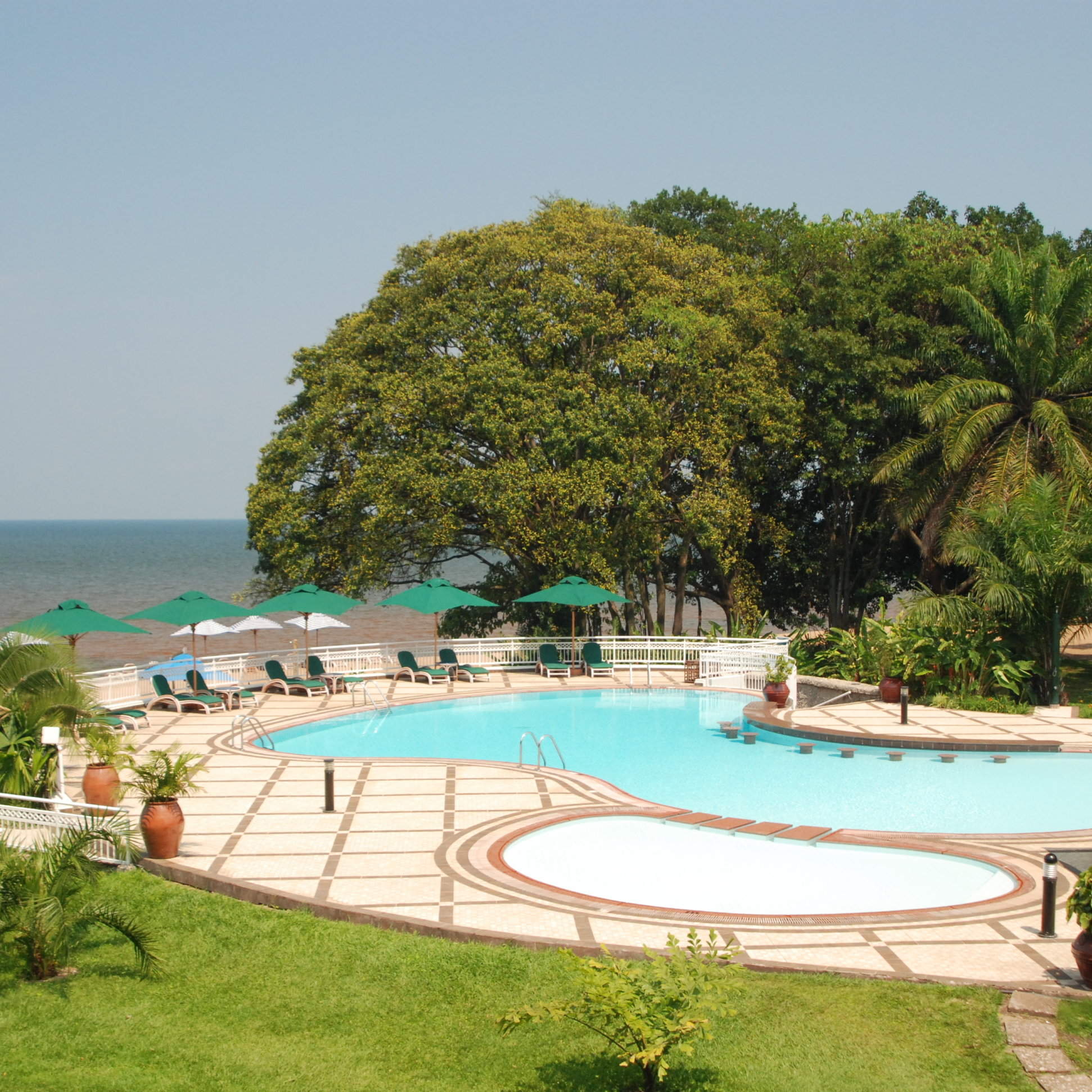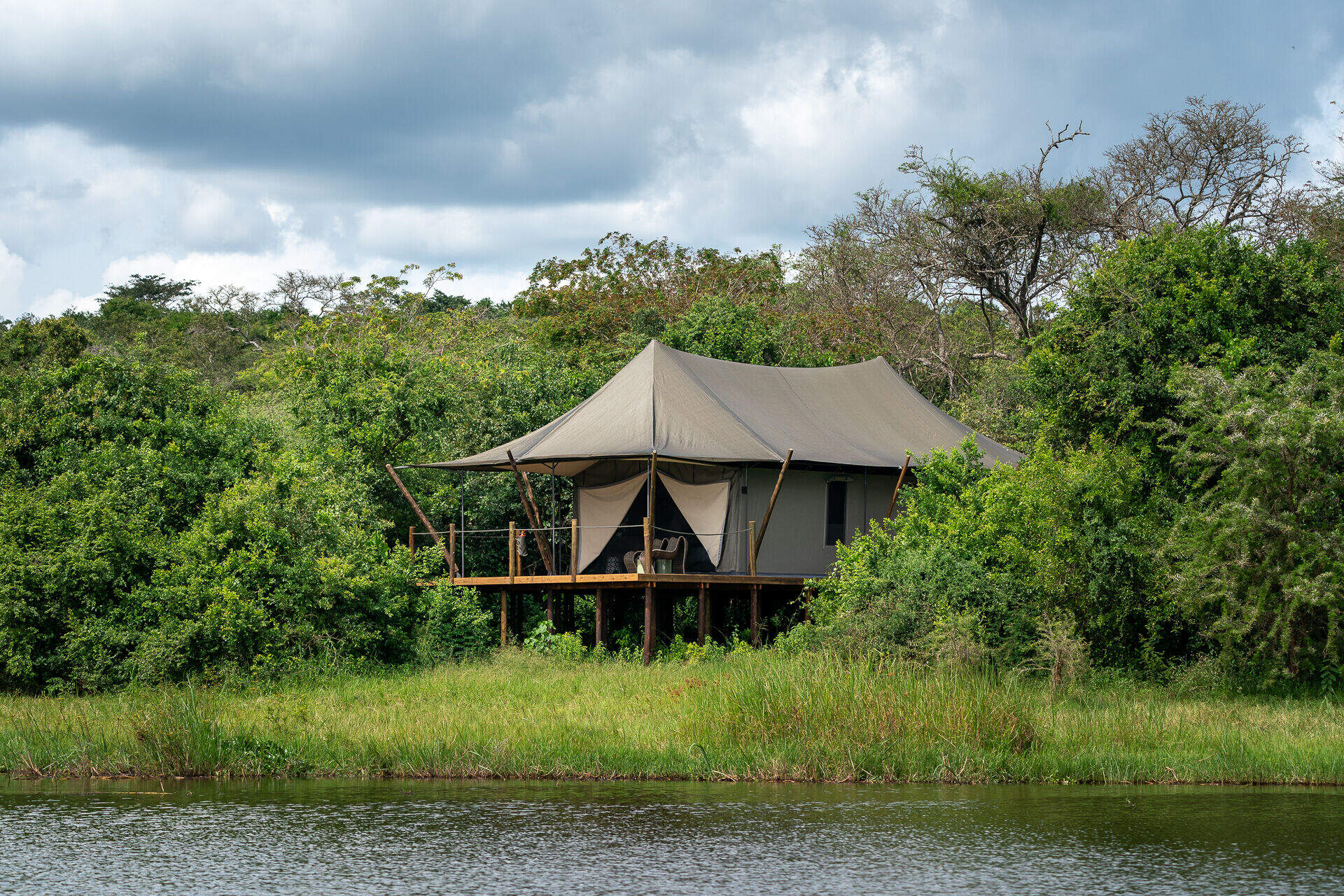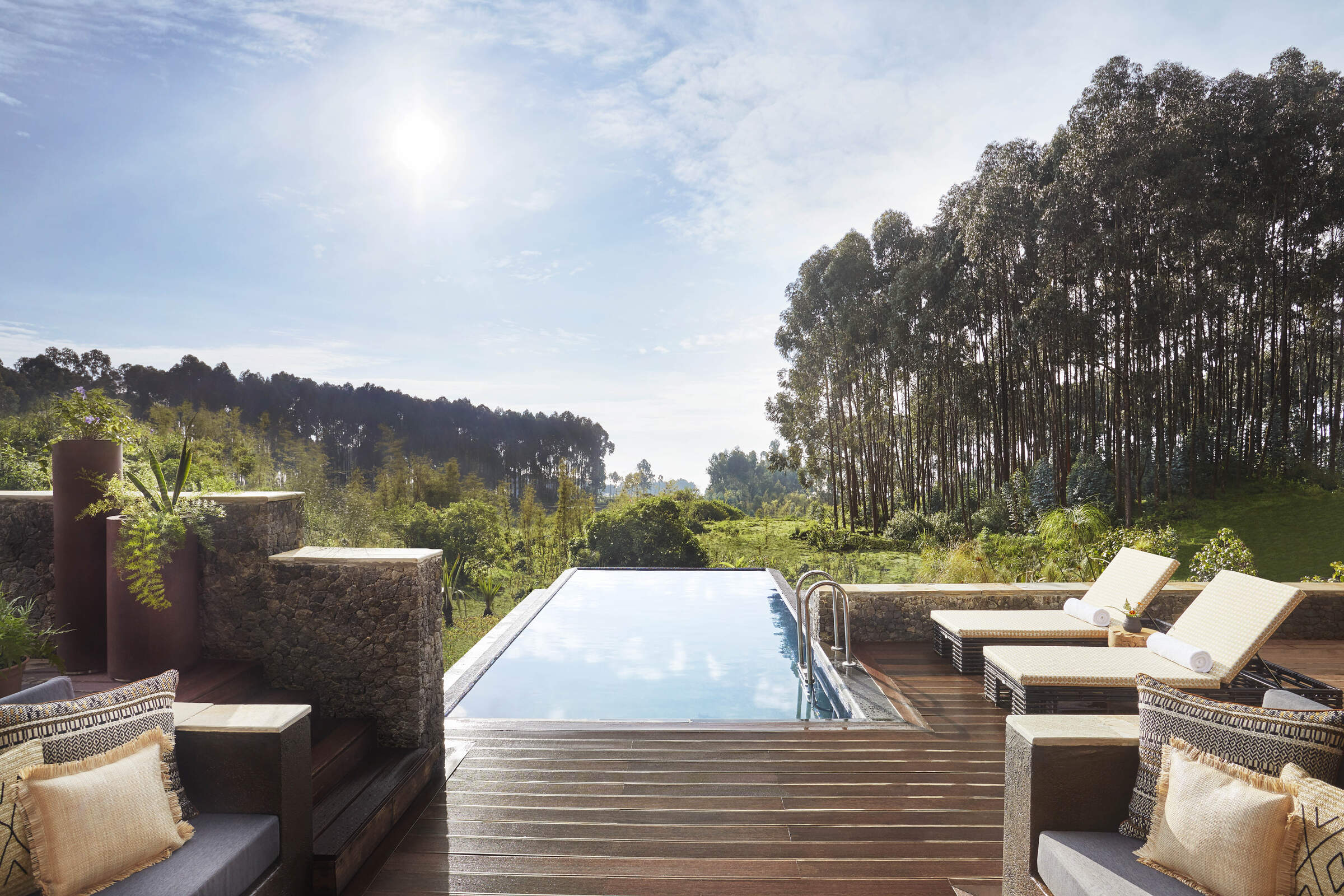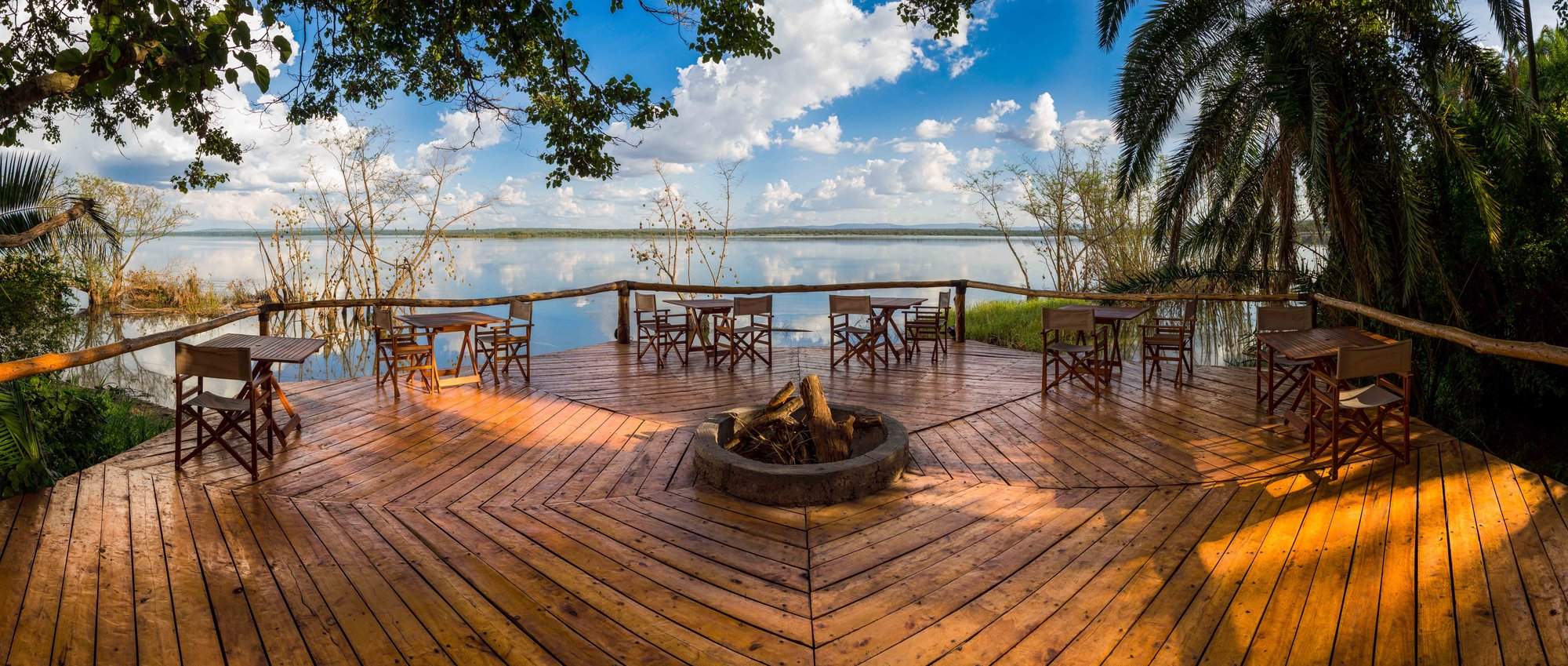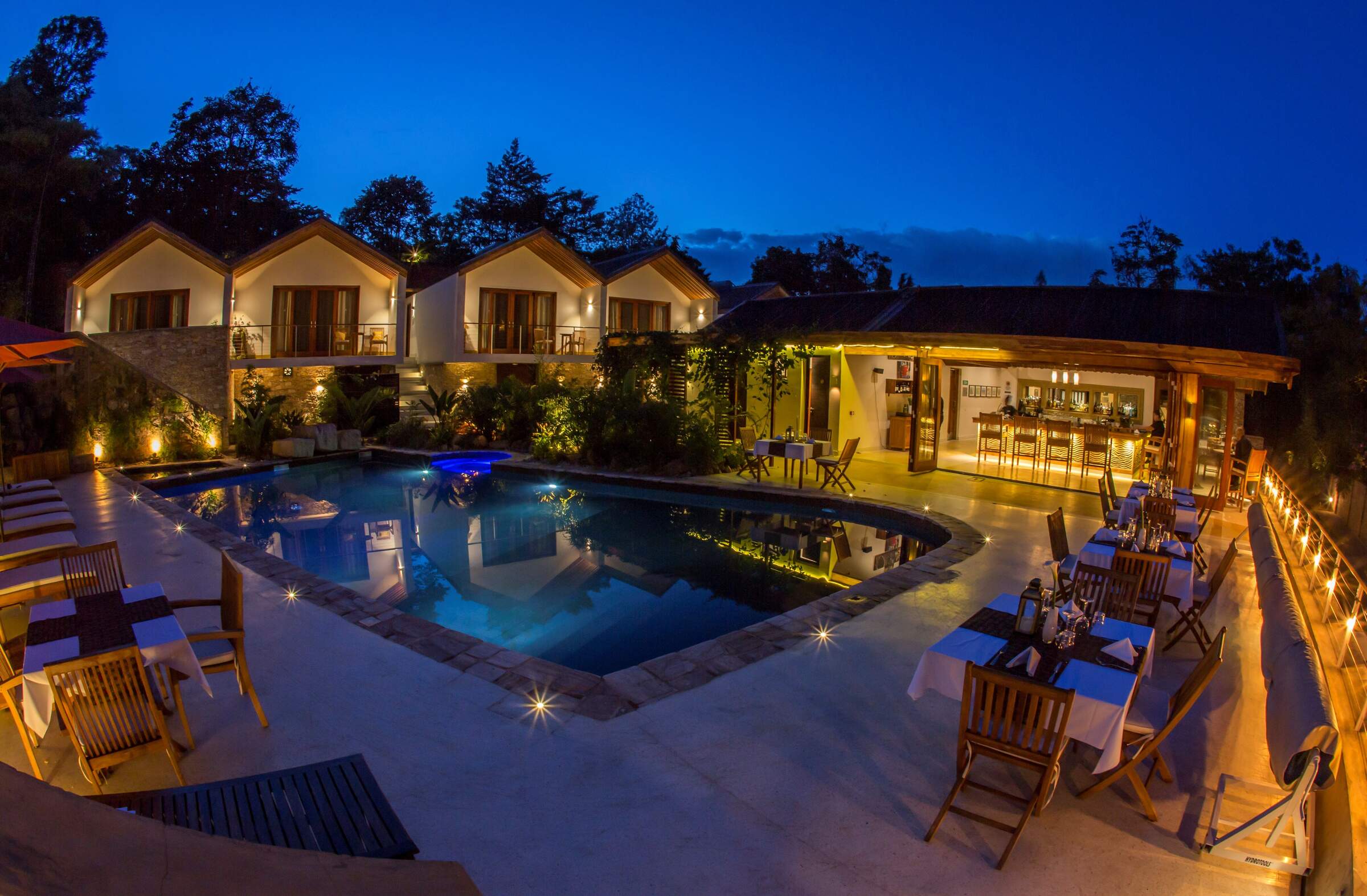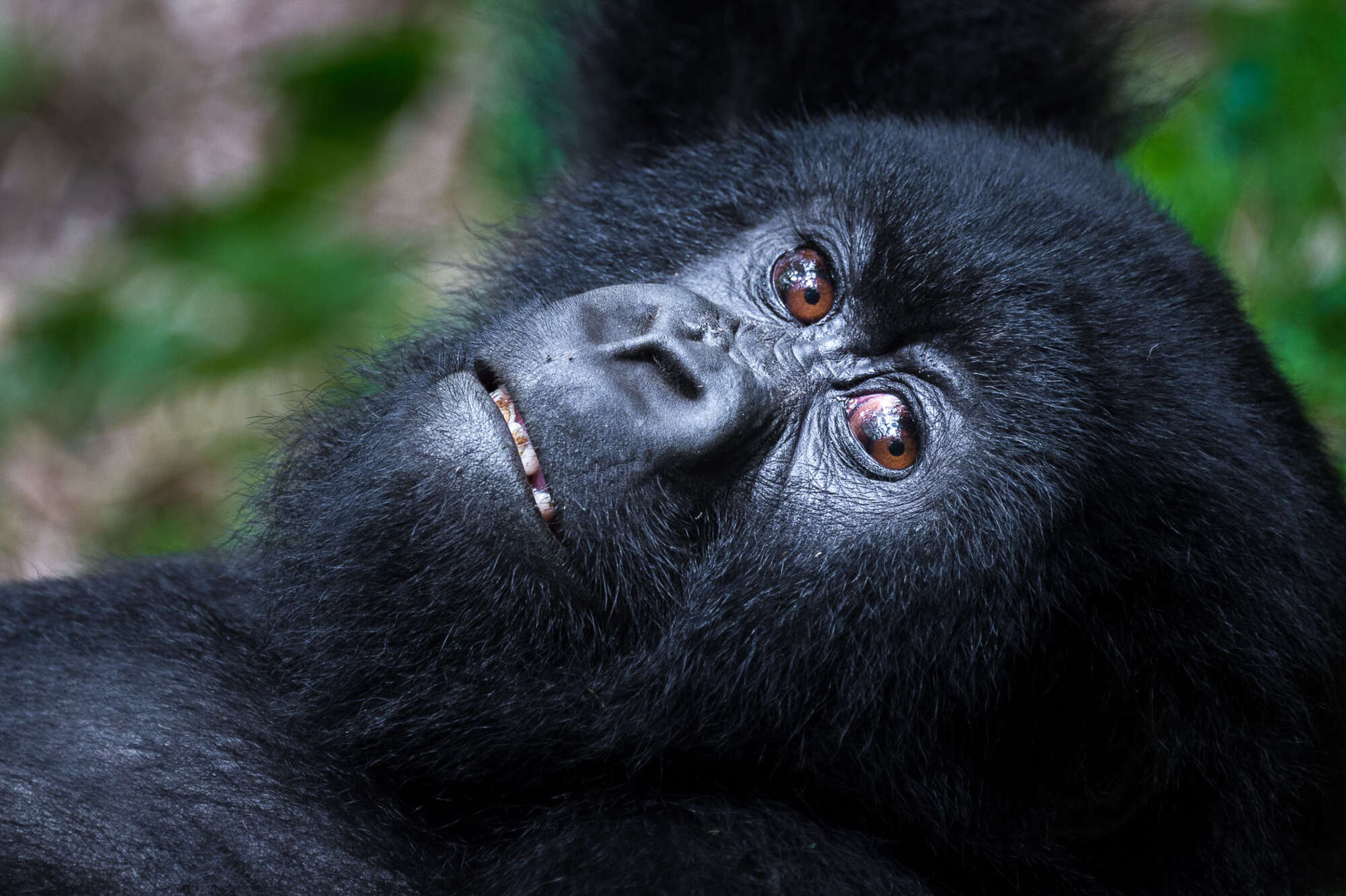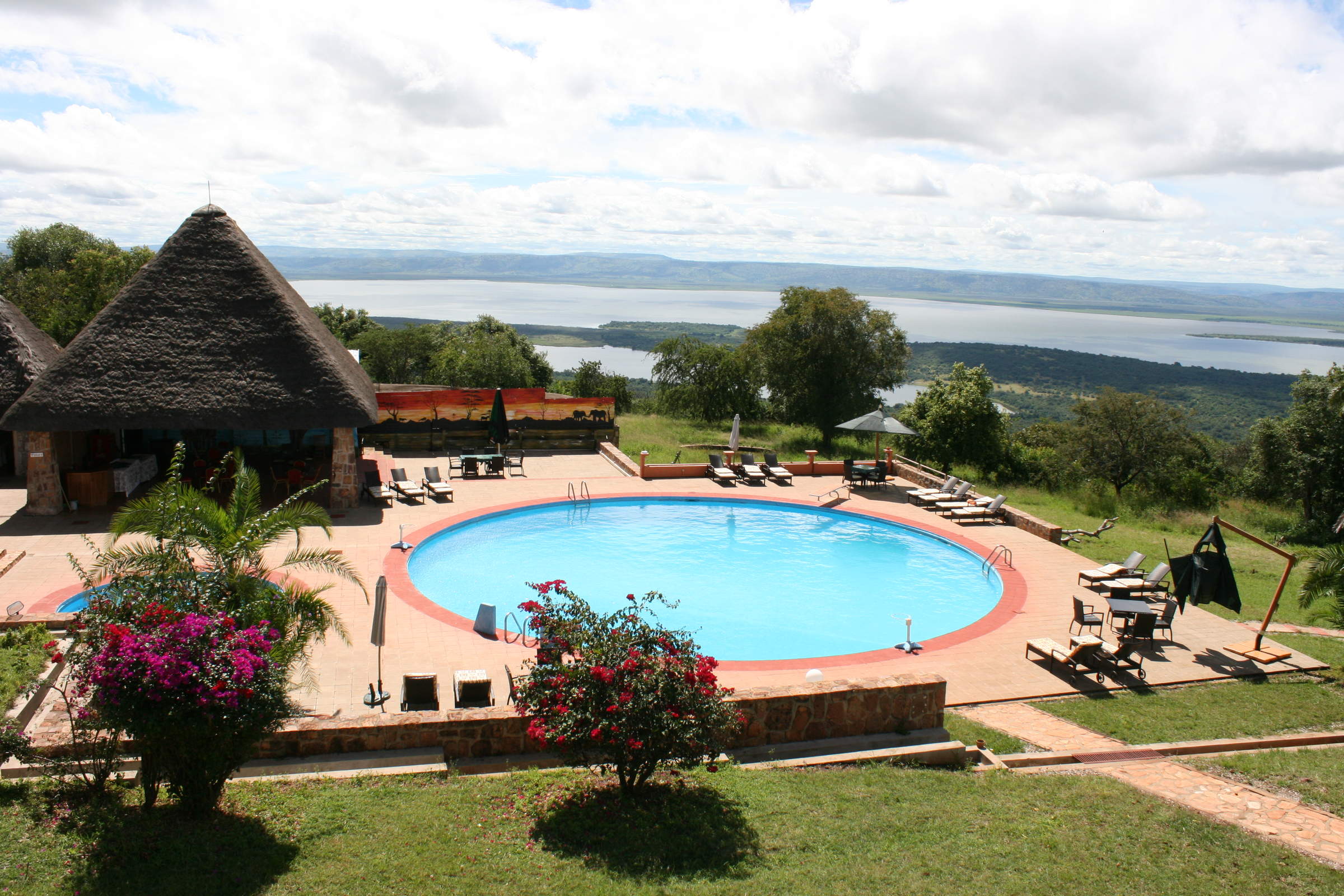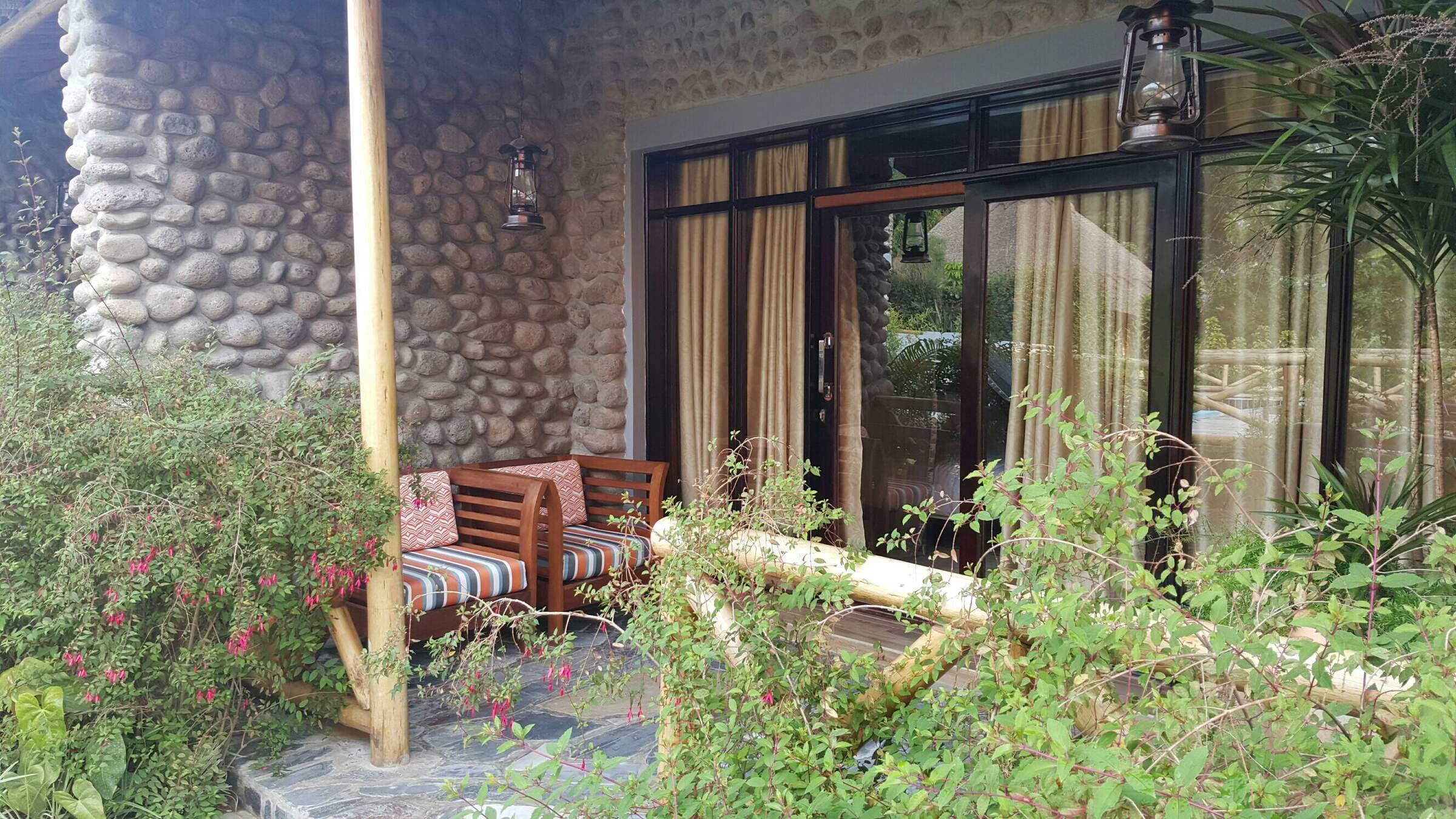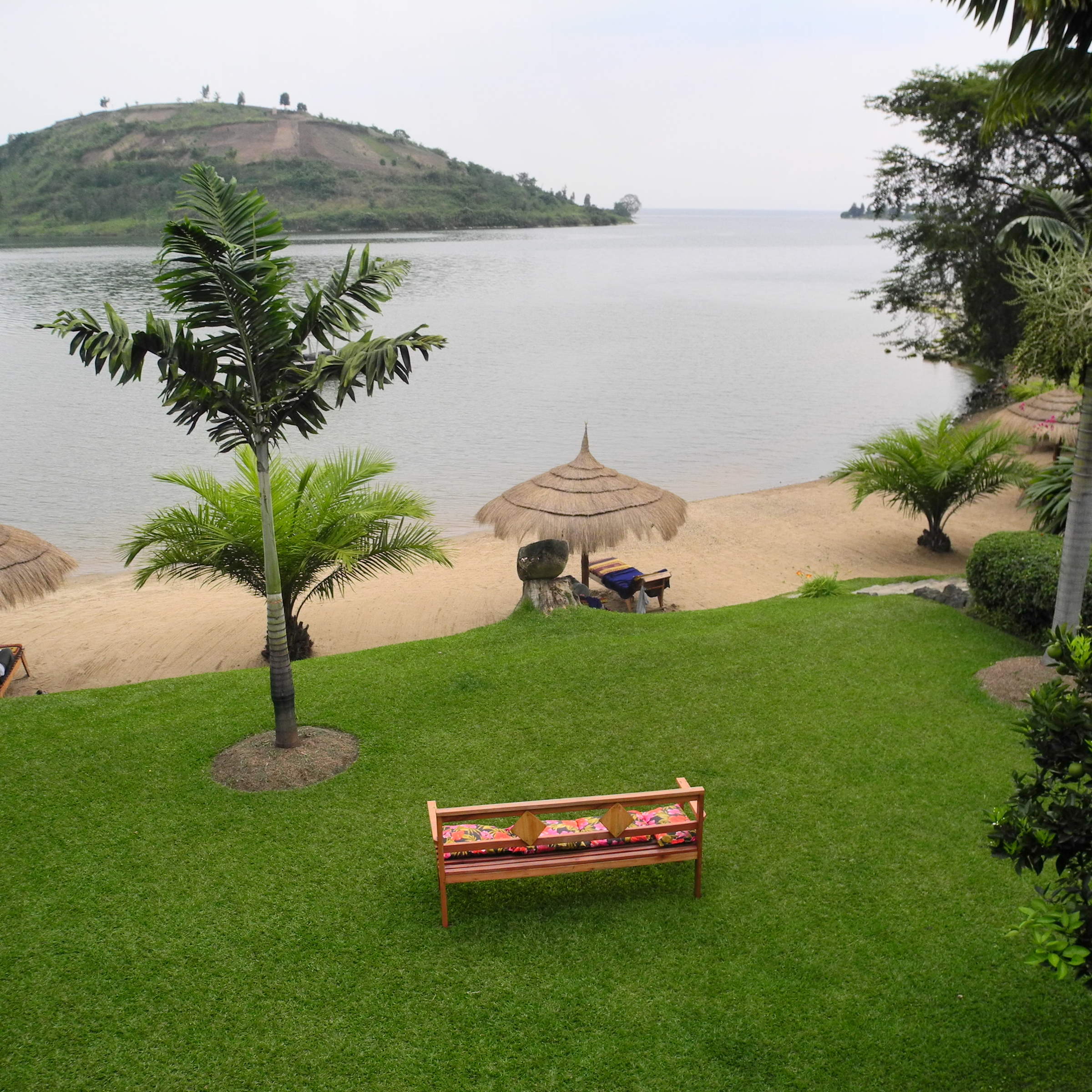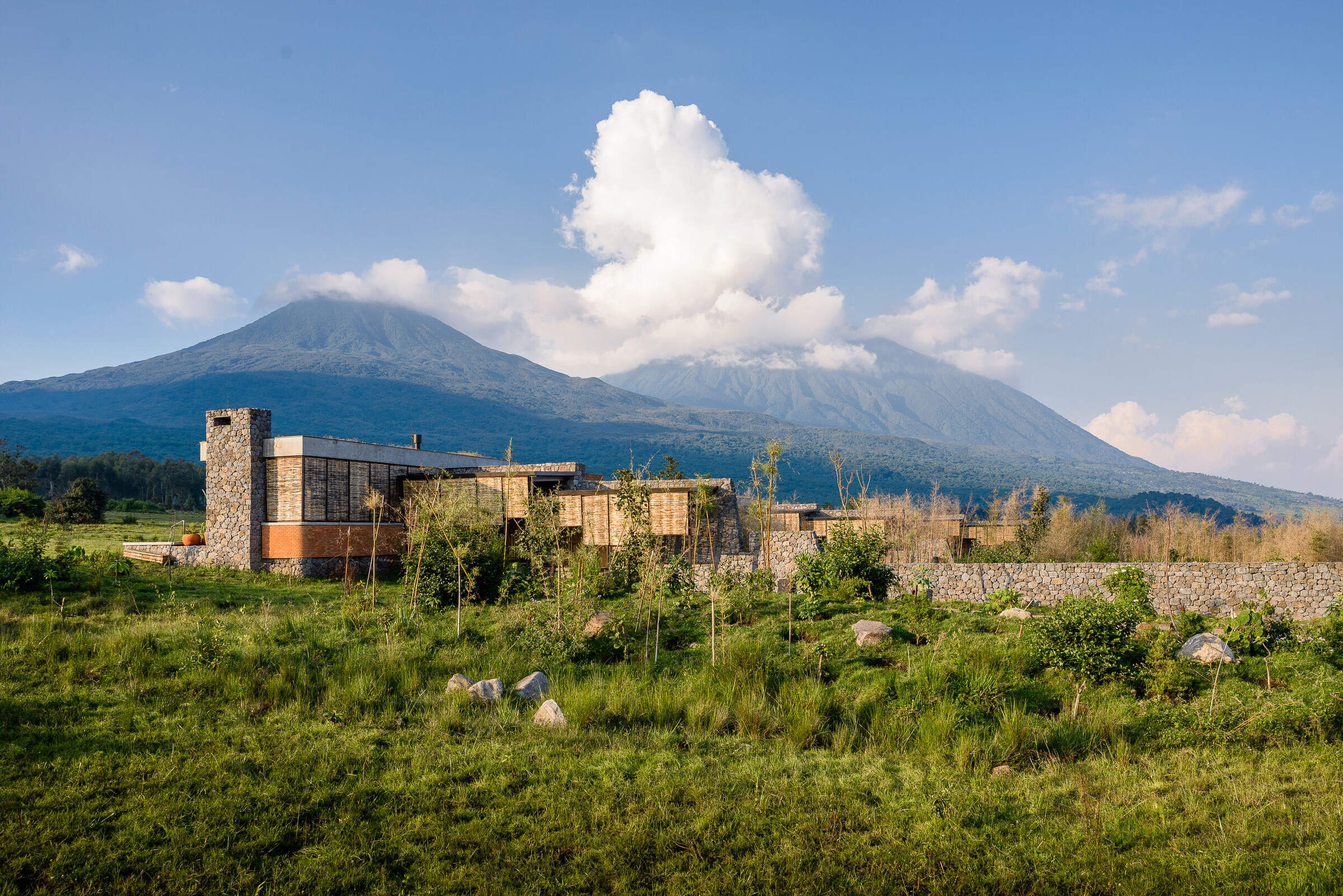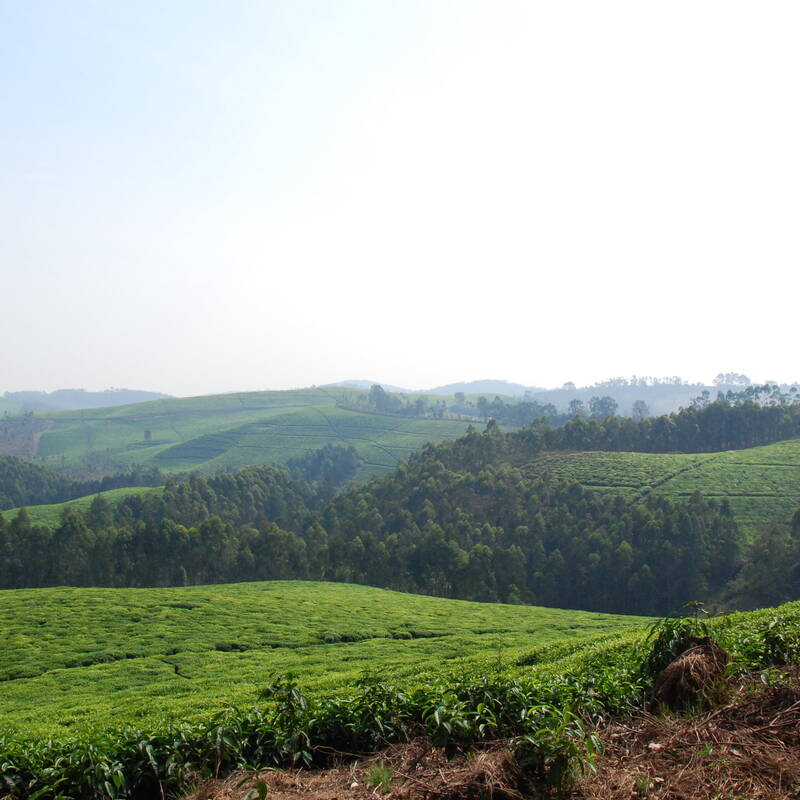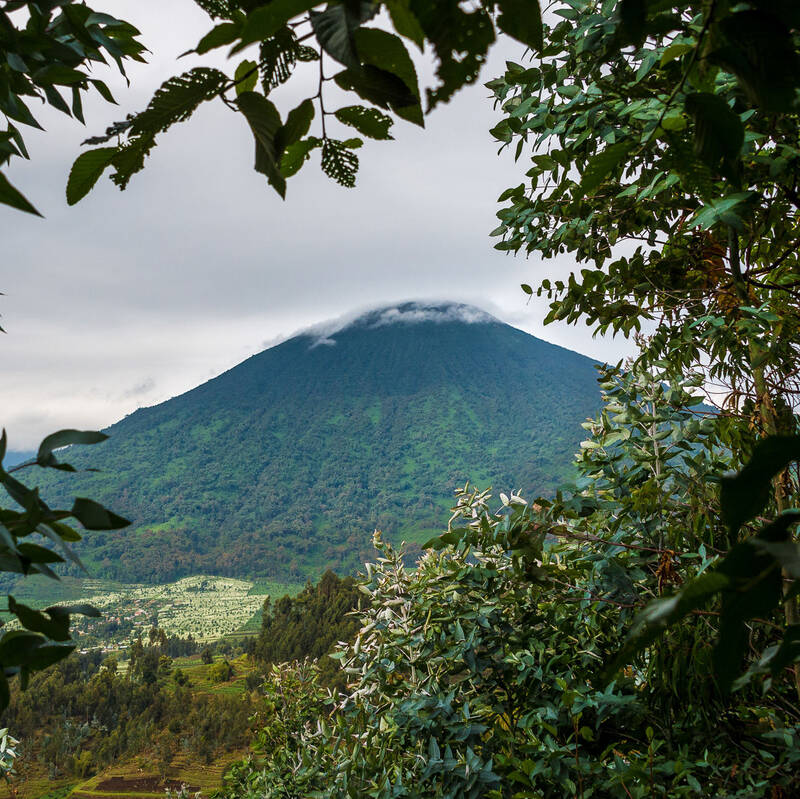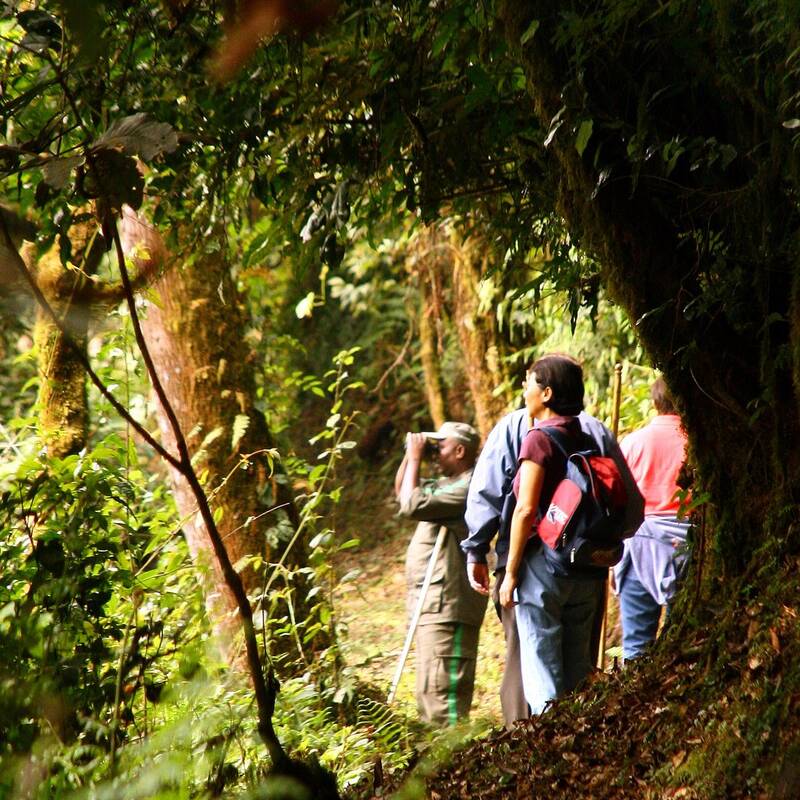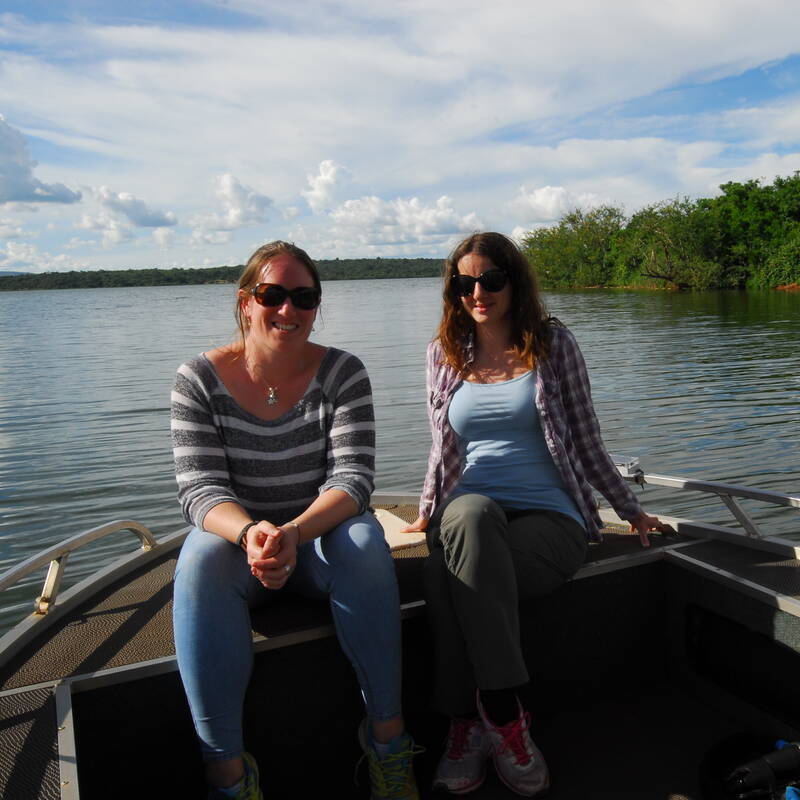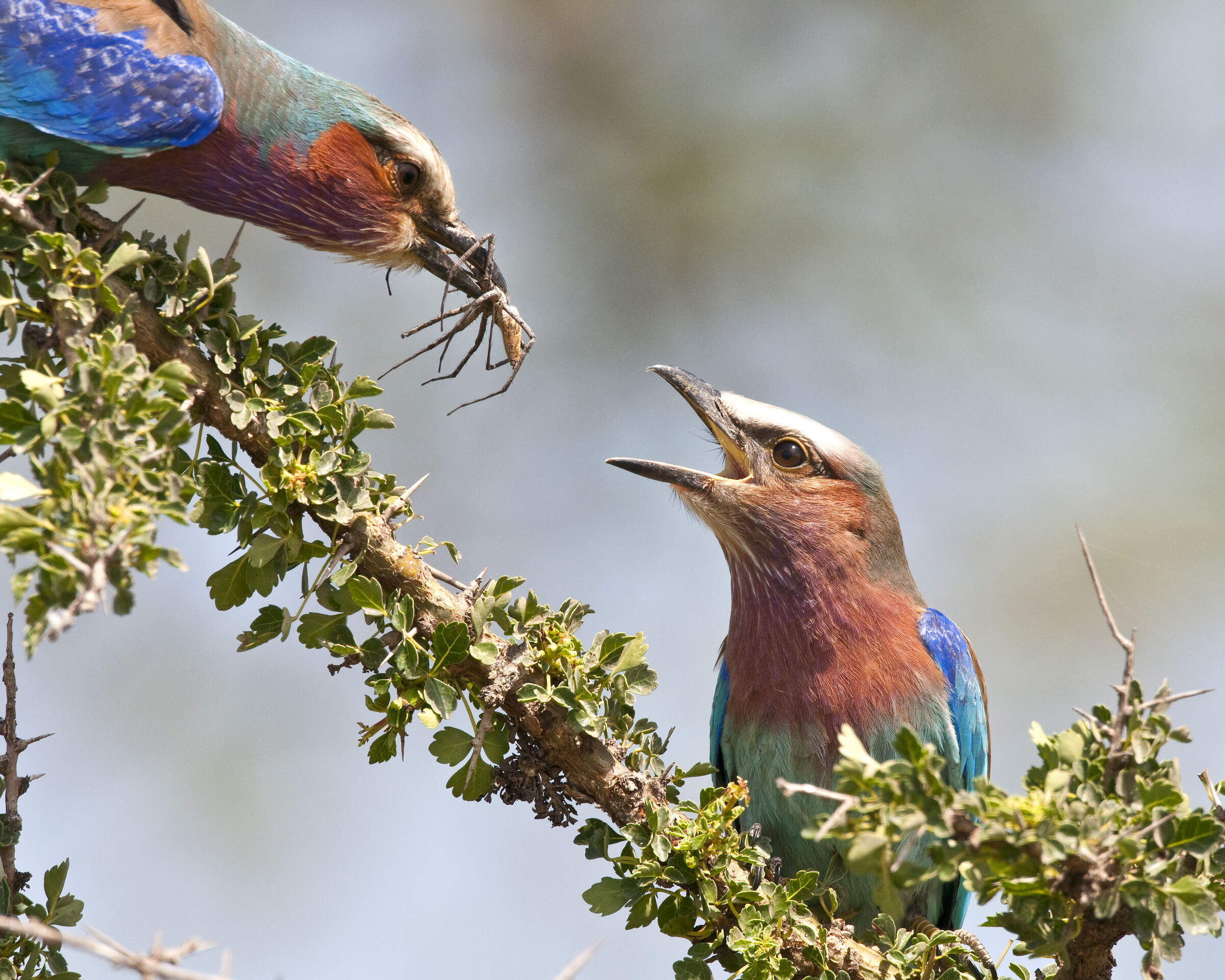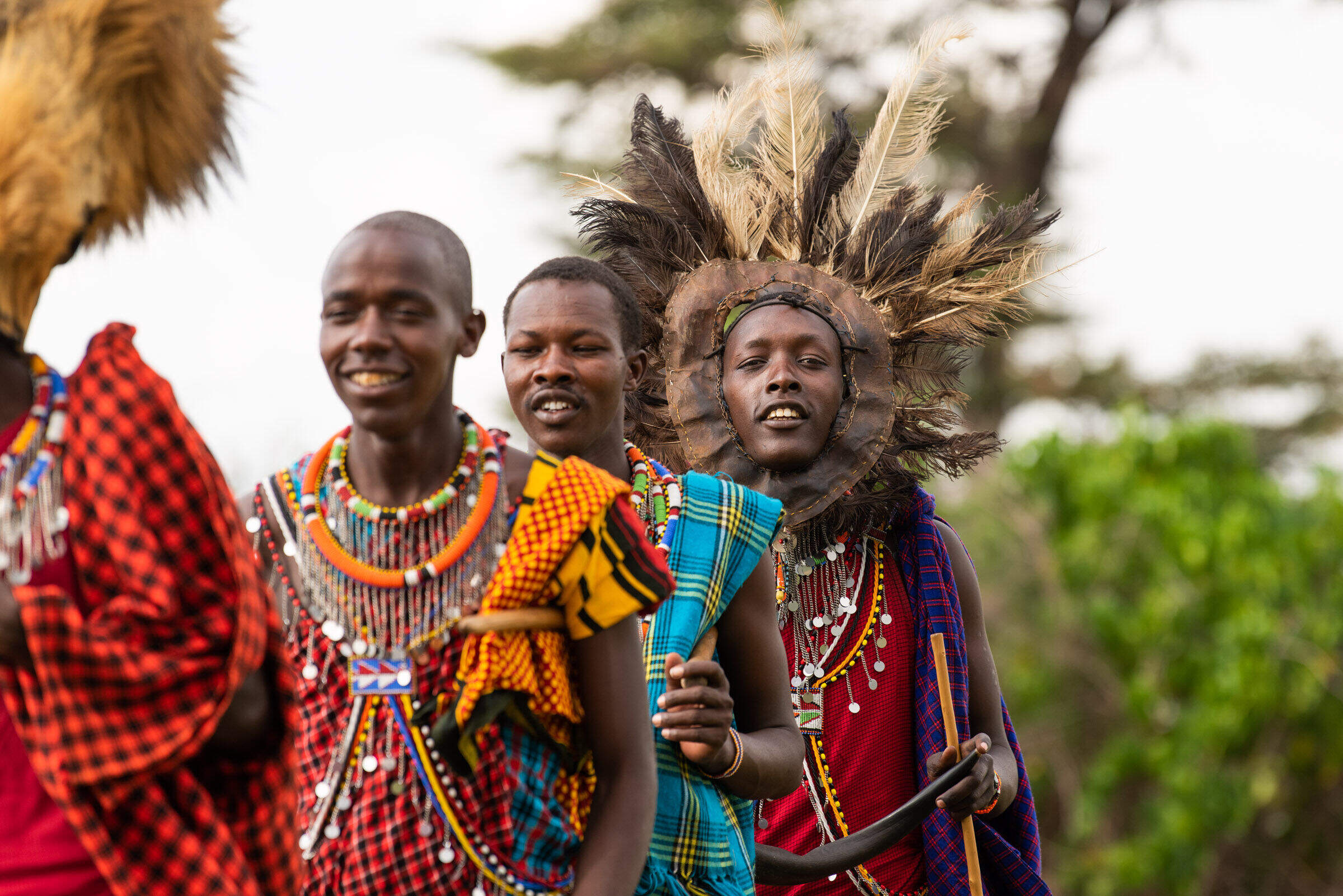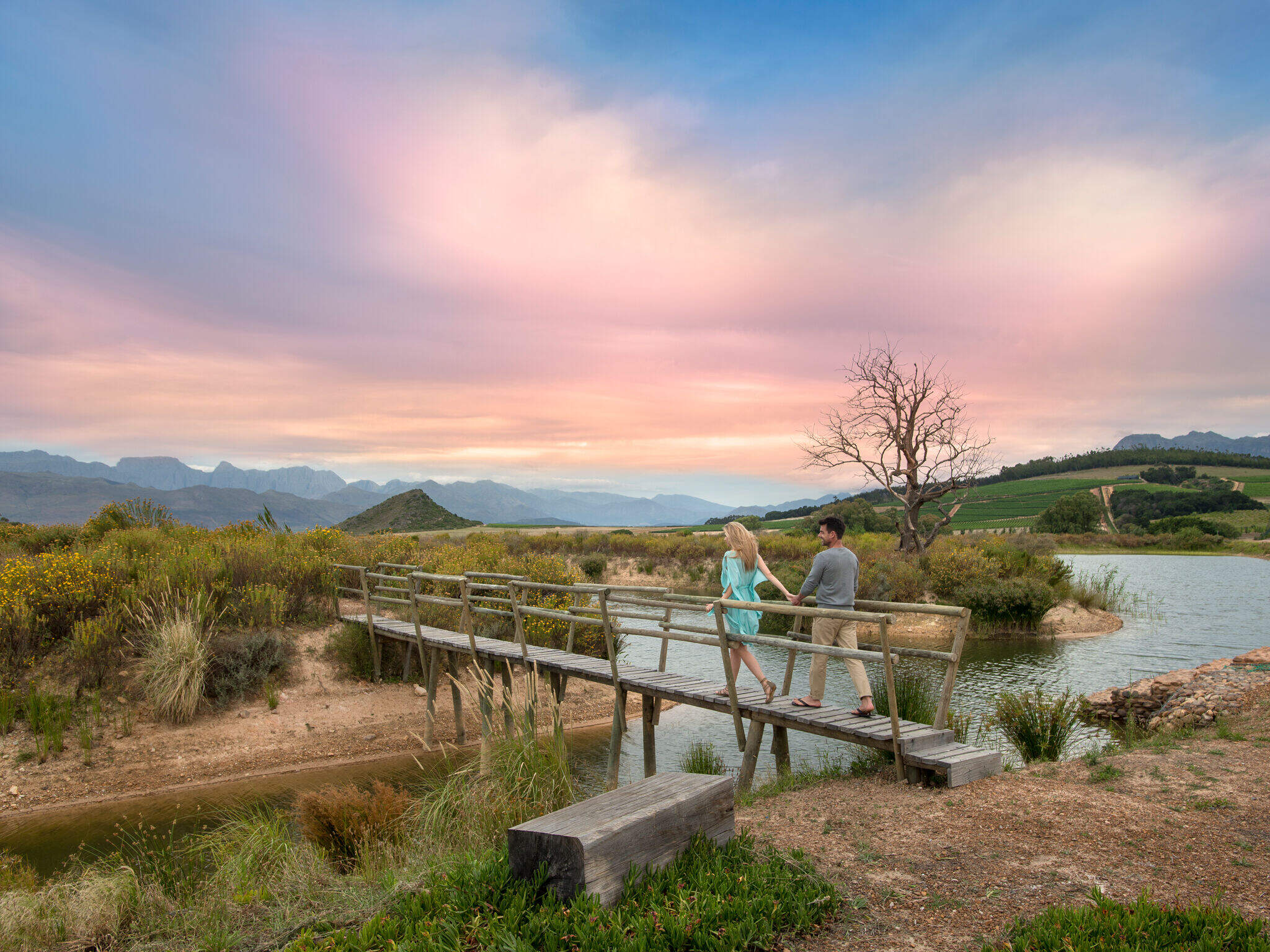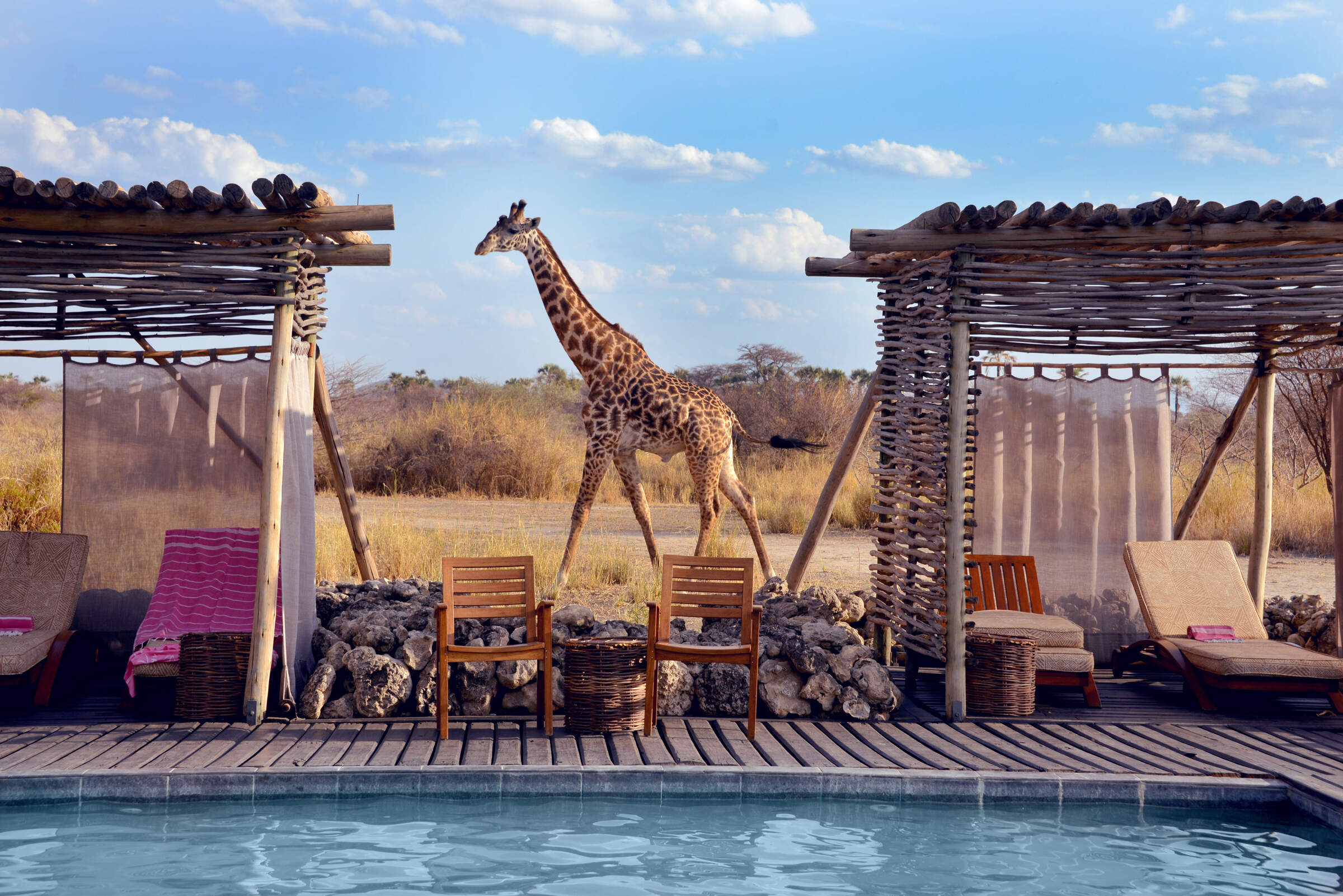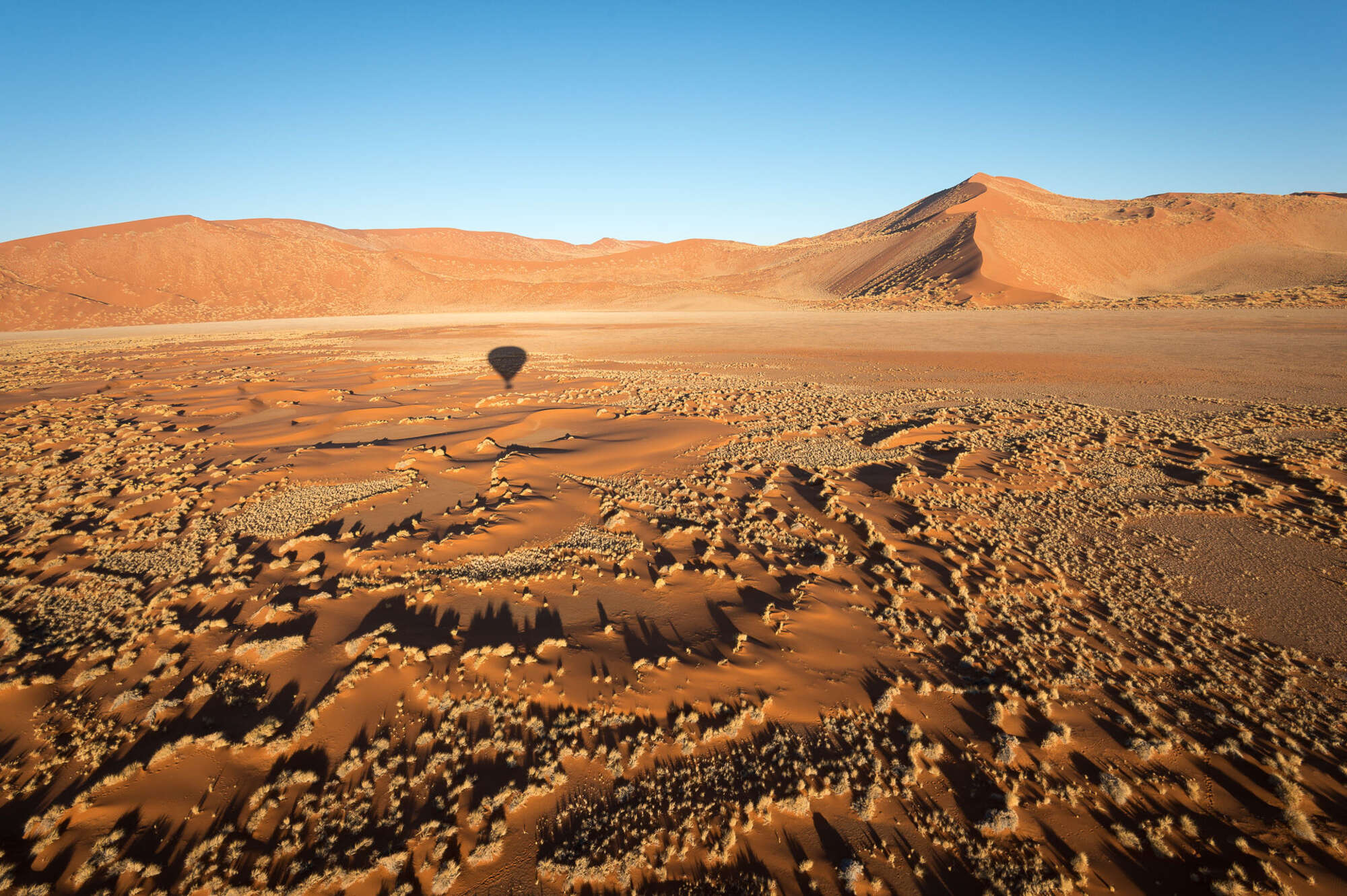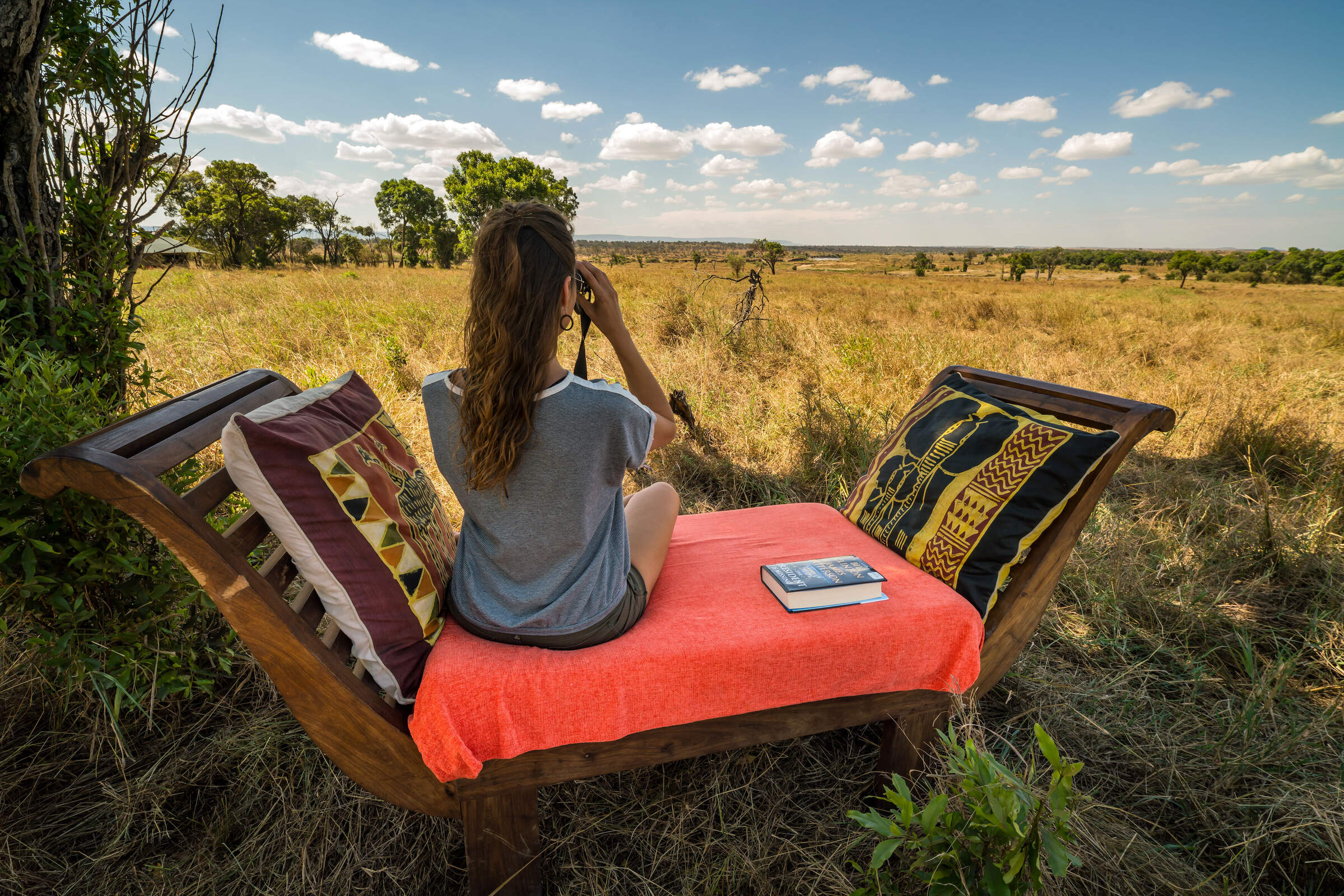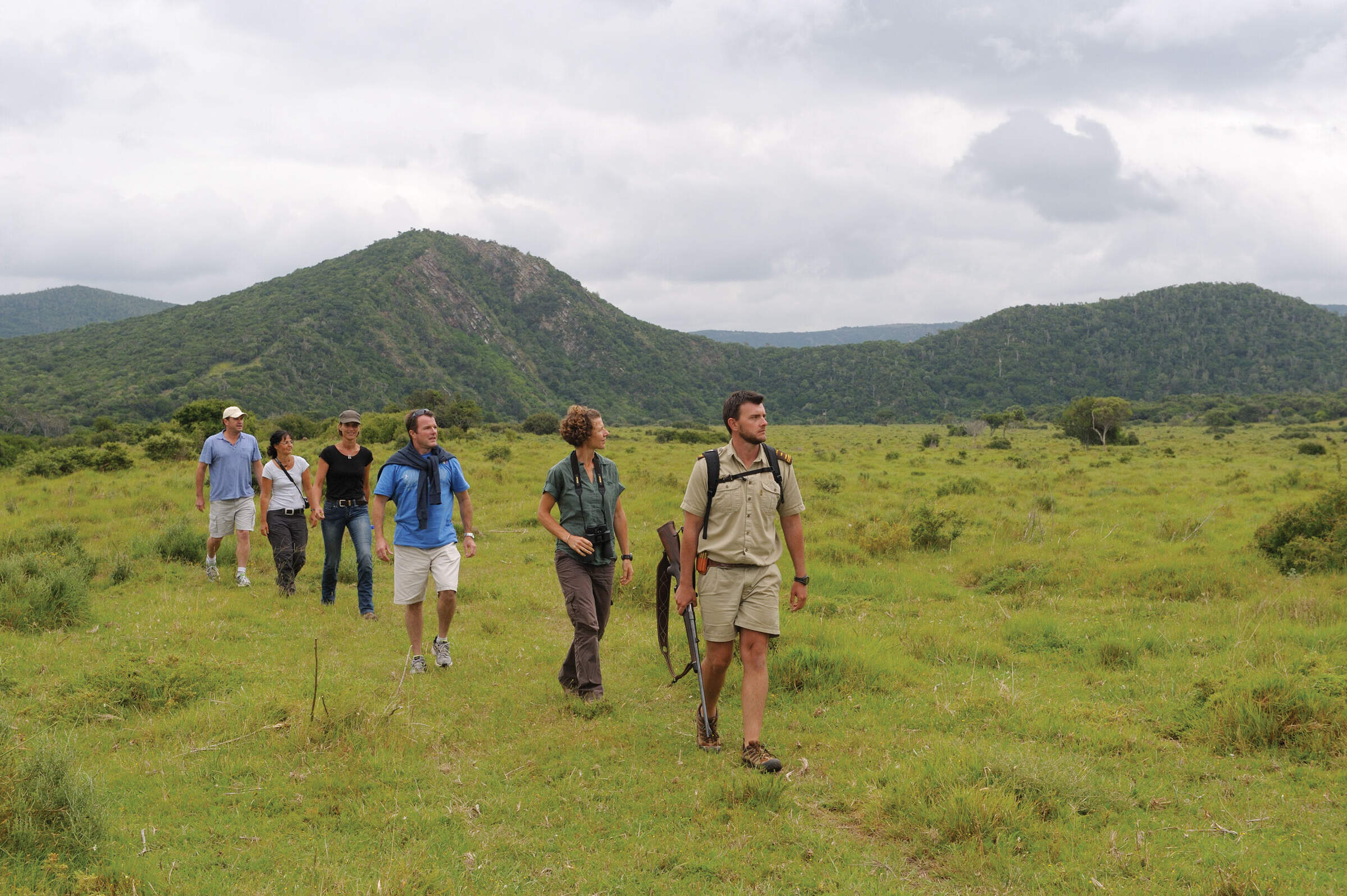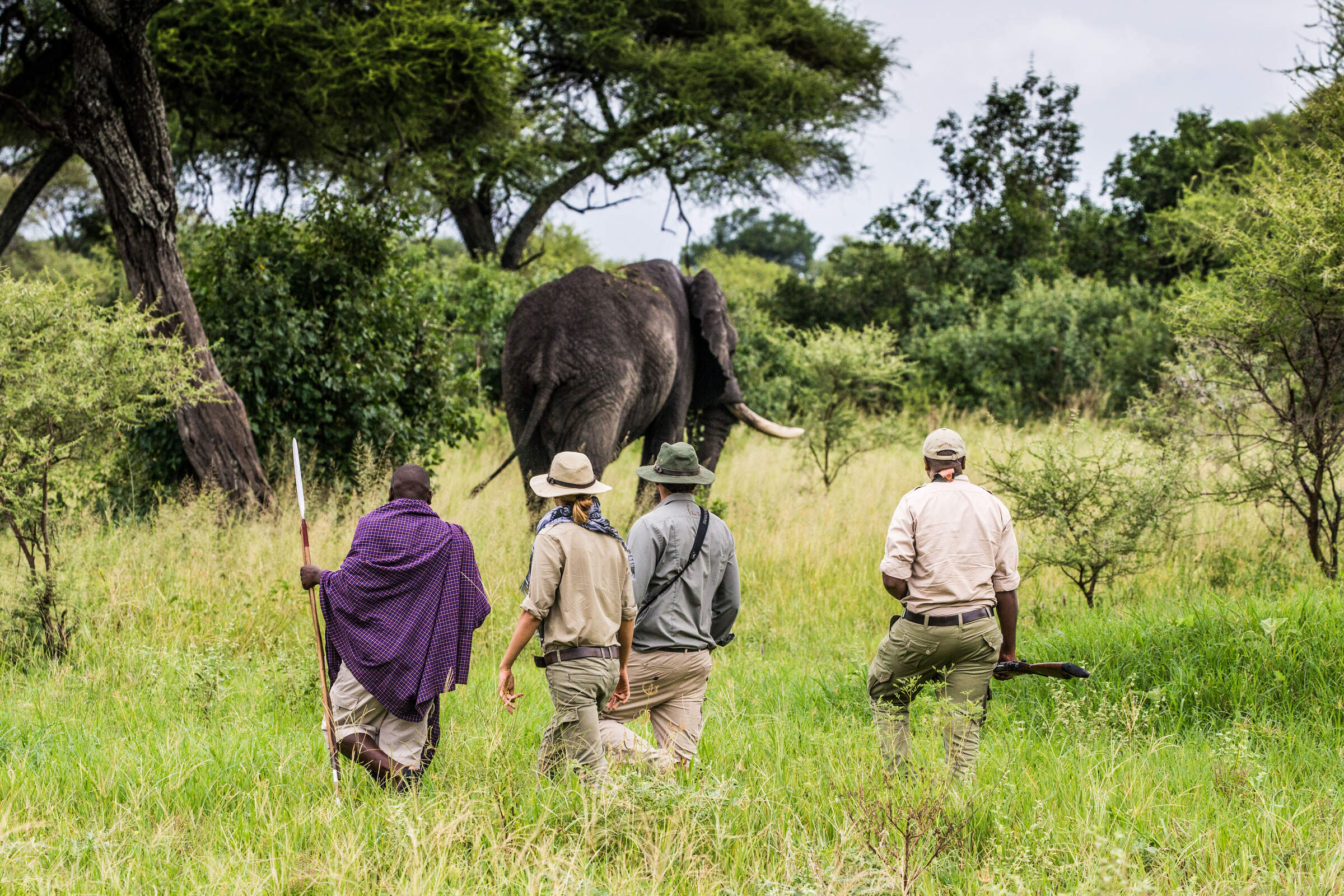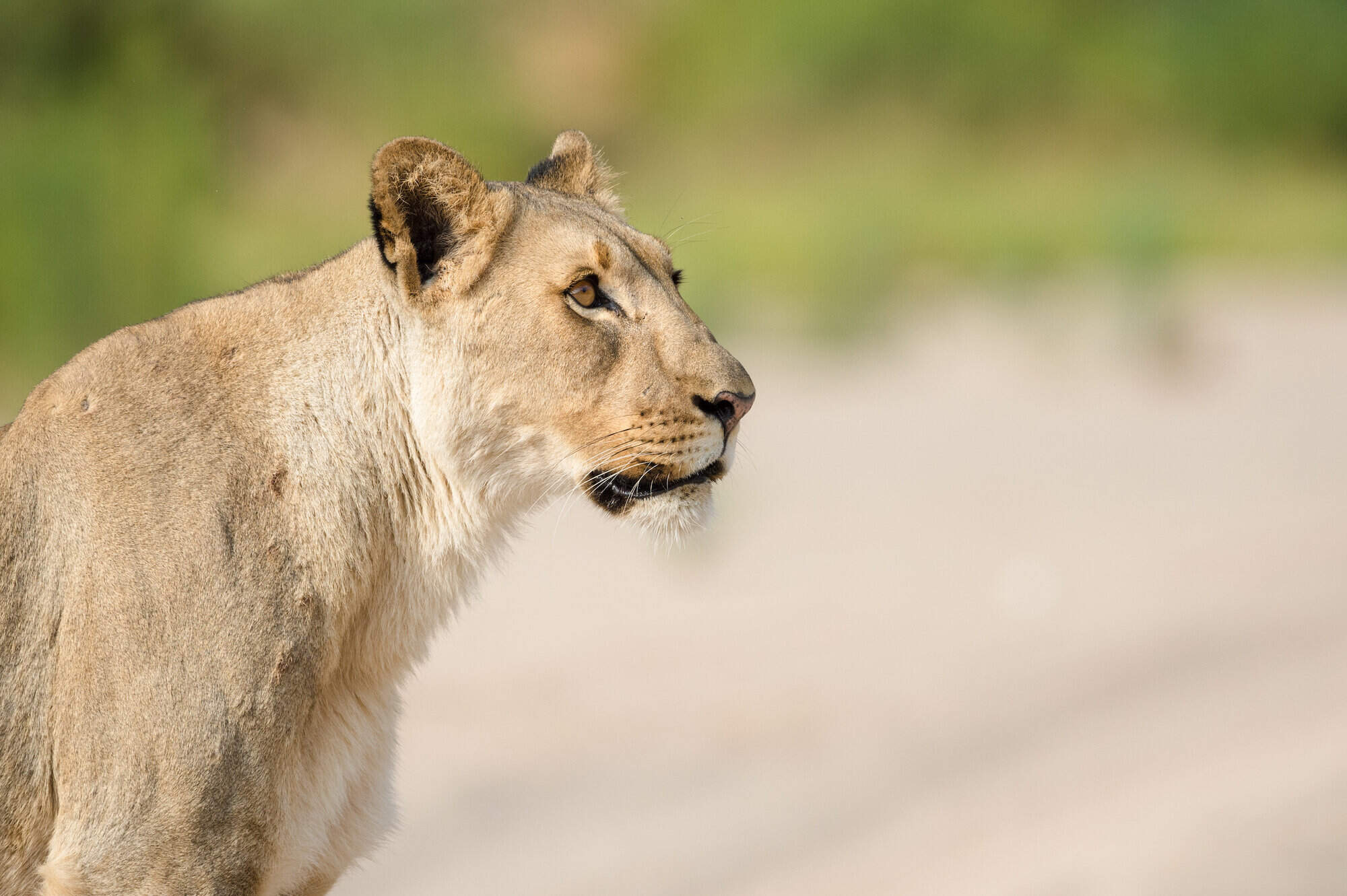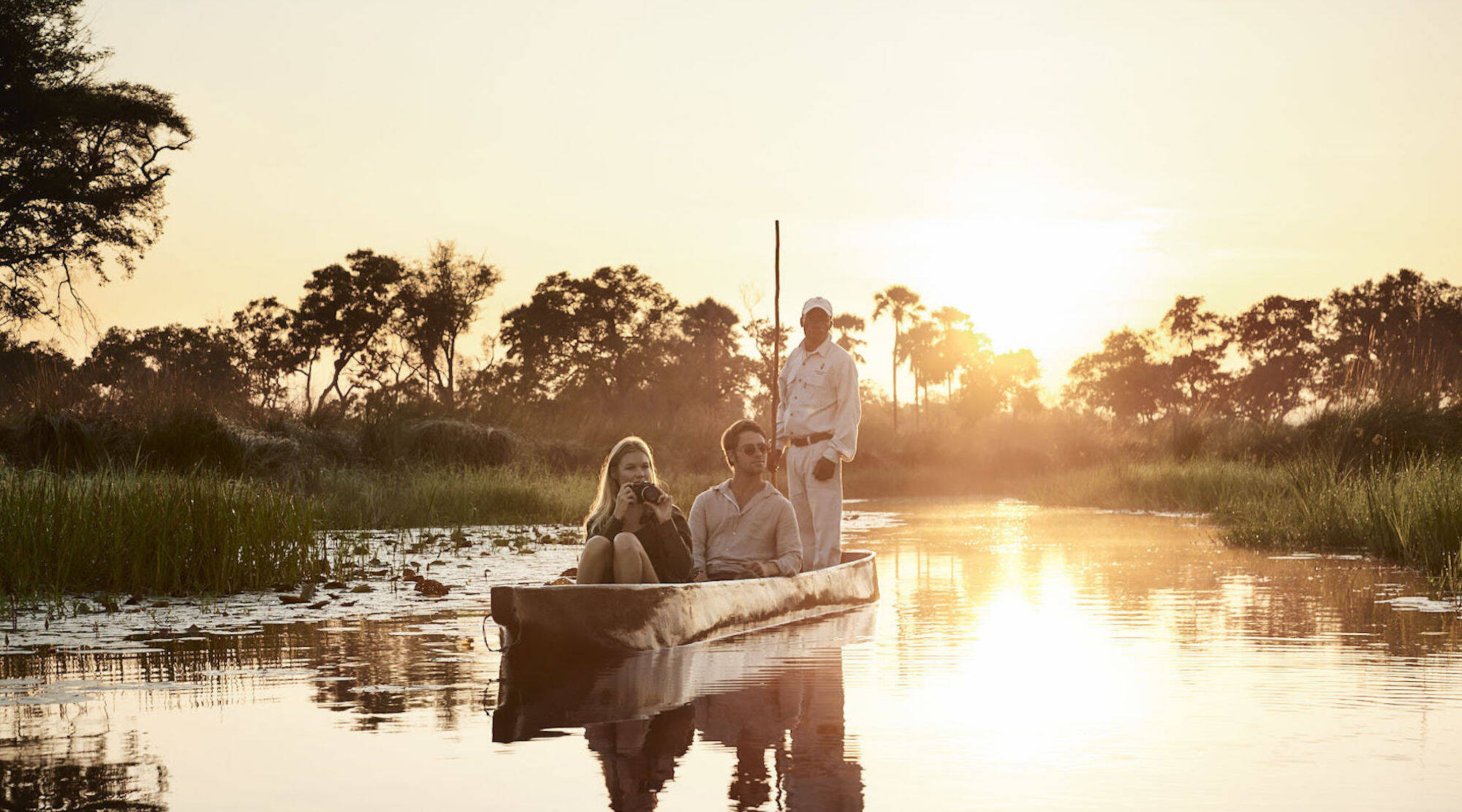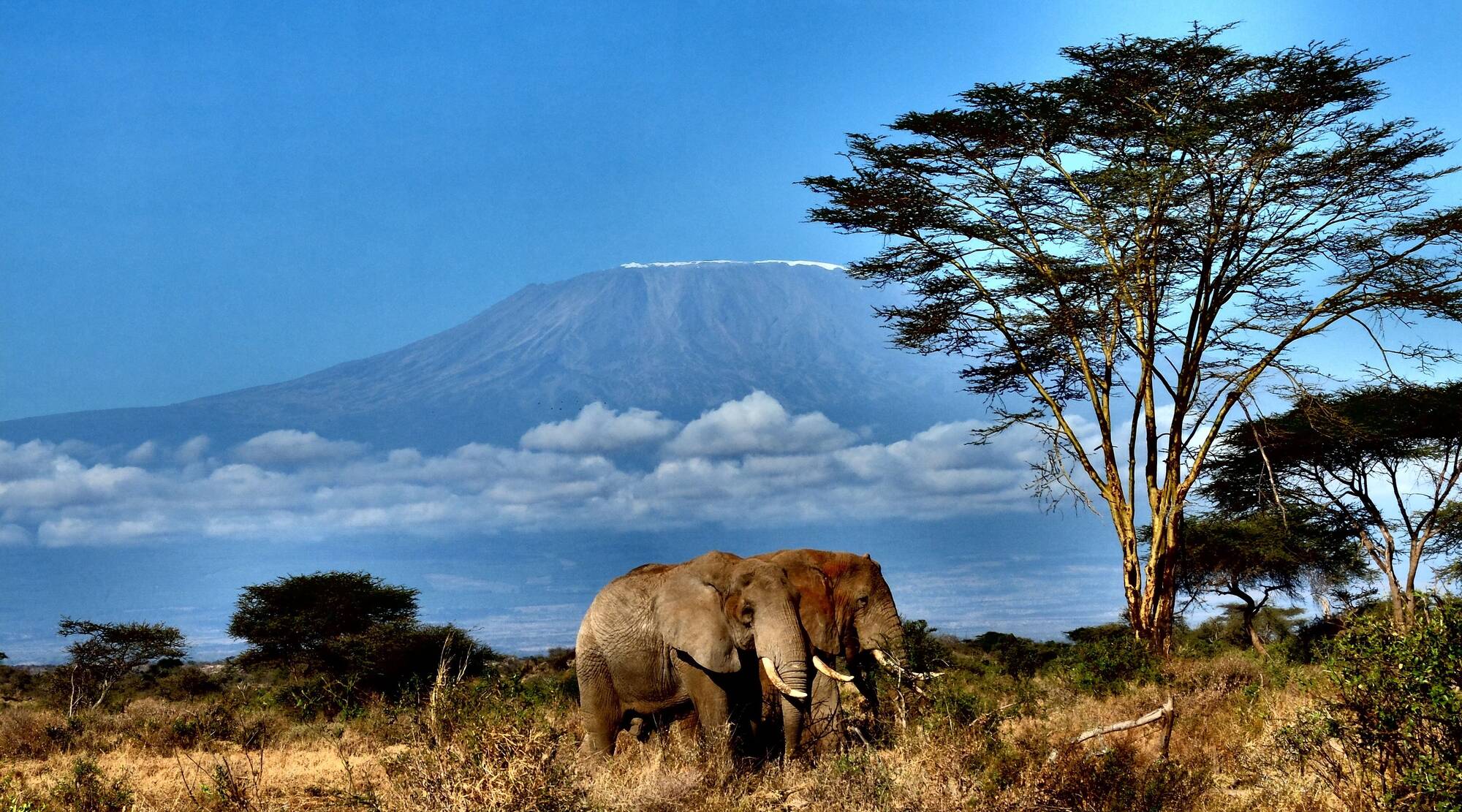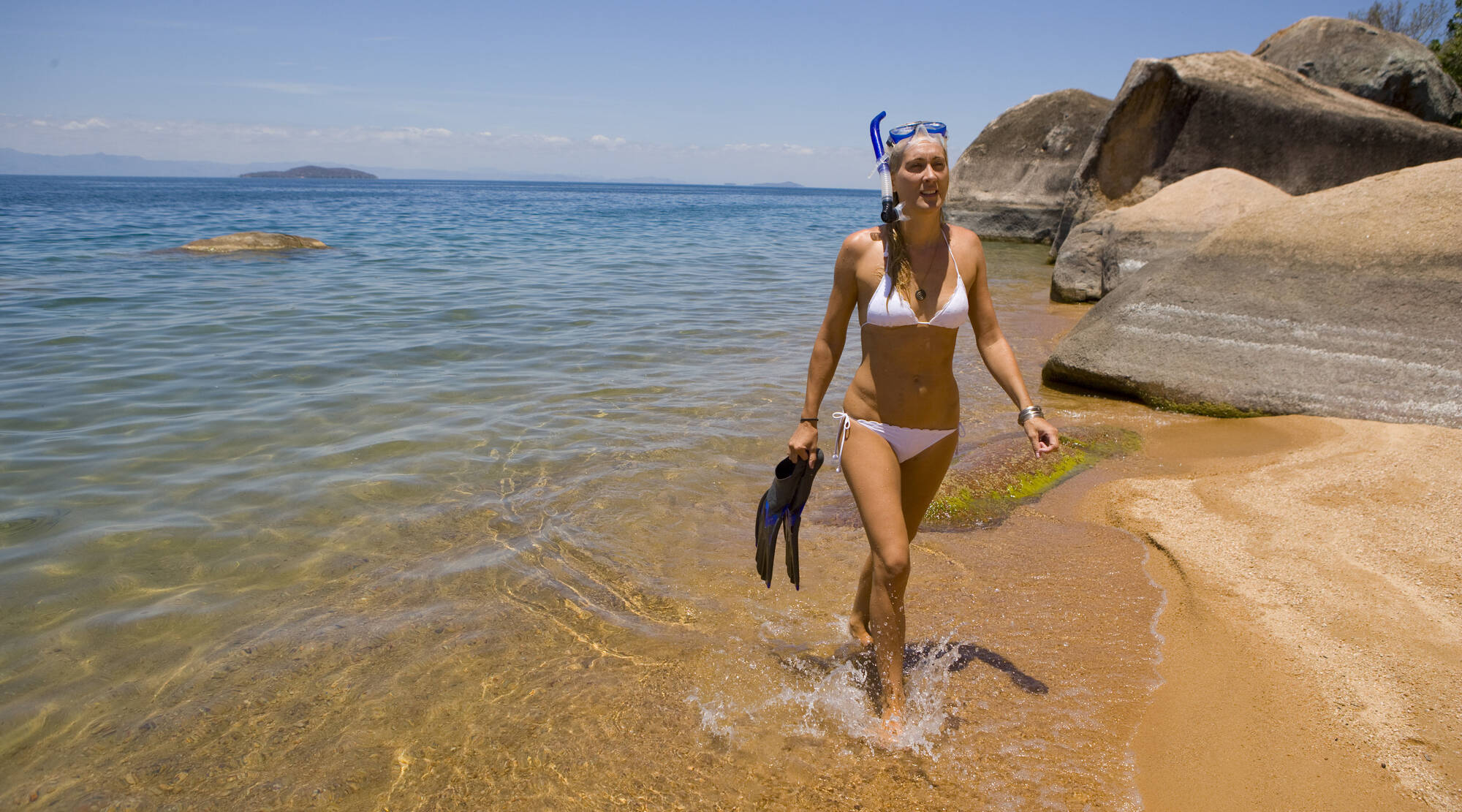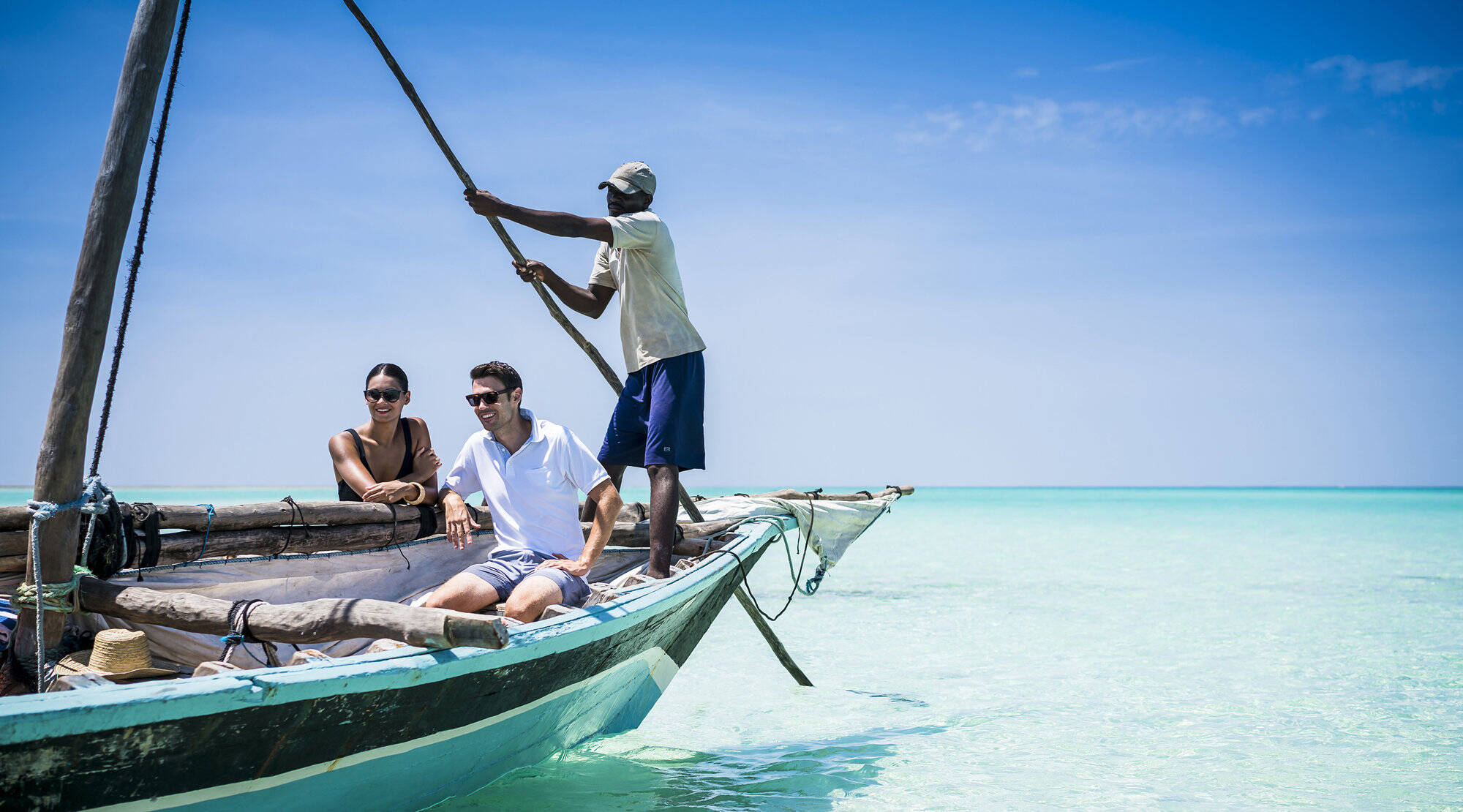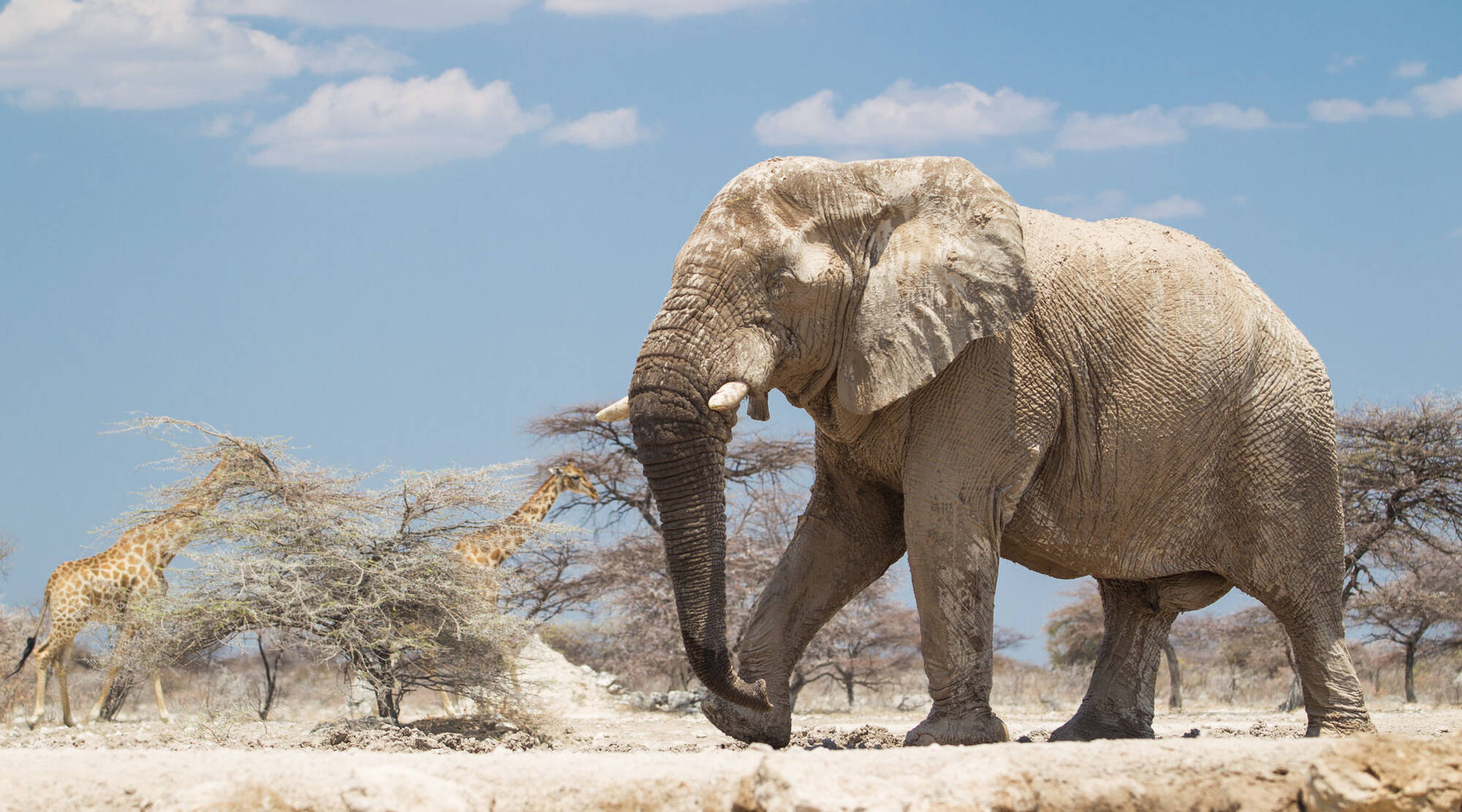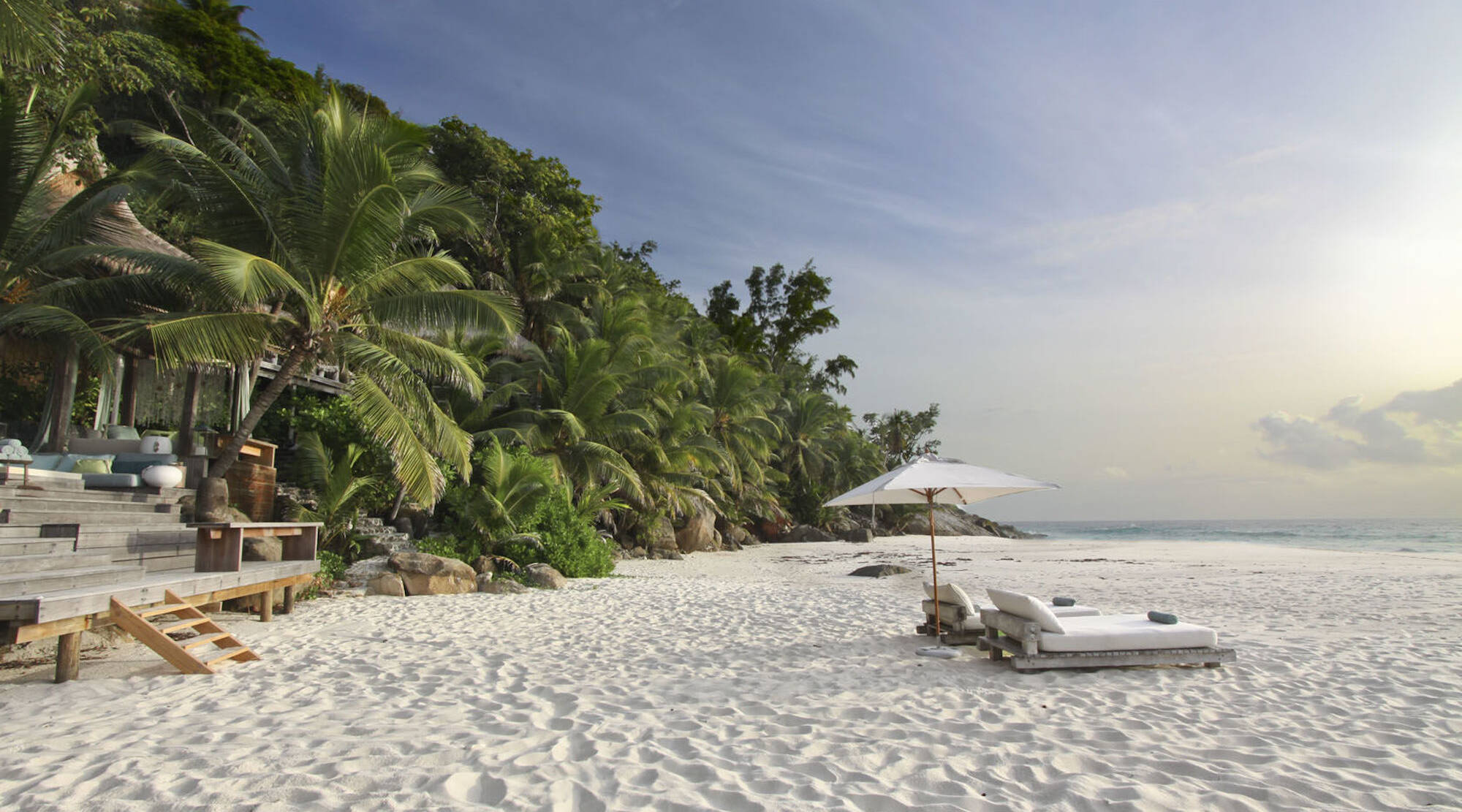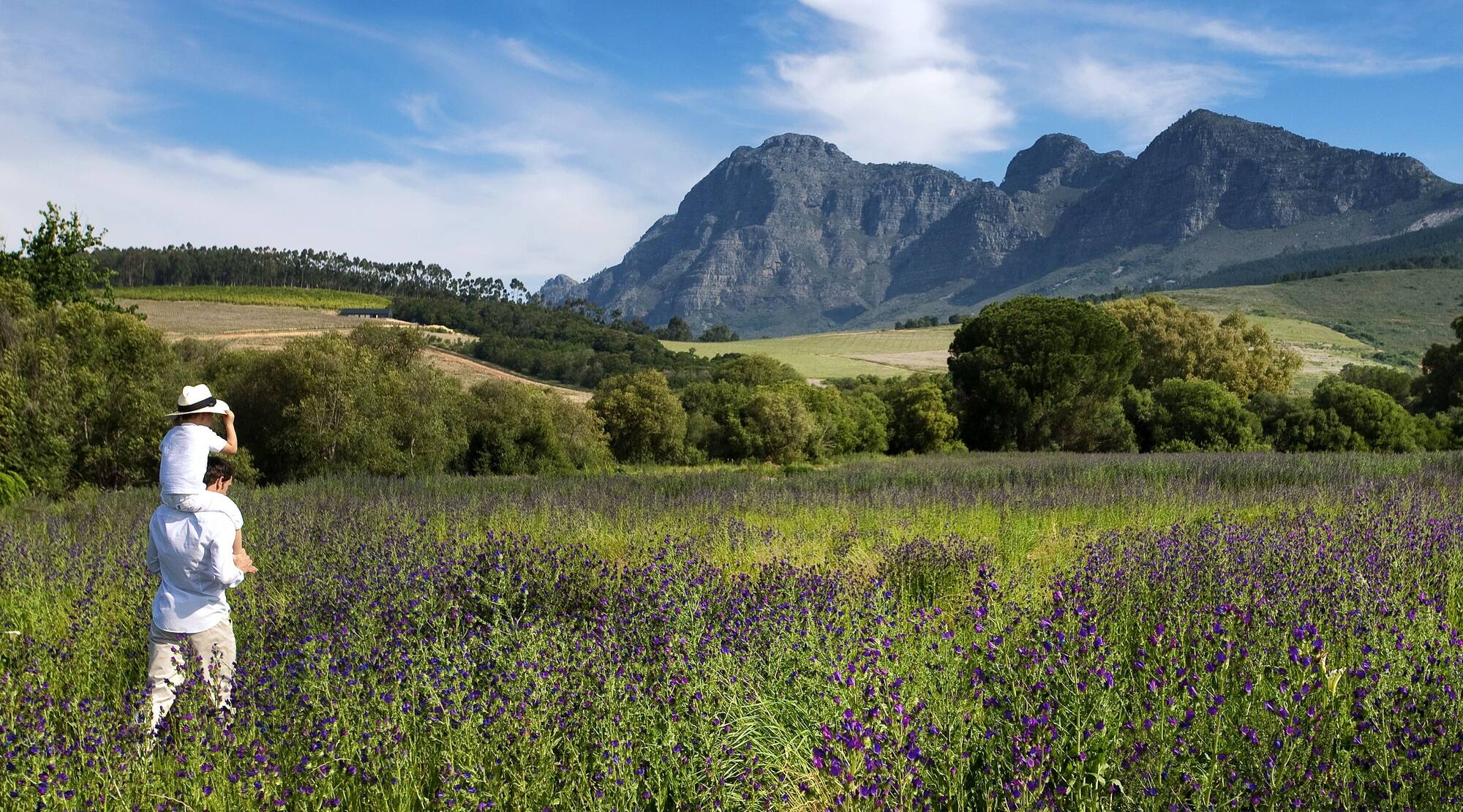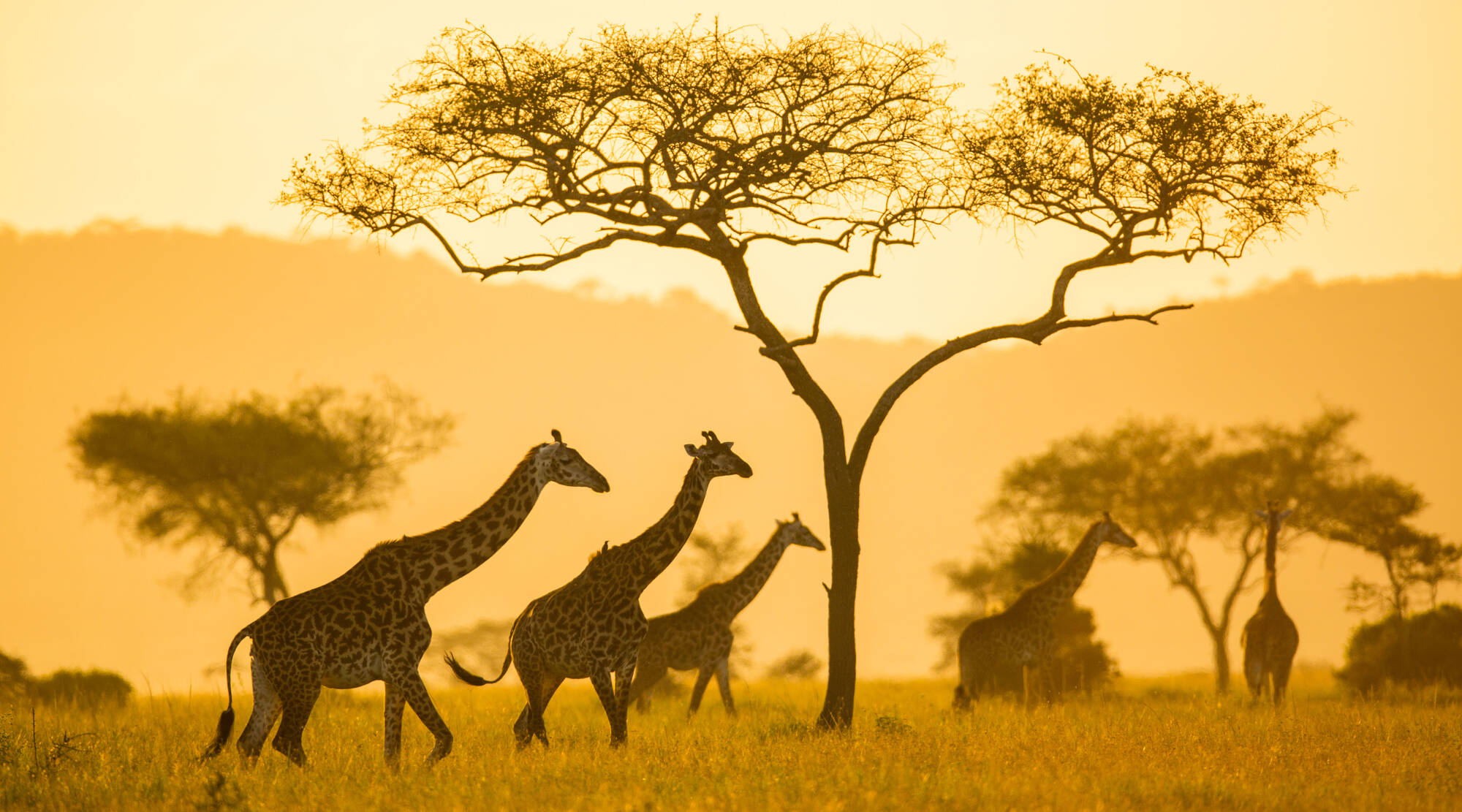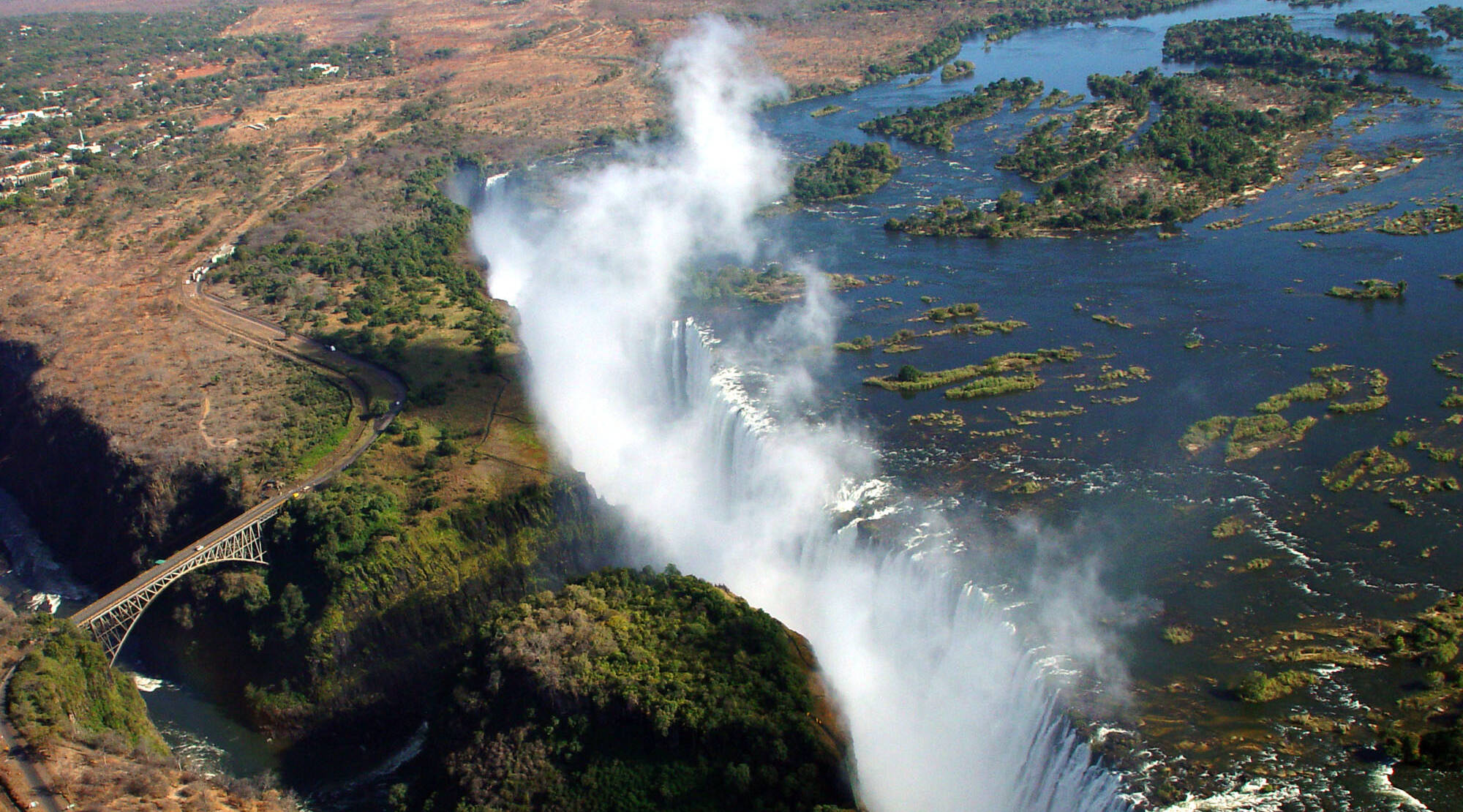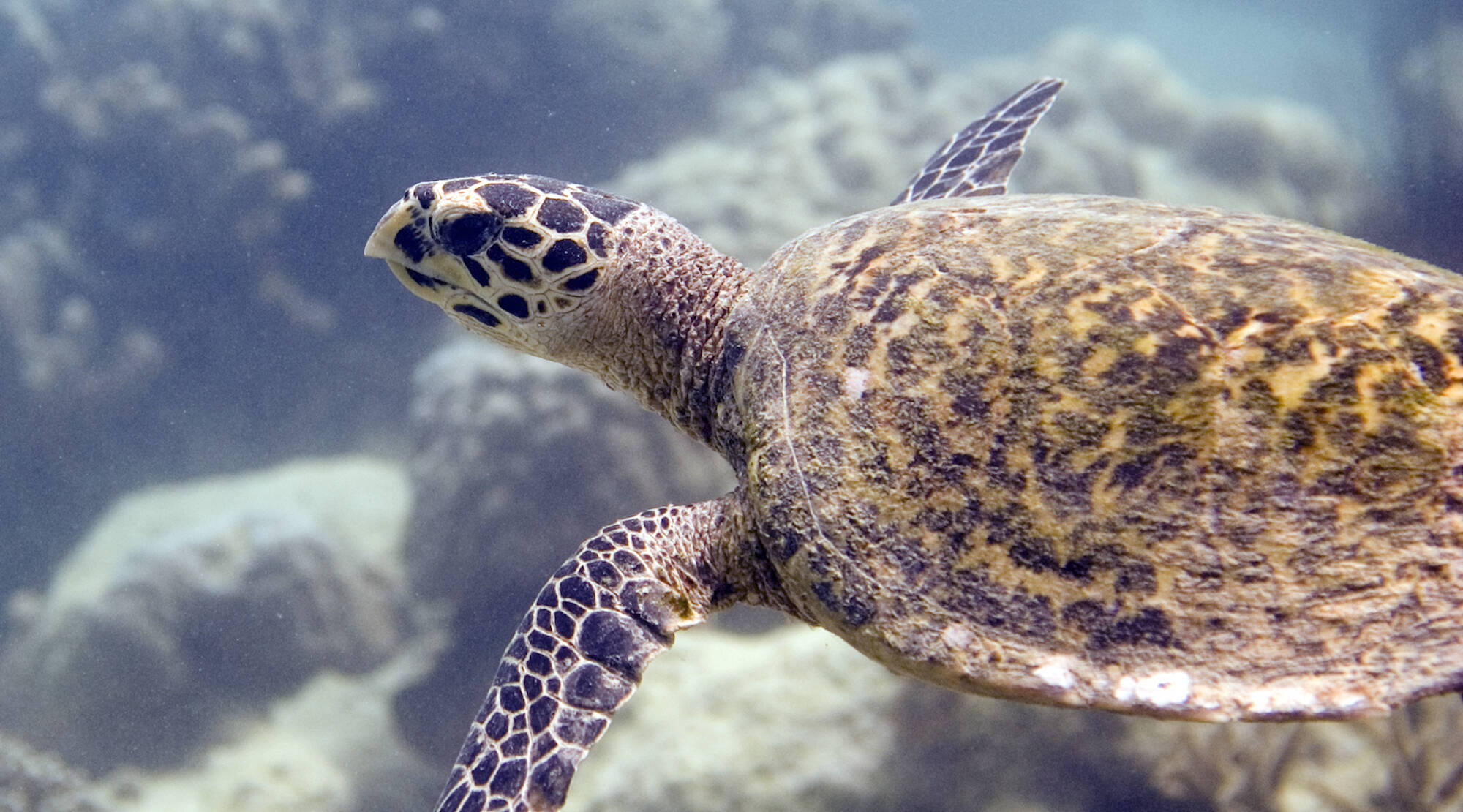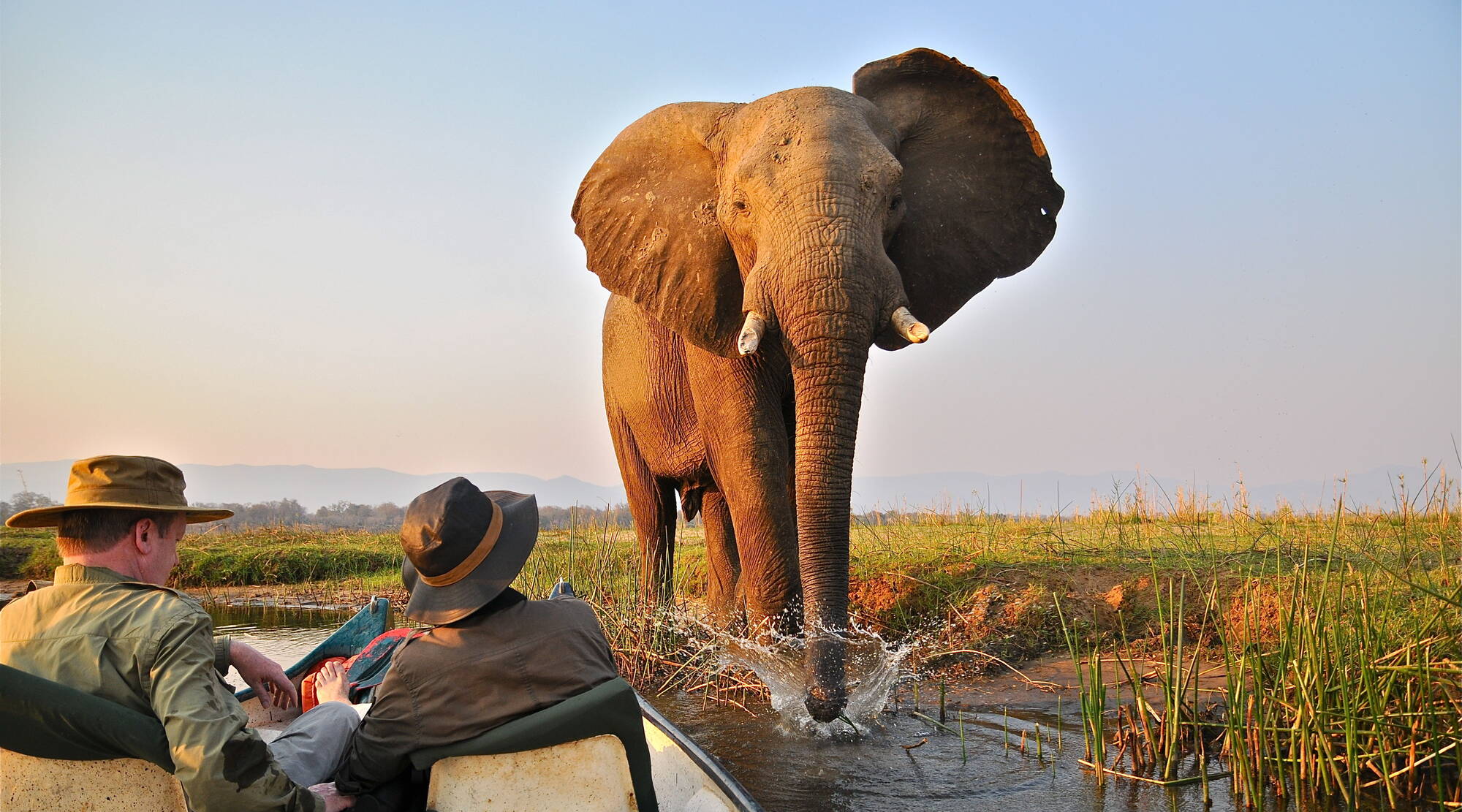Rwanda safaris, tours and gorilla trekking
To come face to face with a mountain gorilla is one of the most compelling natural experiences on earth.
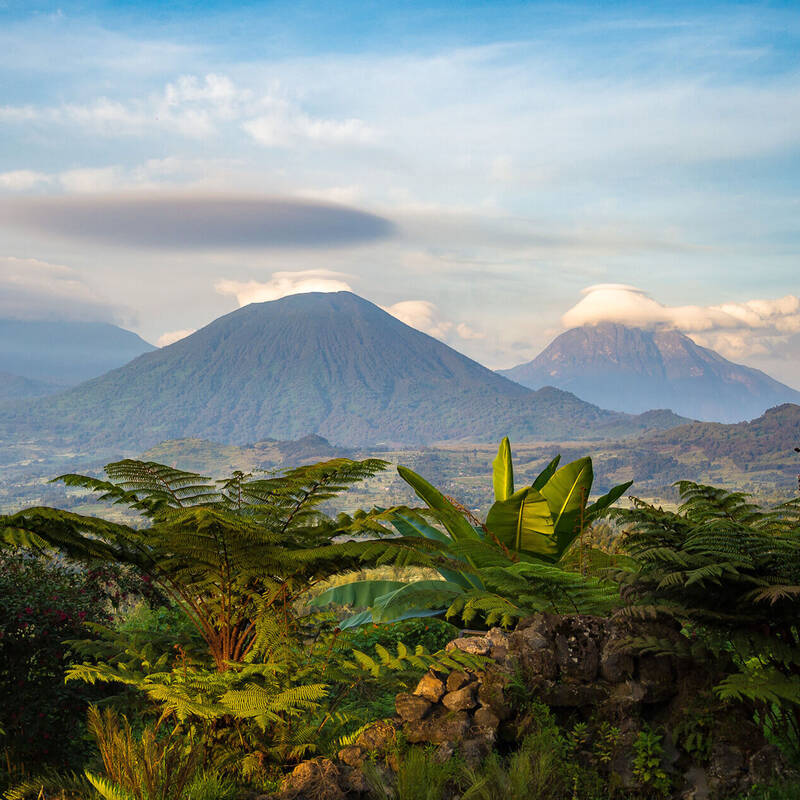
Roaming the thick forests of Volcanoes National Park, these gentle, communicative animals are without doubt Rwanda’s greatest attraction. With their complex personalities and extraordinary depths of understanding and emotion, they leave a lasting impression on every human visitor.
As you watch a lounging silverback tolerating the toddlers tumbling around him, or a nursing mother adjusting the weight of her infant and peering up in bemusement through the trees at a high-altitude jet, they seem to be persons of another kind.
While the gorillas are an absolute must-do, the quilt-like “Land of a Thousand Hills” has much more besides. Head south-west on switchback roads to track chimpanzees and watch stunning birdlife in the verdant cloudforests of Nyungwe Forest National Park.
Swim or kayak in the clear, warm waters of Lake Kivu, with its Mediterranean-like shoreline. Or venture east to the archetypal savannahs and lakes of Akagera National Park where the “big five” can all be seen, along with (if you’re extremely lucky) the elusive shoebill stork.
Rwanda came to the world’s attention during the 1994 genocide. Much of the healing process since has comes from the way this remarkable country has coped with the tragedy – from neighbourhood courts reconciling survivors with perpetrators to numerous monuments and museums, including Kigali’s poignant Genocide Memorial.
Combined with the many opportunities you’ll have to discuss the country’s past and present with your driver-guide and other hosts, the memorial leaves an indelible impression.
Speak to one of our Experts to start planning your dream Rwanda adventure.
Rwanda’s safari areas & key destinations
Volcanoes National Park in the north-west of the country is the most famous of Rwanda’s parks, renowned for its resident mountain gorillas. Not surprisingly, it is also the place that most people come to on holiday: Rwanda’s gorilla trekking is its biggest attraction.
Less well-known holiday options are Akagera National Park on its eastern border and Nyungwe Forest National Park in the south.
The only park with a savannah environment in Rwanda which can offer more “traditional" 4WD safaris is Akagera, which has good wildlife and opportunities to view it, albeit not on the scale of the parks in Kenya or Tanzania. But Akagera’s scenery is beautiful – it could be described as Rwanda’s Lake District – and it’s worth visiting for that alone. In stark contrast, Nyungwe features dense cloudforest, offering interesting hiking trails, birdwatching and primate spotting.
Rwanda’s national parks are easily accessible by road, so a circuit of all three, perhaps including the beautiful shore of Lake Kivu and the capital, Kigali, can make a fascinating and diverse holiday.

Volcanoes
8 places to stay
Volcanoes National Park is home to more than half the world's mountain gorillas – a handful of family groups moving gently through the high forests. It's the best place in Africa to meet them.
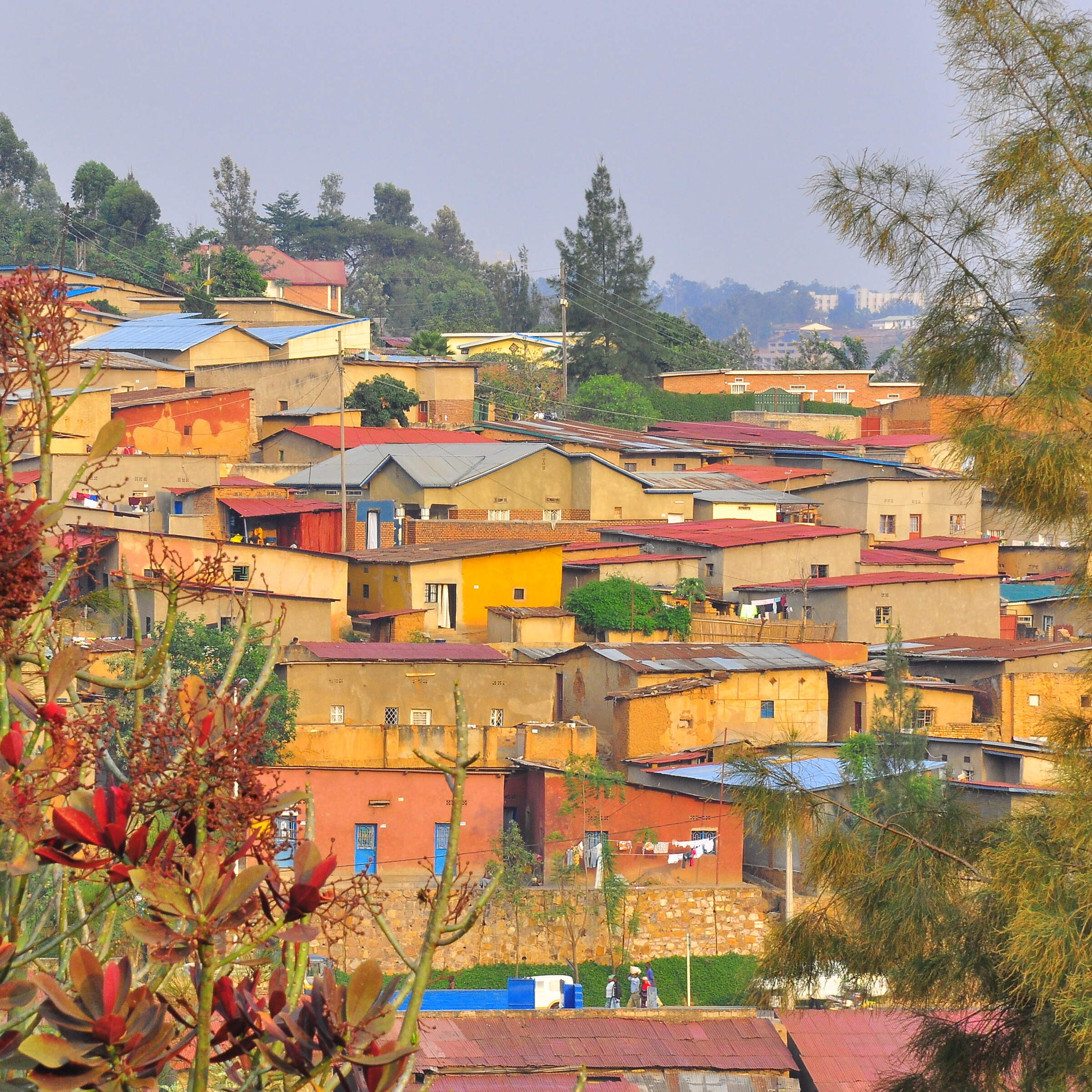
Kigali
6 places to stay
Kigali is Rwanda's attractive capital, and invariably features on Expert Africa road tours as an overnight stop. Stays invariably include a visit to the poignant Genocide Memorial.
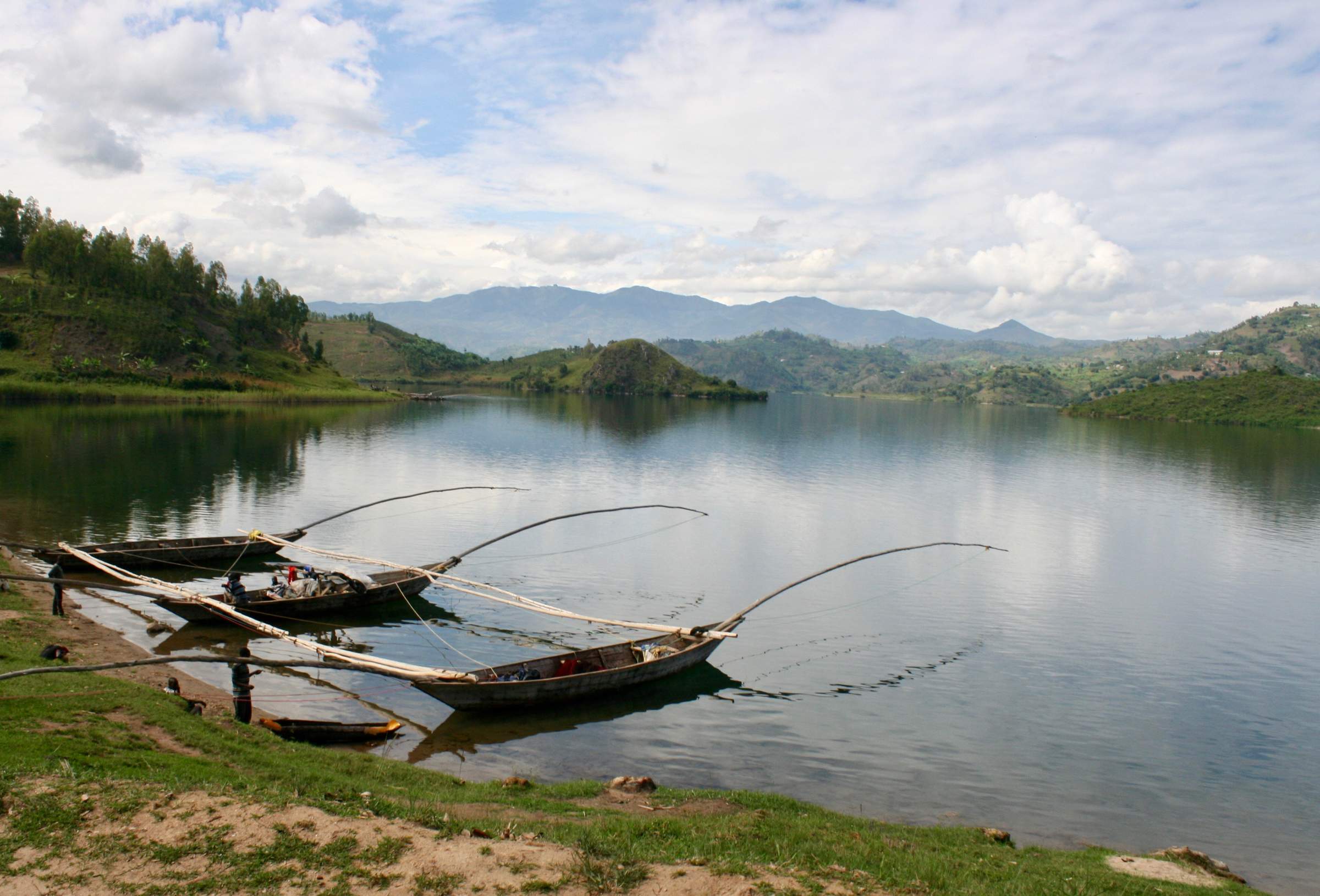
Lake Kivu
5 places to stay
The Rwandan side of Lake Kivu is a picturesque lakeshore region with some comfortable lodges. The new lakeside road weaves above the lake through eucalyptus and banana groves.
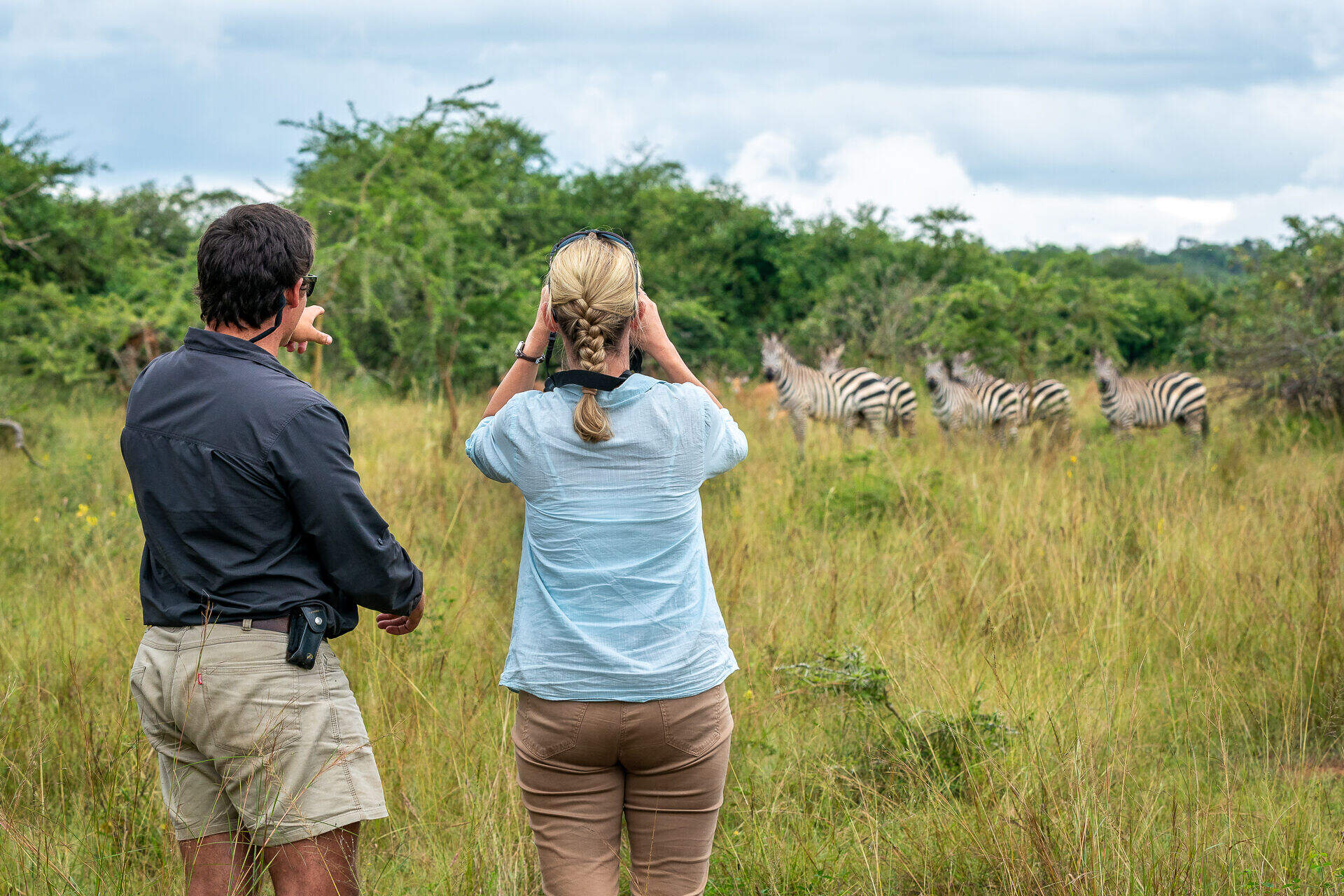
Akagera
3 places to stay
Scenic Akagera covers 1,100km² of grasslands, lakes, swamps and woodlands and is home to the so-called Big Five as well as many other mammals and hundreds of species of birds.
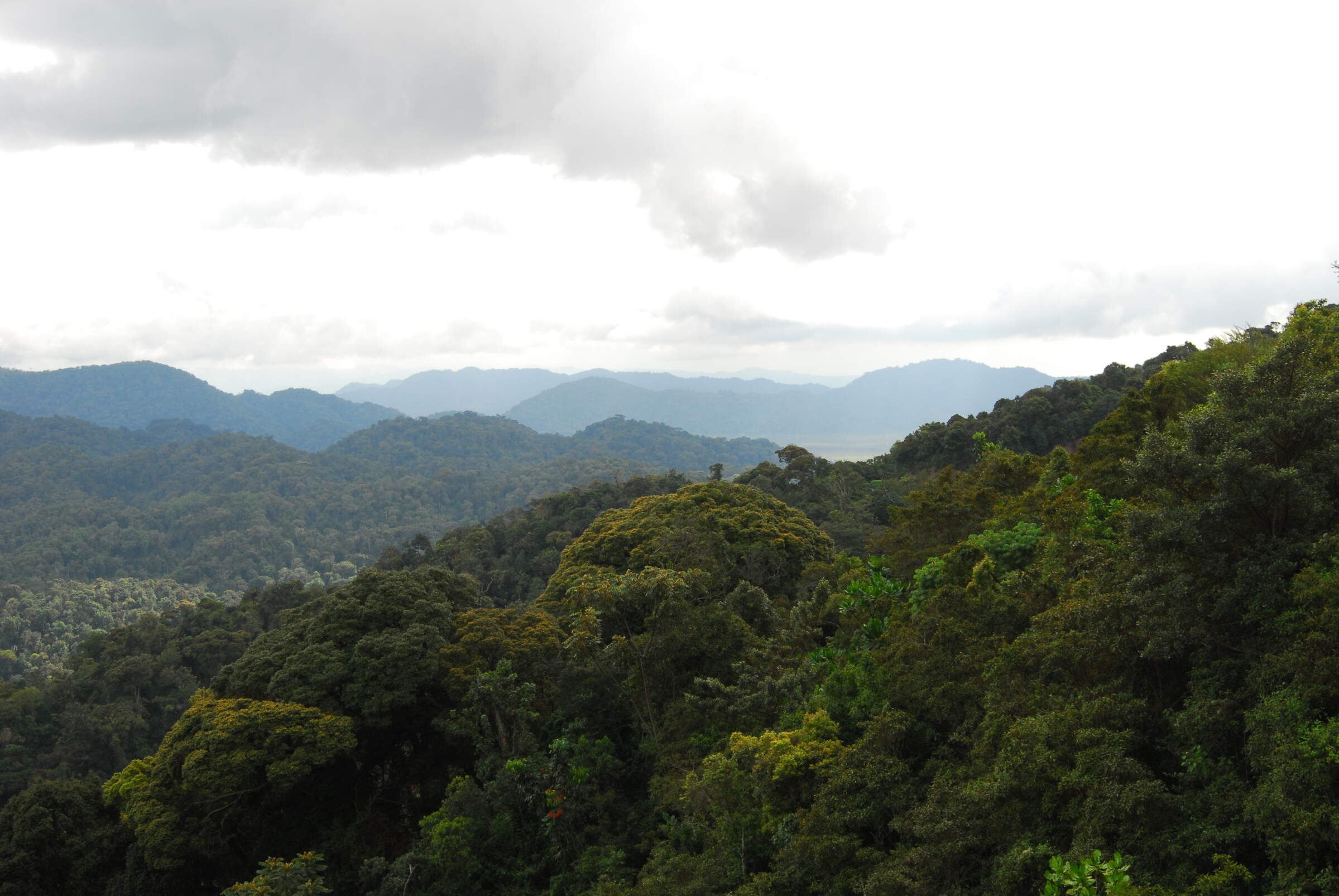
Nyungwe Forest
2 places to stay
Nyungwe Forest National Park is the largest swathe of tropical montane forest in East Africa, and home to a bewildering range of flora and fauna, including 13 species of primates.
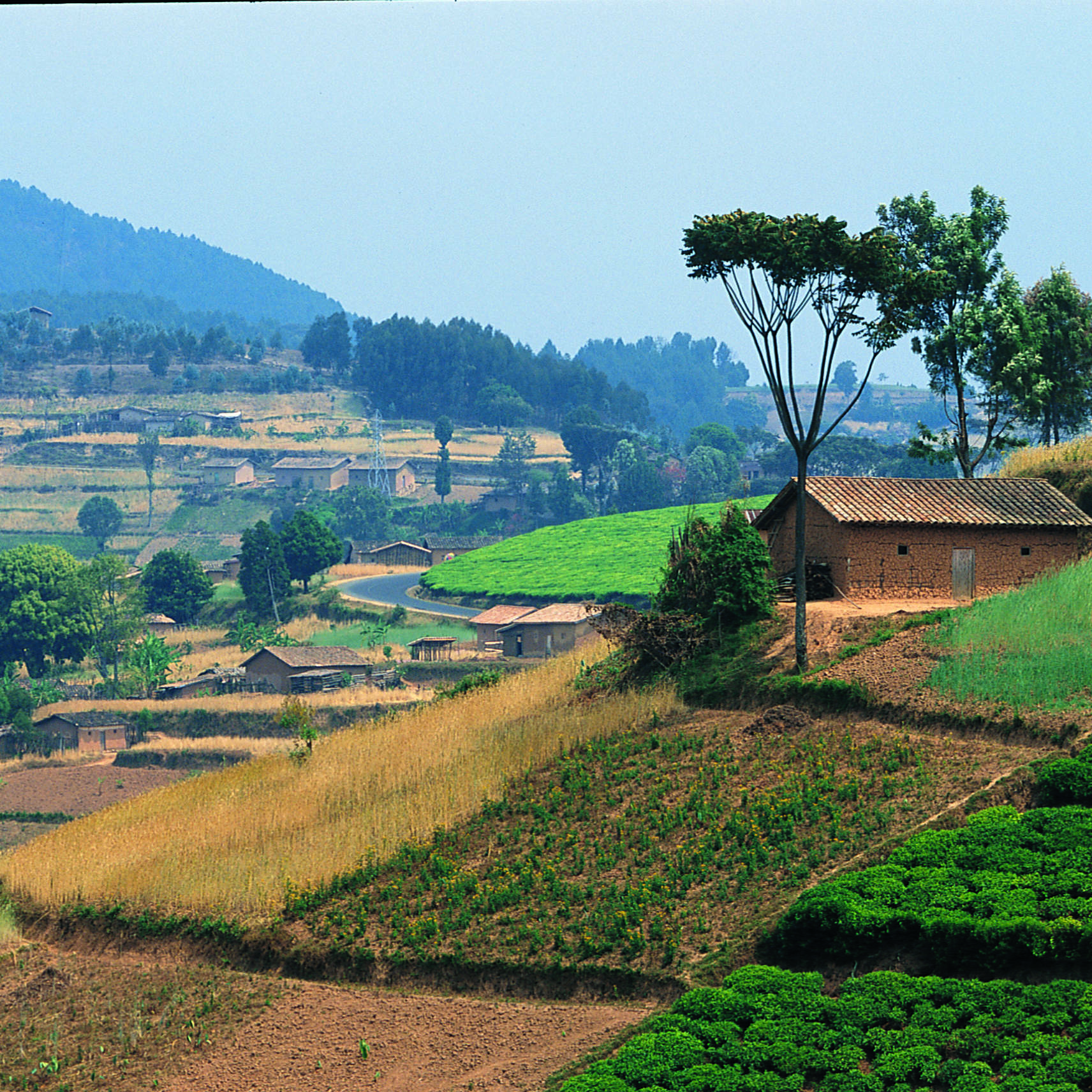
Gishwati-Mukura
1 places to stay
This new national park connects the Gishwati and Mukura forests in western Rwanda and aims to provide first-class forest birding and eventually chimpanzee-viewing.
Our best wildlife holidays in Rwanda
If the focus of your trip to Rwanda is exclusively gorilla trekking, you can accomplish this in just a few days. However, Rwanda has much more to offer, so a longer trip would allow you to visit parks such as Nyungwe Forest and Akagera. Or consider combining the country with one of the neighbouring wildlife destinations.
The suggestions below have a range of durations, each incorporating all-inclusive safari lodges, excellent guiding and gorilla trekking in Rwanda. Longer trips take in a suggested circuit of this beautiful country, while still others take you from Rwanda to Tanzania or Kenya, or – for the truly adventurous – on an epic “highlights of Africa” trip.
As all our trips are tailor-made, these are just ideas. Whatever your interests – whether canoeing on Lake Kivu, tracking chimpanzees or spotting the “big five” – take a look, then give us a call and let us help you create your dream trip to Rwanda.
Our travellers' most recent reviews of Rwanda holidays
Whenever our travellers return from their trips to Rwanda, and elsewhere, we ask for their feedback; their honest reviews are integral to the way we work.
Not only do they help us and other travellers to plan their own trips, they also help us to keep fully up to date. They’re also appreciated by those working in Rwanda, who value feedback that is guaranteed to be genuine.
All of our Rwanda holiday reviews are published in full, without us editing them. See all 186 reviews here, or click on a card below to read one of our most recent reviews in full.
Our travellers' wildlife sightings across Rwanda
Rwanda is renowned for its wildlife, above all the primates. Whenever our travellers set off on a safari to this extraordinary country, we ask them to consider keeping a record of their sightings of key species, from mountain gorillas and chimpanzees to lion and to black rhino.
For many travellers, this adds another layer of interest to their trip, and in turn their information helps us to build up a unique picture of where and when you are likely to find Rwanda’s key wildlife species: citizen science in action. Read how this survey works.
For more detail on what you’re likely to spot from individual camps and lodges, see our interactive map showing the best locations for key wildlife species in Rwanda.

100% success

100% success

100% success

100% success

100% success

100% success

88% success

75% success

75% success

44% success

33% success

25% success

20% success

13% success

0% success

0% success

0% success

0% success
Where to find Rwanda’s key wildlife species
Every wildlife sighting report from one of our travellers enhances our understanding of the best places and times for sighting the country’s main animal species.
You can find these results on our website – on our reviews of individual camps and reserves, on our dedicated wildlife pages, on our maps and on our individual holiday pages.
Whether your primary interest is mountain gorillas, or you’d love the thrill of spotting a giraffe in Rwanda, take a look at our data to work out the best places for seeing them amidst the country’s varied wildlife.
For a map of the best locations to see a given species, click on a card:
When to see gorillas & safari in Rwanda
A holiday in Rwanda is possible all year, but the most popular times to travel are in the long dry season, from June to September, and the shorter dry season around December to February.
With the trails relatively dry, these can be the best months for gorilla trekking, but you’ll need to plan your holiday well ahead to secure permits – especially around the busiest season, between July and September.
Rwanda’s main rainy season is from March to May, with shorter rains in October and November. During these times, slippery trails can make gorilla trekking more challenging, but the landscape is lush and green, and it’s an excellent time for birdwatching.
To find out more, see Rwanda’s weather and climate information.
Jan
Feb
Mar
Apr
May
Jun
Jul
Aug
Sep
Oct
Nov
Dec
Rwanda in January
January falls into the shorter dry season in Rwanda and conditions can be good, however expect some showers during your stay. Christmas and New Year can be a very popular time of year to travel and lodges book up early. The high demand and favourable conditions lead to high prices for the more luxurious lodges.
Travellers spending at least two nights in another of Rwanda’s national parks, in addition to the Volcanoes National Park, can take advantage of lower prices for one gorilla permit. This makes it great-value to do a longer trip to Rwanda, taking time to explore Nyungwe Forest and Akagera National Park. January can be fantastic for birding too, with plenty of migrant species found in the forests.
- Generally good weather although with some rainy spells.
- Popular time of year to travel, particularly around New Year.
- Advance booking advised, particularly for high-end trips.
- Good for birding with migrant species present.
- Special offers are great for exploring the other national parks.
Our view
A very good time to visit
Weather in January
Rwanda in February
As February progresses the likelihood of more rain increases as Rwanda heads towards the heavy rains in March and April. This can still be a good time of year to visit, particularly at the start of the month, and you are a likely to experience a mix of dry days and rainy spells. Your days are likely to be warm, however as with the rest of the year nights can be cold. This is particularly true of the Volcanoes National Park which is at higher altitude.
February can be a good time of year to combine gorilla trekking in Rwanda with seeing the wildebeest migration in Tanzania as the vast herds gather in February on the southern Serengeti plains for the calving season.
- Transitional month, with the chance of rain increasing towards March.
- Warm days and cold nights, particularly in Volcanoes NP.
- High-end lodges are expensive, although demand is lower.
- Migrant birds present with great birding to be had.
- Good time of year to combine with the wildebeest migration.
Our view
A good time to visit, with pros & cons
Weather in February
Rwanda in March
The heavy rains typically start in March, often continuing through to early May. This is generally not a great time to visit Rwanda and conditions are likely to be fairly wet and muddy underfoot. Many people still visit at this time, taking advantage of lower prices at the more luxurious lodges and good availability of gorilla permits. The rain clears the air and it is likely to be far less hazy at this time, making it very good for photography.
The green season can be particularly good for bird watching with many migrant species visiting Rwanda at this time. This can also be a good time of year for chimpanzee trekking, as their food is plentiful in March and troops are not likely to travel as far.
- Heavy rains make gorilla trekking conditions not ideal.
- Lower prices and good availability for gorilla permits.
- Good for bird watching with plenty of migrant species present.
- Typically shorter distances to walk for chimpanzee trekking.
Our view
This is not a great time to visit
Weather in March
Rwanda in April
April is typically one of the wettest months in Rwanda, with an average rainfall of around 150mm. It is still possible to visit during April, however be prepared for heavy rain and muddy conditions in the mountains. April is the low season for high-end lodges and prices can be significantly cheaper at this time.
Comparatively few people choose to visit during April, meaning that it is likely to be fairly quiet and relatively easy to secure gorilla permits. The 7th of April marks ‘Kwibuka’, an annual ceremony which begins three months of remembrance for the victims of the genocide. During this time the whole nation enters a period of reflection, with a number of events being held in commemoration.
- Expect heavy rains throughout the month.
- Few visitors means it is fairly easy to secure gorilla permits.
- It is the green season for luxury lodges, with much lower prices.
- Good time of year for birding.
- Kwibuka remembrance ceremony on 7th April.
Our view
This is not a great time to visit
Weather in April
Rwanda in May
May is often a transitional season in Rwanda, following on from the rains in April. Heavy bursts of rain can be expected at times, however it will often start to dry up as the month progresses. Any rainy spells are likely to last a few hours rather than all day. With the heavy rain earlier in the year it can often remain muddy underfoot when trekking the gorillas and chimpanzees and it’s advisable to wear gaiters.
Following the rains the air can be clear, without any haziness, and this leads to great photographic opportunities at this time of year. For many of the high-end lodges May is classed as the low season, which can make this month great value for money, with fairly good weather and comparatively low prices.
- Weather can be variable, mostly dry with some rainy spells.
- Be prepared for muddy conditions when trekking the gorillas.
- Good air clarity leads to great photographic opportunities.
- Can be good value for money if you’re looking at a high-end trip.
Our view
A good time to visit, with pros & cons
Weather in May
Rwanda in June
The weather in June can be fantastic and this is one of the best times of year to visit Rwanda. This is the start of the main dry season in Rwanda and the rainfall in June typically averages only around 20mm. It is likely to be warm and dry during the day, however the odd rainy shower remains possible. Conditions for gorilla trekking can be very good, although you are still likely to experience mud underfoot in parts.
This is the peak season for the high-end lodges and prices rise significantly. Rwanda is exceptionally popular between June and September and the luxurious lodges regularly fill up well over a year in advance, so we advise planning early.
- Dry weather can lead to excellent conditions for gorilla trekking.
- High-end lodges increase their prices and trips can be costly.
- Very popular time of year, advance booking is strongly recommended.
Our view
Fantastic: the very best time to visit
Weather in June
Rwanda in July
July is a great time of year to visit Rwanda, this is in the middle of the longer dry period and conditions for gorilla trekking can be excellent. Expect long dry days, although always with the off-chance of rain at some point during your stay. As with the rest of the year, temperatures are likely to average around 20-25ºC during the day, though nights can be chilly.
July is a very popular time of year to travel to Rwanda and we advise booking at least 12 months ahead, particularly if you’re looking for a high-end trip. Prices at the top end of the market can be very high in July, however many of the mid-range lodges have the same prices throughout the year, making these options great value at this time.
- Excellent conditions with dry weather for much of the month.
- Very popular time to travel with a limited number of gorilla permits.
- Advance booking is required to for the best choice of accommodation.
- High-end trips can be expensive at this time of year.
- Many mid-range lodges have the same price throughout the year.
Our view
Fantastic: the very best time to visit
Weather in July
Rwanda in August
August is one of the most popular times of year to visit Rwanda. This is the middle of the longer dry season and conditions can be very good. While it can still be muddy underfoot this is unlikely to impact your trek. Our top advice for travel in August is to plan early as many of the more popular lodges will regularly book up well over a year in advance at this time.
Many people visiting Rwanda will choose to combine this with a safari in the Serengeti and August is one of the best months for this. The wildebeest migration is in full swing, with the vast herds being up near the Mara River and river crossings likely.
- Fantastic time to visit with dry weather and great conditions.
- Very popular time to travel, we advise booking early.
- Lodges book up and gorilla permits can be hard to secure.
- Higher prices for the top-end lodges.
- Great time of year to combine with a safari in the Serengeti.
Our view
Fantastic: the very best time to visit
Weather in August
Rwanda in September
The dry season comes to an end in September, with the rains increasing towards the end of the month. For the most part you are likely to experience dry conditions, but be prepared for rainy showers and cold nights. September remains a popular time to travel, especially for those combining the gorillas with the wildebeest migration.
The Kwita Izina festival (the official naming ceremony for all baby gorillas born in the past year) takes place ever year, usually in September. It’s a time of celebration for everyone involved in their conservation. The exact date varies. Chat to us if you’d like to plan your trip around this event.
- Conditions typically good but expect some rain.
- Popular time to travel and early booking is advised.
- Great time of year to combine gorillas and the wildebeest migration.
- The Kwita Izina festival, usually in September, names baby gorillas.
Our view
A very good time to visit
Weather in September
Rwanda in October
The short rains have typically started by October with the month’s rainfall averaging around 110mm. This rain normally falls in short, heavy bursts and you’re likely to have plenty of dry spells too. As with the rest of the year, days can be warm, although nights can be cold, and this is especially true around the Volcanoes National Park where lodges set log fires to keep you warm in the evening.
Lots of people choose to visit Rwanda at this time and prices remain high for the top-end lodges. Booking early is recommended, particularly if you plan to stay at one of the smaller, more exclusive lodges around the Volcanoes park.
- Good time of year to travel although with an increased amount of rain.
- Days are warm however nights can get cold.
- October is popular, particularly for the high-end lodges.
- Prices remain high at the top end of the spectrum.
Our view
A good time to visit, with pros & cons
Weather in October
Rwanda in November
The rains typically continue into November and this can be one of the wetter months of the year. This can still be a good time to travel, as there are still likely to be plenty of dry periods and the gorillas can still be trekked. However, expect quite a bit of mud. The high-end lodges drop their prices in November, making it much more affordable for luxury accommodation.
Between November and April there is also a special offer from the parks authorities, providing a discount on your first gorilla permit if you spend at least two nights in one other national park. This special offer combined with lower prices for luxury lodges makes Rwanda great value for money in November.
- One of the wetter months however gorilla trekking is still possible.
- Far less busy, making it easier to secure gorilla permits.
- Reduced prices for high-end accommodation.
- Special offers to encourage travel to multiple national parks.
Our view
A good time to visit, with pros & cons
Weather in November
Rwanda in December
Rwanda has a second short dry season which typically runs from December to January. Conditions at this time can typically be fairly good, although not as ideal as June – August, and you can still expect rain at this time. Many of the forest tracks can be muddy and nights can be cold.
Many people choose to travel to Rwanda over Christmas and New Year and we advise booking early, particularly if you have preferred lodges in mind. The special offer for a your first gorilla permit at a reduced price remains in place for all travellers spending at least two nights in another park, making Rwanda excellent value for money in December.
- Short dry season, however rain is still possible.
- Conditions for gorilla trekking can be good, but expect mud.
- Cold at night, warm clothes are recommended.
- Very popular over Christmas and New Year, early booking advised.
- Special offers make December good value for money.
Our view
A good time to visit, with pros & cons
Weather in December
Country guide
Useful information for a Rwanda safari
Not much bigger than Wales, or New Jersey, Rwanda packs quite a punch. Many visitors come just to see its famous mountain gorillas, or as an add-on to a safari in Kenya or Tanzania. Yet there is so much more to see on a Rwanda holiday.
With three established national parks (Volcanoes National Park, Nyungwe Forest and Akagera) and a fourth – Gishwati-Mukura National Park – newly gazetted in 2015, wildlife is far more diverse than you many expect, including chimpanzees, golden monkeys and other primates, as well as all of the “big five”.
Spectacular mountain scenery at every turn, the calm of Lake Kivu, and the thriving capital, Kigali, deserve further exploration – as does the opportunity to understand a little of the country’s history and culture.
Where to go on a Rwanda safari
Not to be outdone, Nyungwe Forest National Park is home to 13 species of primate, among them troops of chimpanzees. Although they tend to remain in dense forest, making sightings harder than those of gorillas, their playful nature is exceptionally engaging, even from a distance.
Entirely different is the scenic Akagera National Park, who’s rolling hills, deep valleys and low-lying savannah harbour the classic safari “big five”: lion, leopard, elephant, buffalo, and both black and white rhino.
Akagera also boasts a population of shoebill storks, though access is far from easy. Better by far for birding in Rwanda is Nyungwe, where the lucky may spot endemics such as the Albertine owlet.
How many gorillas are in Rwanda?
In Volcanoes National Park, the Rwandan part of the Virungas, ten gorilla groups are currently habituated for gorilla safaris, more than anywhere else in the world.
Look into the eyes of a large silverback gorilla and he'll look back with a thoughtful, intelligent gaze, mindful that you're another individual. Any apprehensions or nerves you might have had during your trek will melt away the minute you see your gorilla family. Gorilla-trekking safaris offer a magical encounter that transcends any other “wildlife” experience we know.
Primate holidays in Rwanda
In Volcanoes National Park, where the mountain gorillas live, two groups of endangered golden monkeys have also been habituated for visitor tracking. Pretty and playful, they’re a delight to watch. Seeking them out also offers an opportunity to acclimatise before a day of gorilla trekking.
In the south of the country, Nyungwe Forest National Park is home to 13 different primate species, among them chimpanzees and Rwenzori colobus monkeys, both of which can be tracked. Indeed, Nyungwe’s colobus monkeys can sometimes be seen in spectacular troops of several hundred, believed to be among the largest numbers worldwide.
Travelling around Rwanda
For travellers on our privately guided trips, Rwanda is very comfortable. You’ll have a private 4WD vehicle with air conditioning and plenty of space, and your own driver-guide, who will have a significant role in your trip.
Flexibility is key to these trips. Typically you’ll discuss the options with your guide each evening, from where you’d like to stop on a journey to how you’d like to spend your free afternoons, but there’s room for spontaneity, too.
Focus on the things that are important to you, whether it be gorillas or chimpanzees, history and culture, hiking or kayaking. Take time to chat to your guide and to the people of Rwanda.
Rwanda’s genocide
While it would be naïve to suggest that the entire nation has moved on, a visit here leaves you with an overwhelming sense of the people’s optimism and national pride, and their determination that genocide must never happen again.
Today, people call themselves Rwandans, with no distinction between Tutsis and Hutus. Yet with remembrance as much a part of the country’s healing process as reconciliation, commemorations called Kwibuka take place each year, from April to July.
At any time of year, a visit to Kigali’s Genocide Memorial is important in understanding Rwanda’s history and the events leading up to the genocide. A beautiful, peaceful place, it is testament to Rwanda’s strength and spirit of reconciliation.

Looking for inspiration on where to travel next?
Visit our trip chooser to explore your options and find inspiration for your perfect African adventure
Inspire meUnderstand more about Rwanda
For most visitors to Rwanda, the focus of their trip – often a holiday of a lifetime – is the mountain gorillas.
Whether or not you choose to explore further, there is information that will underpin your trip, and practical details that will help to make your trip run smoothly.
Here we take a look at some of these, from the history behind gorilla trekking in Rwanda to how our privately-guided trips work. You’ll also find a little about the background to the country, along with information on Rwanda’s attitude to LGBT travellers, and our advice on the subject of tipping.
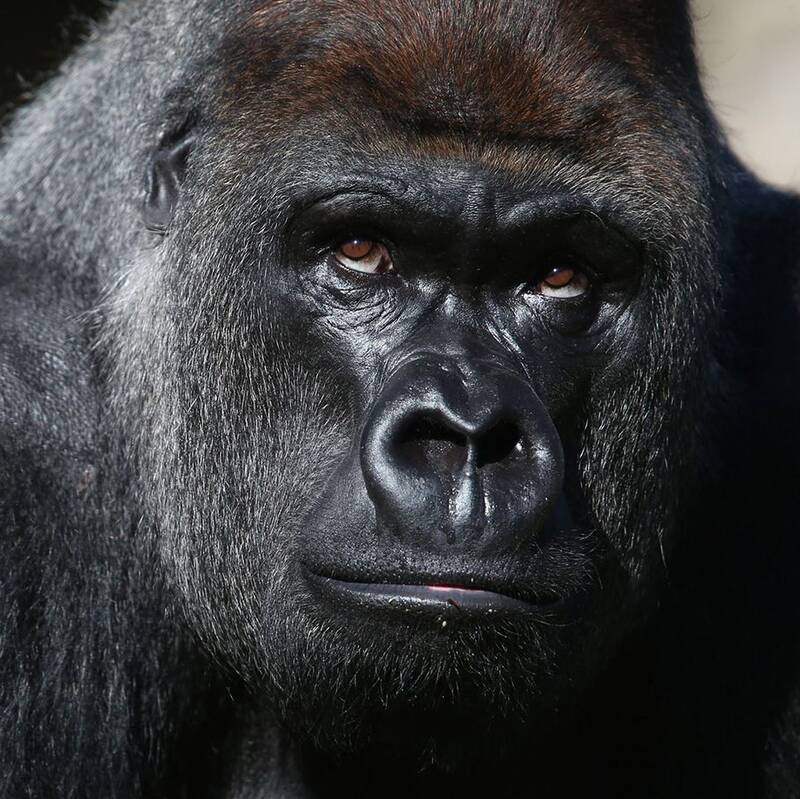
Gorilla trekking safaris in Rwanda
Tracking mountain gorillas in Rwanda is the ultimate wildlife experience and the reason why most people come here on holiday: for serious wildlife enthusiasts, sitting within a small family group of gorillas is a must.
Rwanda is where Dian Fossey first brought the world’s attention to the plight of these majestic primates in the late 1960s, when only around 250 survived. The 2011 census recorded some 880 individuals and, encouragingly, numbers since 2017 have stabilised at over 1,000 mountain gorillas, split between Rwanda, Uganda and the Democratic Republic of Congo. About half of them live in Rwanda’s Volcanoes National Park.
The survival of mountain gorillas is one of Africa’s greatest conservation success stories, and tourism has played its role in this. Rwanda is regarded as probably the best destination for a gorilla-trekking safari. Although permits aren’t cheap, the hour that you’re allowed to spend with these great apes promises to be a priceless encounter that will remain with you long after your holiday is over.
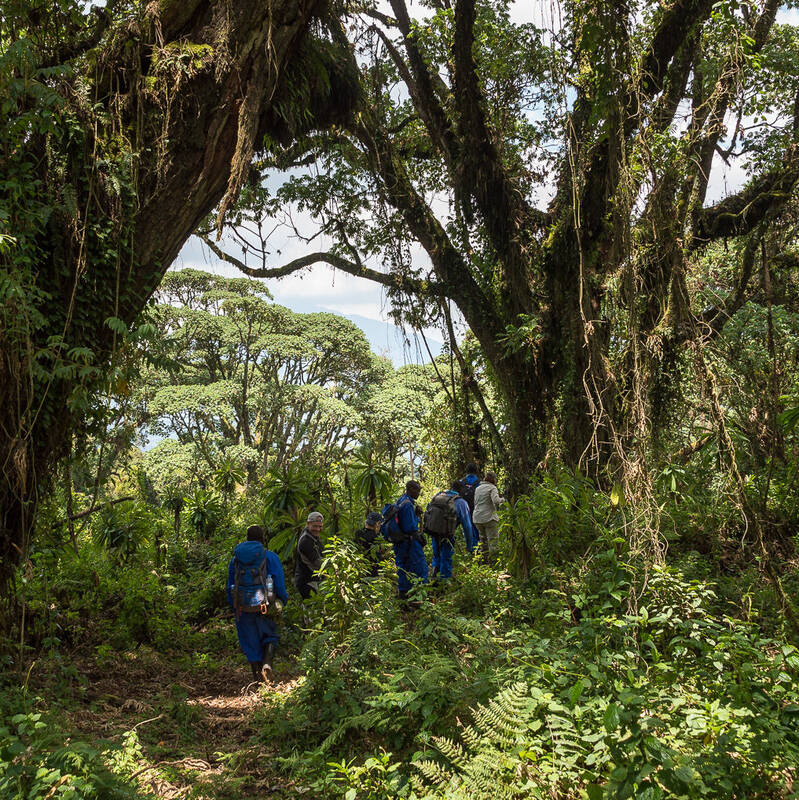
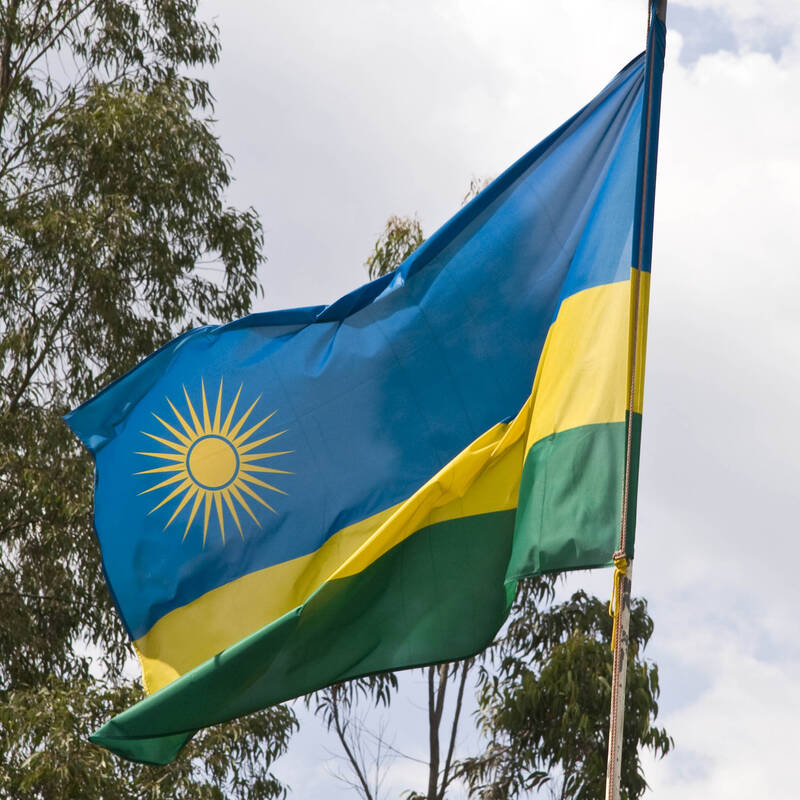
Rwanda general information
In 1994, Rwanda's civil war dominated the world's headlines. With hundreds of thousands of people killed, this became known as the “Rwandan genocide”. It is still what most people think about when Rwanda is mentioned.
Today, the country has been at peace for many years. Rwanda's democratic government promotes harmony, many Rwandese are eager to tell of their past, to let the world know what happened – and to protect their country against it ever happening again.
Rwanda has one of the fastest growing economies in Africa. It has more women in Parliament than any other country in the world (holding at more than 60% for some years) and is considered to be one of the safest and most friendly countries on the continent.
Compared with most of its neighbours, Rwanda is tiny, just 26,338km², but its high volcanic mountains have earned it the nickname “Switzerland of Africa”, or “the land of a thousand hills”.
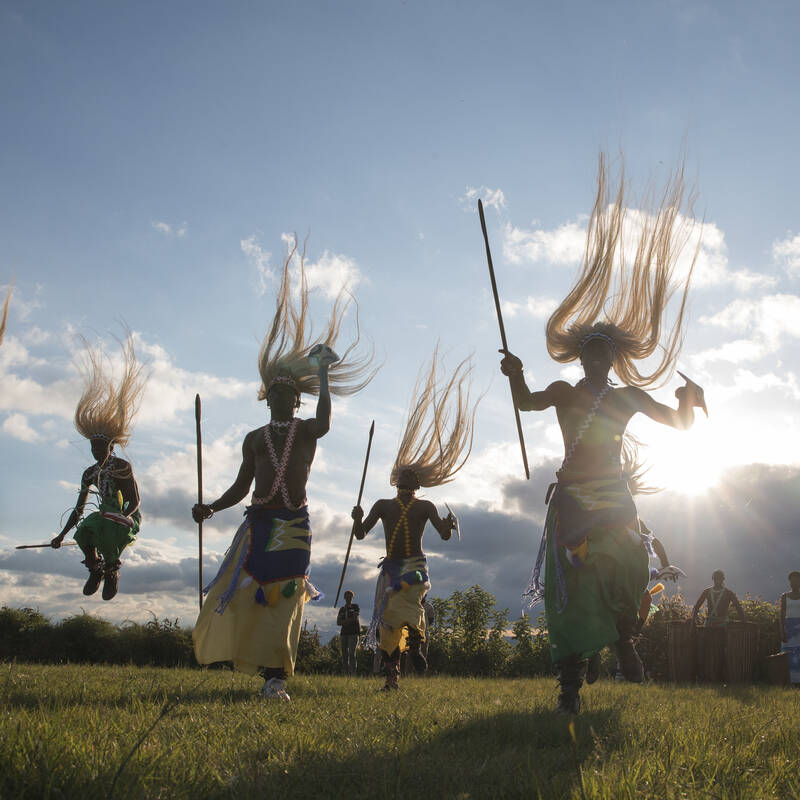

Lesbian, Gay, Bisexual and Transgender (LGBT) travel to Rwanda
We’ve sent many people to Rwanda since 2004, including LGBT travellers, and we have yet to hear of any issues raised or problems encountered as a result of a visitor’s sexuality.
Although same-sex marriage remains illegal, there are no laws against homosexual behaviour. Rwanda is party to the UN statement condemning violence against LGBT people, and in 2016, President Paul Kagame stated that living as an LGBT citizen in Rwanda “…hasn’t been our problem. And we don’t intend to make it our problem”.
That said, openly amorous behaviour, for both hetero- and homosexual couples, can cause offence, especially in rural areas, so we’d still advise all our travellers to be cautious, regardless of sexual orientation.
In general, we’d suggest that you stick to a “don’t ask, don't tell” approach while travelling.
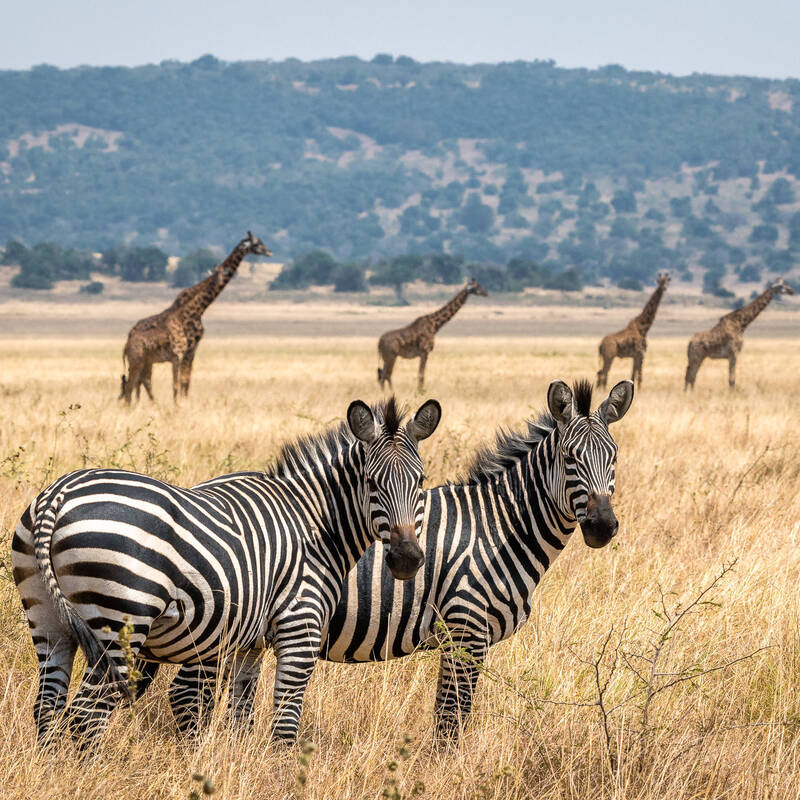

Tipping in Rwanda
Although giving gratuities can be a complicated subject, it is a normal part of Rwanda’s culture and service industry. Here, as in most countries, tips are at your discretion, usually dependent on the quality of service received.
In Rwanda, your private driver-guide will be key to a successful trip, and is normally tipped separately. The same goes for trekking guides and rangers, whereas it’s normal practice to tip trackers as a group.
When staying in a lodge, do remember that many people are involved in the smooth running of your trip. Contributing to the general tip box at the end of your stay will ensure that each individual is rewarded for their work.
Do remember, though, that more affluent travellers can impact disproportionately on the local economy, tipping the balance of social and economic factors, so keep that in mind when tipping staff and guides during your holiday in Rwanda.
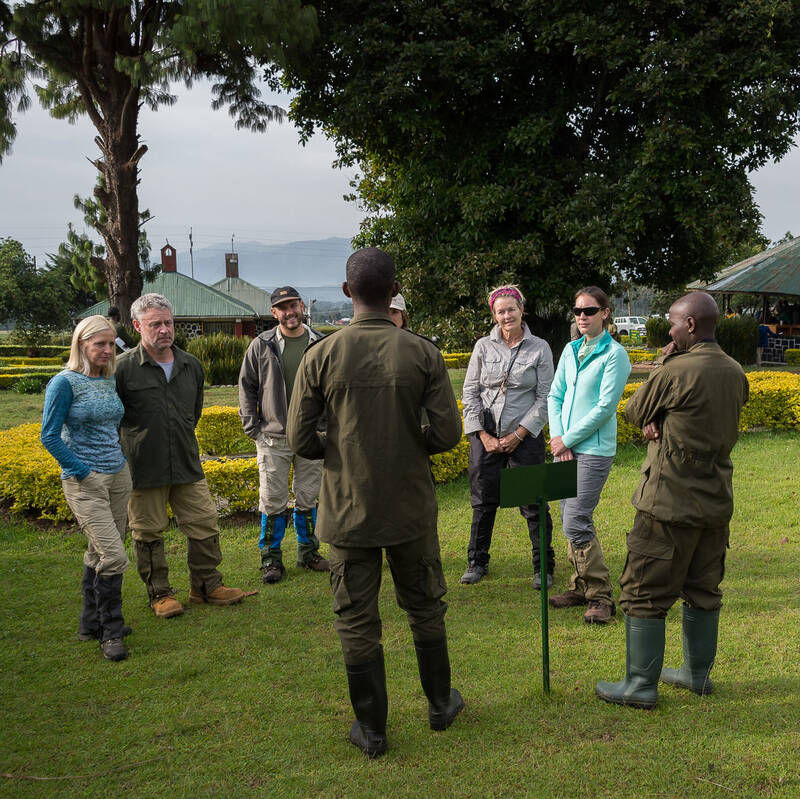
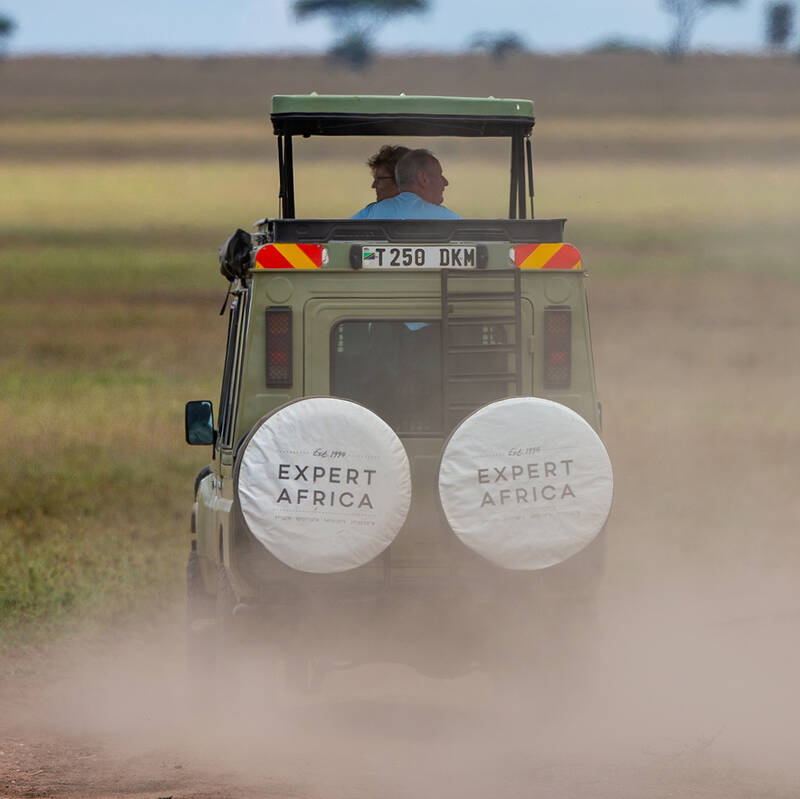
Privately guided Rwanda safaris
With its compact size and diverse landscapes, Rwanda is an ideal destination for privately guided trips. These journeys offer unparalleled flexibility and immersion in the country's culture and natural beauty.
Hence all of our Rwanda safaris include a private driver-guide and vehicle, travellers can explore at their own pace, focusing on their interests, whether it's encountering mountain gorillas, kayaking, or delving into Rwandan history and culture.
This highly personalized approach allows for very natural and genuine interactions with locals and plenty of spontaneous moments along the way, whilst you relax in the care of a top professional guide.
We’ll work with you to choose your accommodation and main activities along the way, to help provide an authentic Rwandan experience, from rustic camps to upscale lodges. Traveling by road cmakes it easier for travellers to gain a comprehensive understanding of Rwanda's landscape and culture, with opportunities to visit villages, coffee plantations, and historical sites.
Your guides will be very knowledgeable about Rwanda's past and present, and ensure a personalized experience tailored to your individual preferences.
Starting from Kigali, the capital city, you’ll embark on a route visiting iconic destinations like Volcanoes National Park, Akagera, or Lake Kivu, all accessible via well-connected roads.
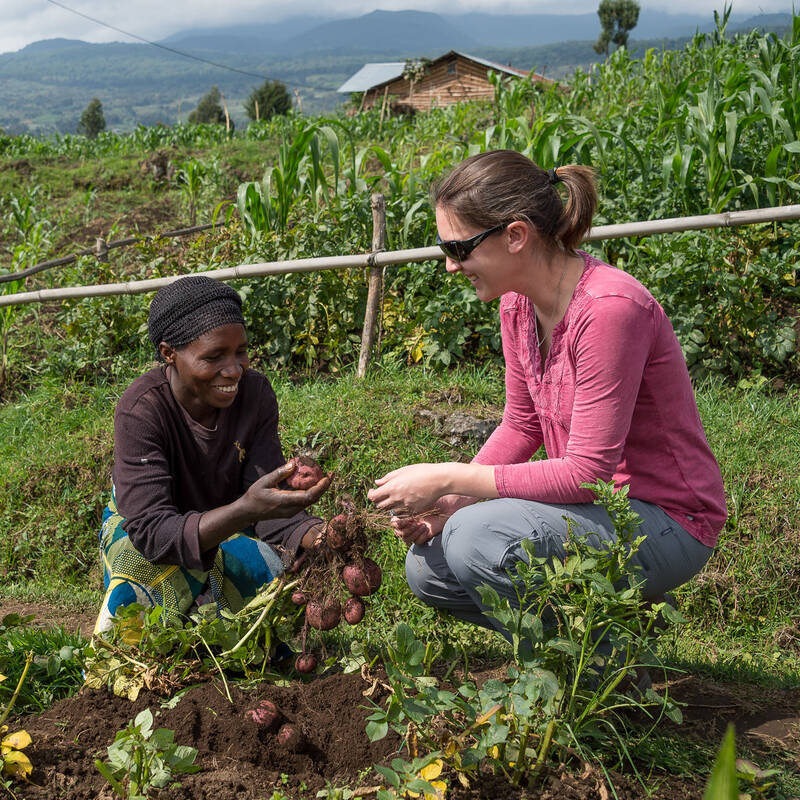
Safaris to Rwanda: beyond gorillas
Rwanda’s mountainous terrain and rainforest national parks are a major attraction, and many visitors' primary focus is visiting the mountain gorillas. If time is tight, that makes sense – and it’s possible to fulfil your dream in just four days.
Broadening the options, you could incorporate chimpanzees into your trip, or extend it to explore the whole country, from the cultural heart of Kigali to the “big five” that roam the plains of Akagera.
Whatever your interests, however long you have, remember that all our trips are tailormade. Take a look through the suggestions below, then give us a call – and let us create your perfect holiday.
Looking further afield, Rwanda works well in combination with other countries in the region, perhaps with a safari in Kenya or Tanzania, or – on a true adventure of a lifetime – transforming into a full-scale “highlights of Africa” trip.
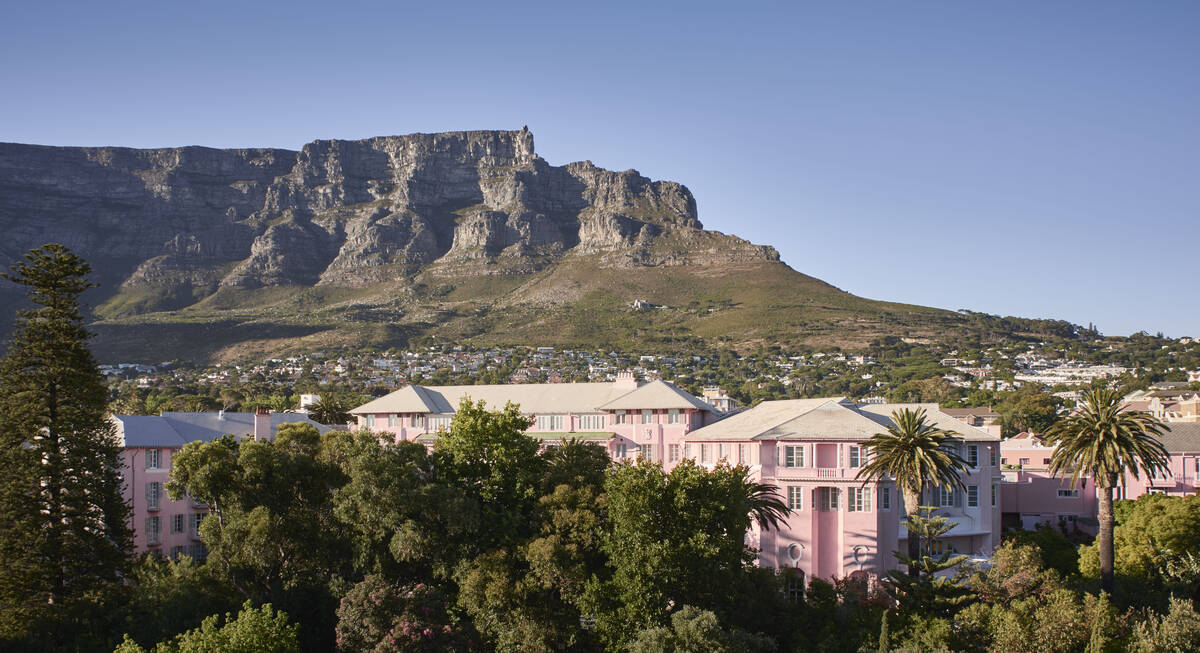
The Highlights of Africa
17 days • 7 locations
CAPE TOWN AIRPORT TO KIGALI AIRPORT
An epic adventure taking in some of Africa’s most incredible sights and wildlife experiences, from Cape Town to the Okavango Delta, Victoria Falls, the Maasai Mara and an encounter with mountain gorillas.
US$16,370 - US$19,780 per person

Gorillas and Serengeti Safari
11 days • 4 locations
KIGALI AIRPORT TO KILIMANJARO AIRPORT
Combine three iconic experiences – mountain gorillas in Rwanda, and the Serengeti plains and awe-inspiring Ngorongoro Crater in Tanzania.
US$14,310 - US$15,540 per person

Gorillas and Maasai Mara Safari
9 days • 3 locations
KIGALI AIRPORT TO NAIROBI AIRPORT
This trip combines two of Africa's most unforgettable wildlife experiences – Rwanda's mountain gorillas and Kenya's Maasai Mara.
US$11,390 - US$13,510 per person
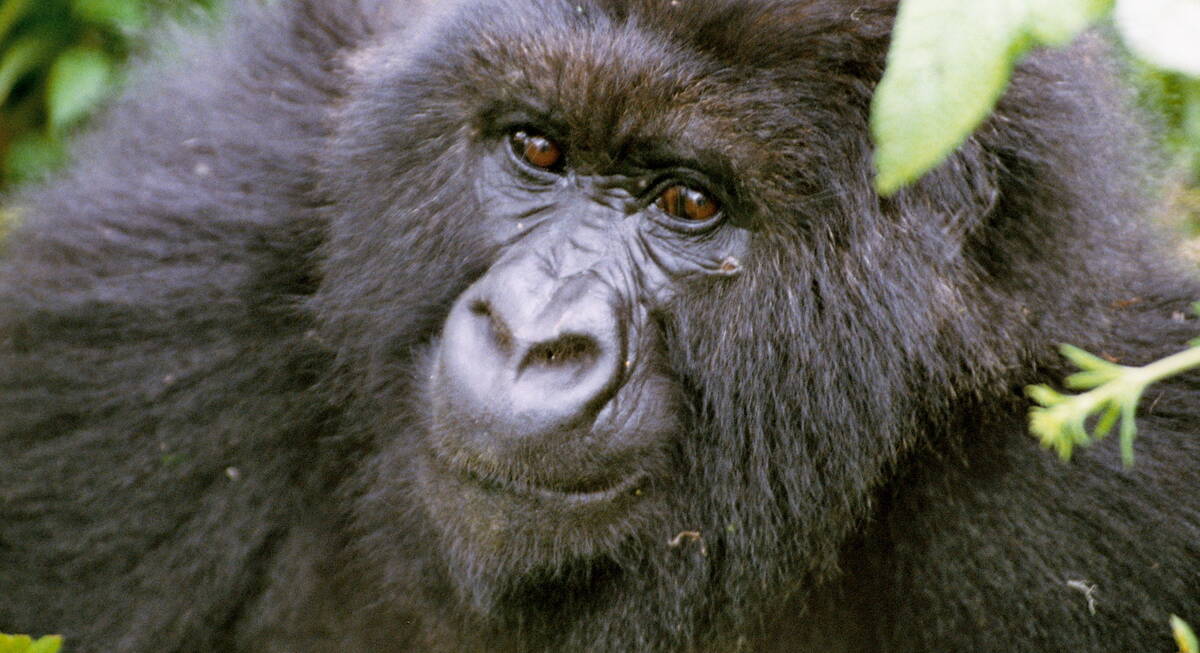
Mountain Gorilla Safari
5 days • 2 locations
KIGALI AIRPORT TO KIGALI AIRPORT
Staying in great-value lodges, with a private driver-guide and 4WD, this adventure includes two treks to get up close with groups of mountain gorillas.
US$6,120 - US$6,120 per person
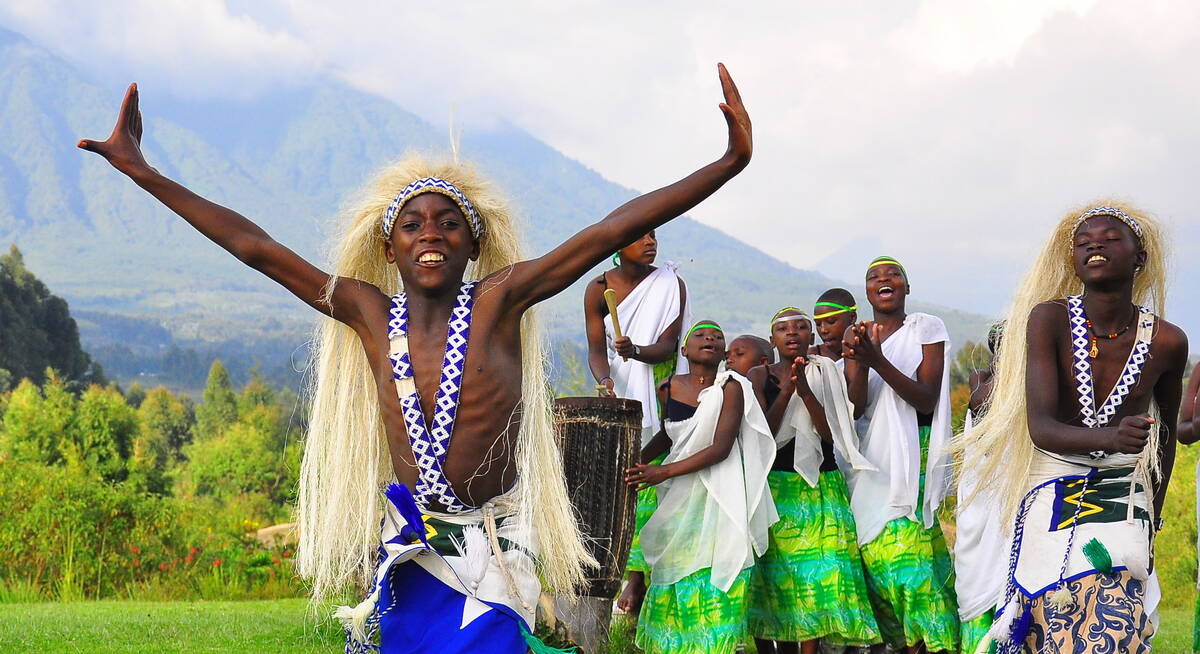
L'Hoest's Monkey Safari
7 days • 3 locations
KIGALI AIRPORT TO KIGALI AIRPORT
Meet three iconic primates – gorillas, chimps and golden monkeys – and explore Rwanda's fascinating culture on this excellent value privately guided adventure.
US$6,320 - US$6,830 per person

Golden Monkey Safari
12 days • 5 locations
KIGALI AIRPORT TO KIGALI AIRPORT
Combine four key areas of Rwanda on this excellent-value trip, for a true wildlife and cultural experience. The perfect itinerary for those who want to see all the highlights of Rwanda.
US$11,010 - US$12,170 per person
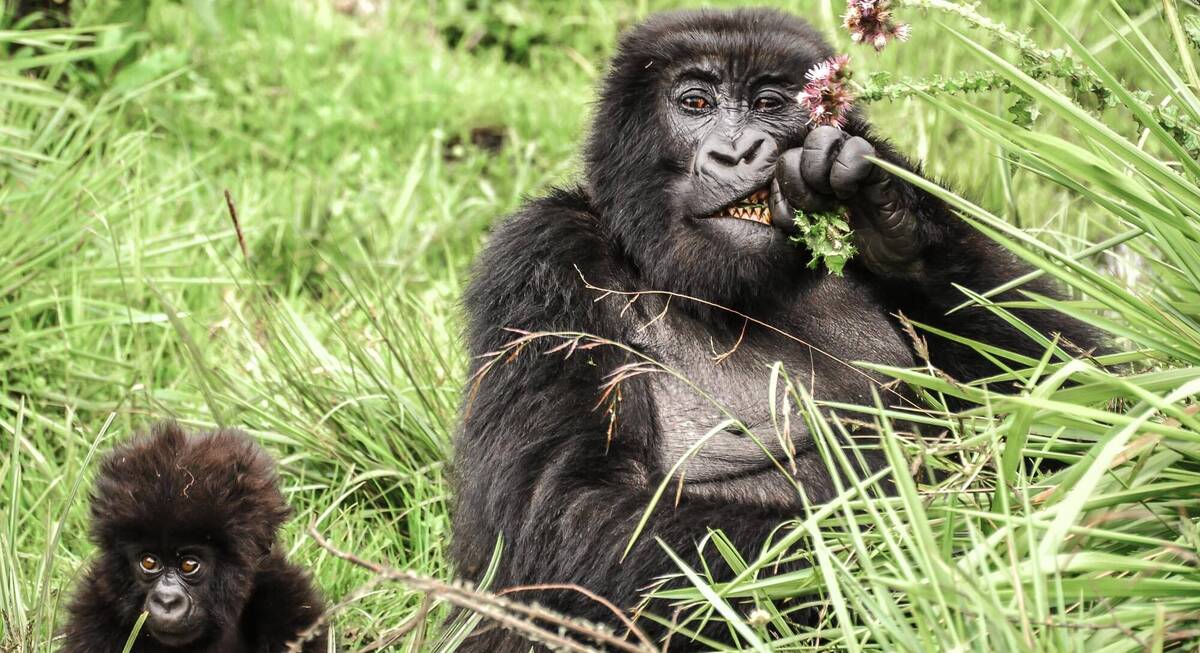
Silverback Gorilla Safari
4 days • 1 locations
KIGALI AIRPORT TO KIGALI AIRPORT
Fly into Rwanda and you can be trekking to meet a family of mountain gorillas the next morning. An itinerary like this could easily be combined with a safari in Kenya or Tanzania.
US$11,530 - US$14,080 per person
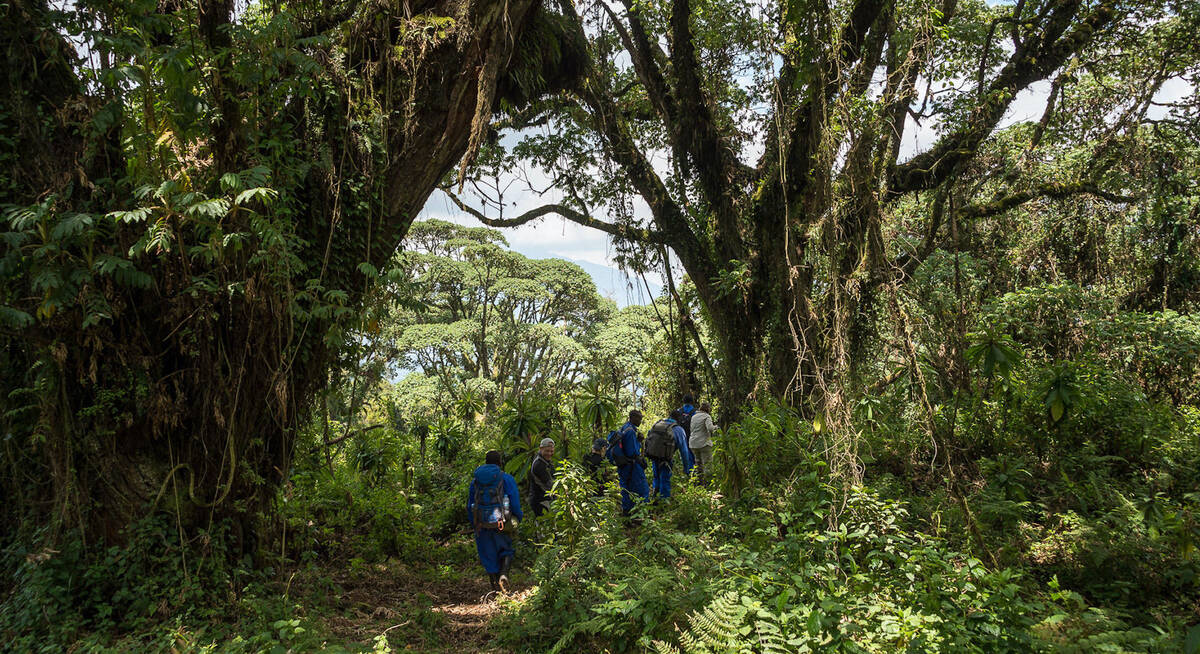
Gorillas and Migration Safari
9 days • 3 locations
KIGALI AIRPORT TO KILIMANJARO AIRPORT
This luxury safari combines two iconic wildlife experiences: trekking to see the mountain gorillas in Rwanda, then flying to the northern Serengeti in search of the wildebeest migration and spectacular river crossings.
US$19,360 - US$25,280 per person

Mona Monkey Safari
9 days • 3 locations
KIGALI AIRPORT TO KIGALI AIRPORT
This example of a luxury holiday explores the wildlife of Nyungwe Forest, the scenic shores of Lake Kivu and the mountain gorillas of Volcanoes National Park, all accompanied by a private guide and vehicle.
US$13,790 - US$19,000 per person
Plan and book your trip with Expert Africa
All of our trips are tailor-made, so we'll always adapt them to suit you. Talk to an Expert and let us plan and arrange your perfect trip.

Talk to an Expert
Call or email us now! We’ll match you with the Specialist in our team who is best suited to help you. Then together we can start planning your trip.

Set up your itinerary
Based on our experience and your ideas, your specialist will create a detailed, costed itinerary. We’ll refine it together, until we have a trip that you’re perfectly happy with.

Prepare for your trip
The same Specialist will make the seamless arrangements for your trip, send you detailed travel documents, and be available to answer any questions before you depart.

Travel with peace of mind
After you set off, you’ll be cared for by our partners in Africa, most of whom have worked with Expert Africa for decades. And if you ever need us urgently, we’re available 24/7.

When you return
We love to learn about your trip, and so will always be grateful if you’ve the time to give feedback to your Specialist when you return.
Where to stay in Rwanda
Ask us for more details of what’s where, and what’s likely to suit you best!
What to do in Rwanda besides gorillas
On our Rwanda safaris, there’s a remarkable array of possible experiences. Your guide will suggest some along the way, but many of the key activities need arranging in advance - see below for some of our favourites.
Special types of holiday to Rwanda
If wildlife is your passion, Rwanda would be hard to beat. Not only does it offer Gorilla-trekking in the Volcanoes National Park, but it also harbours 13 species of primate in Nyungwe Forest National Park, including chimpanzees, and the “big five” in Akagera National Park.
Hikers, too, will be in their element in the mountains – when the treks to see the primates can be an adventure in themselves. Check out, too, the swamps and waterfalls of Nyungwe Forest, or the canopy walkway through the tops of the trees.
Not far from Volcanes National Park, canoeing comes into its own on the Mukungwa River. You’ll explore with a qualified guide, paddling past local communities and through the occasional small rapids, whereas on Lake Kivu, kayaking is a peaceful way to explore the lake and its islands.
Exploring Rwanda on a privately guided trip offers the perfect opportunity to understand something of the local culture as you drive through bustling villages, lush farms and plantations of tea and plantations. But for a truly eye-opening introduction to the country, it’s worth starting at Kigali’s genocide memorial.
These and more can be included in a trip designed specially for you. Take a look at the options, then talk to us and let us help you plan your trip.
Frequently Asked Questions
Rwanda FAQs
Mention Rwanda, and many people raise their eyebrows – leaving a confused impression with lots of unanswered questions.
Yet such questions are important, so here we’ve tried to answer some of those that are likely to come up in conversation, from how to prepare for gorilla trekking to what you can expect to eat.
Our team of experts know Rwanda well from personal experience. No matter how apparently trivial your question, we will do our best to help, so please do give us a call.
How hard is gorilla trekking in Rwanda?
Depending on which group of gorillas you track, and the time of year you go (gorillas tend to move down the mountains in the rains), you might find yourself walking on some pretty steep and sometimes muddy slopes for several hours. On the other hand, you could reach your group after a leisurely 30-minute stroll.
Either way, walking will be at a slow pace, with time for breaks if needed. But slopes are often steep, and the altitude, at over 2,500m, can be tiring, so it’s best to be prepared for the most active option. If nothing else, a few hill walks before you leave home would be beneficial.
What do I need to take for a gorilla-trekking safari in Rwanda?
A waterproof jacket could well come in handy and take some water and a snack in case it’s a long trek. You might also find a walking stick or pole helpful; these are available at the start of the trek.
For a small fee of around US$10, porters are available at the trailheads to carry your backpacks and to offer a hand during tricky parts of the hike. Even if you don’t really need this service, hiring a porter is a helpful way to contribute directly to the local economy, and chatting to them as you walk can broaden your understanding of local life as well as enhancing your gorilla trek.
How can I get the best photographs of the gorillas?
That said, this isn’t an environment for a massive, tripod-mounted lens; it's better to work with something that can be hand-held, or perhaps steadied with a monopod. We’ve found a zoom lens (80–200mmm f2.8) is very good, coupled with a high ISO setting.
It’s as well to remember that the light can be poor in the rainforest and that use of flash is not permitted. You would be wise to have a bag which limits the effect of humidity on your camera, and perhaps even a cover to protect it against rain whilst you’re holding it.
What can I expect from the hotels in Rwanda?
Although Rwanda is not renowned for its luxury accommodation, times are changing, and while the simpler options remain, there are now more upmarket lodges, with accommodation and service to match. Even so, the quality of service and food can, at times, be a little lower than you'd hope for, as many staff are new to tourism.
What is the food like in Rwanda?
For most local Rwandan people, the diet consists mainly of sweet potatoes, peas, corn, beans, millet and fresh fruit, including avocados, mangos and papayas. Umutsima (cassava and corn), isombe (cassava leaves with eggplant and spinach) and mizuzu (fried plantains) are some of Rwanda's traditional dishes. Drinks include local beer and ikigage, a locally brewed beer made from sorghum.
How much does it cost to see gorillas in Rwanda?
Securing permits for trekking gorillas, especially during the popular periods between July and September, can be difficult at short notice, so you should plan well ahead. Our team of experts will make all the arrangements for buying your permits.
For 2024, no more than 96 gorilla-trekking permits are available each day, each costing US$1,500 per person for a one-hour visit.
Travellers who are also spending a minimum of three days in either Nyungwe Forest National Park or Akagera National Park between November and May are entitled to a 30% discount, reducing the costs to US$1,050 per person.
Amongst other things, the permits pay for a 24-hour guard for each gorilla group (armed teams constantly track each habituated group – like royal bodyguards in the UK!). The fees also help to strengthen conservation efforts and to support the development of local communities.
Our other African destinations
At Expert Africa, we specialise in safari destinations, each of them unique – and none more so than Rwanda.
While the “big five” are present in Rwanda, take a look at its eastern neighbours, Tanzania or Kenya, for a more traditional safari – either alone or in combination with Rwanda.
To the south, Zambia and Zimbabwe – on either side of the great Zambezi River and both bordering the Victoria Falls – also offer superb game viewing.
Equally compelling, albeit far more exclusive, are the superb private concessions of Botswana’s Okavango Delta, while for a self-drive adventure, Namibia comes out on top.
Many travellers want to finish a safari holiday with a watersports or beach destination, and here Kenya, Mozambique, Malawi and South Africa all excel. You could even consider an idyllic island add-on to Zanzibar, or the Seychelles.
The choices are many and varied, so do get in touch; we’re here to help.
Elephant safari
in Linyanti
Talk to a Rwanda Expert
These members of the Expert Africa team have been to Rwanda and can advise you from their own personal experience.
Start a conversation with them today to help plan your trip.
Destination manager, Rwanda
I spent three years working with meerkats in the Kalahari Desert I've spent 12 days researching in Rwanda.
Rwanda specialist
I've climbed Kilimanjaro three times I've spent 14 days researching in Rwanda.
